Minority and Indigenous Trends 2018: Focus on migration and displacement
The chapters
MRG’s new flagship report looks at migration and displacement from a minority and indigenous perspective.
- 01
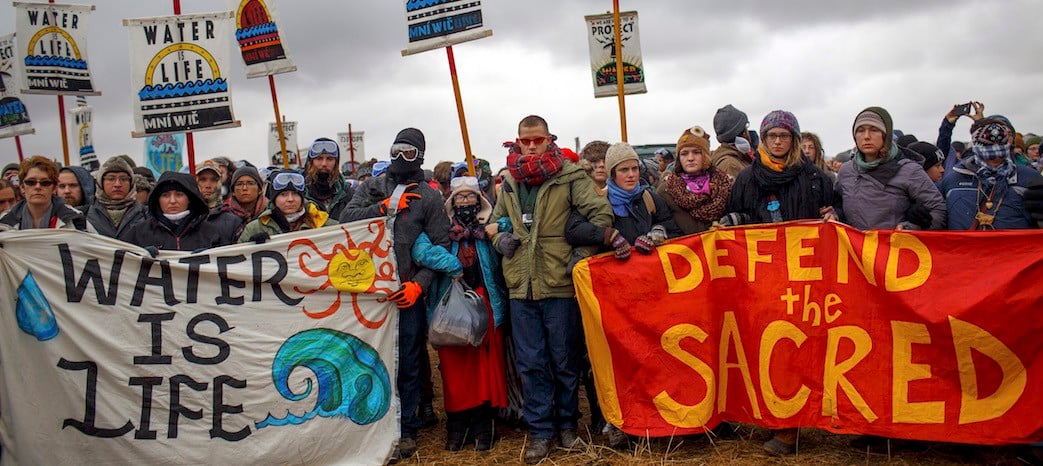
Canada and the United States: The continued struggle of indigenous communities to defend their lands
By Alicia Kroemer Across North America, indigenous peoples are still affected by the traumatic legacy of displacement from their ancestral lands, a historic expropriation that continues to undermine their wellbeing, spirituality and way of…
0 min read
- 02
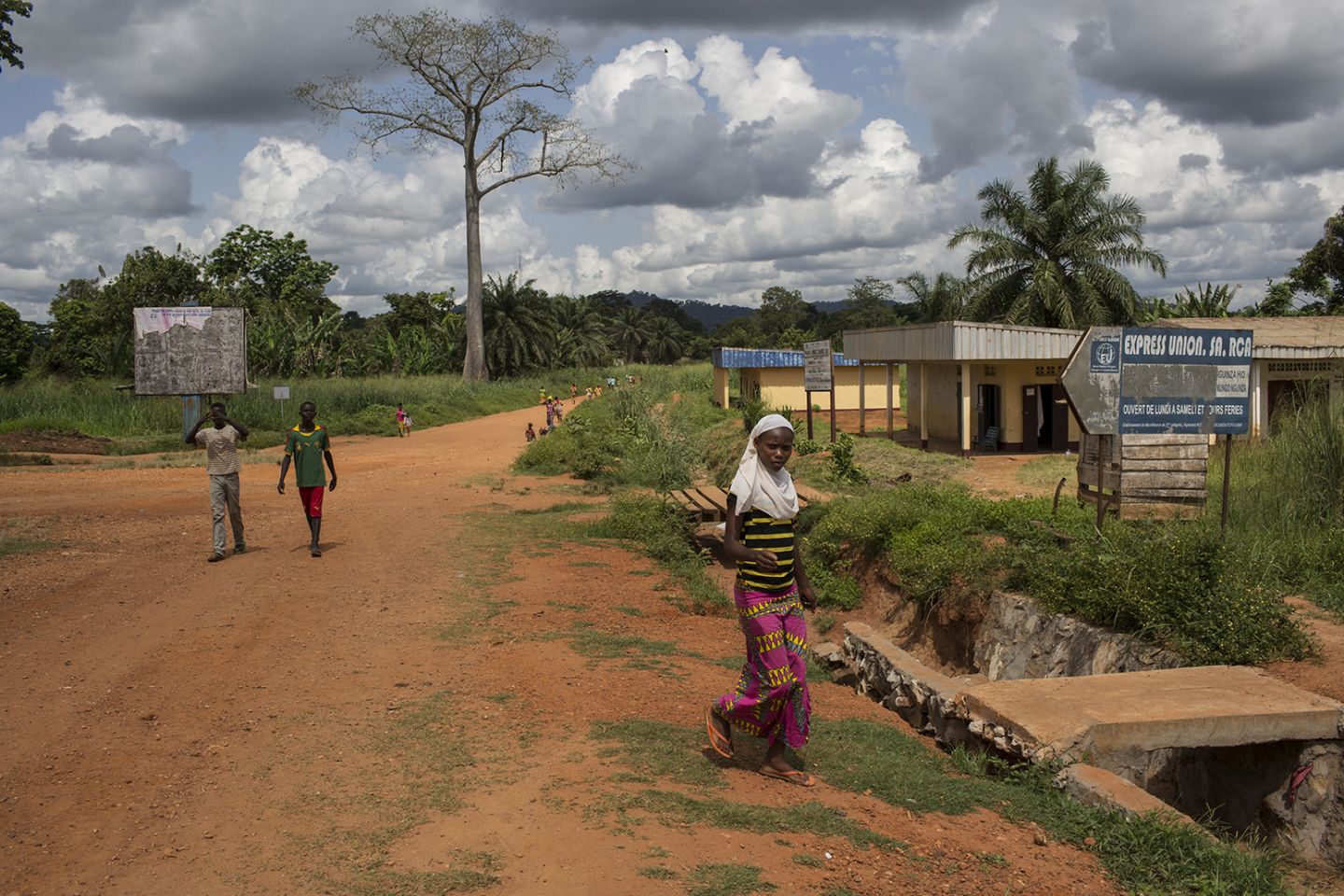
Central African Republic: The difficulties of return for the country’s conflict-displaced Muslims
By Will Baxter Five years after the outbreak of civil conflict in the Central African Republic (CAR), a large proportion of its Muslim minority – an estimated 80 per cent of whom had been forced out of the country in the first months of…
0 min read
- 03

Dominican Republic: Stripped of citizenship, the deportations of ethnic Haitians continue
By Kate George Dominicans of Haitian descent as well as Haitian immigrants have suffered a long history of discrimination, punctuated by outbreaks of targeted violence and detentions. Recently, however, they have faced further difficulties…
0 min read
- 04
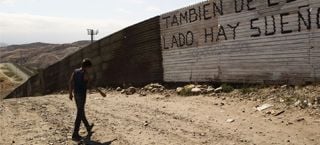
Guatemala: Violence and discrimination drive indigenous migration elsewhere
The legacy of Guatemala’s brutal civil war, which saw security forces target thousands of indigenous citizens in a campaign of sexual assault, torture and mass executions, continues to be felt today, with many communities still subjected to…
0 min read
- 05
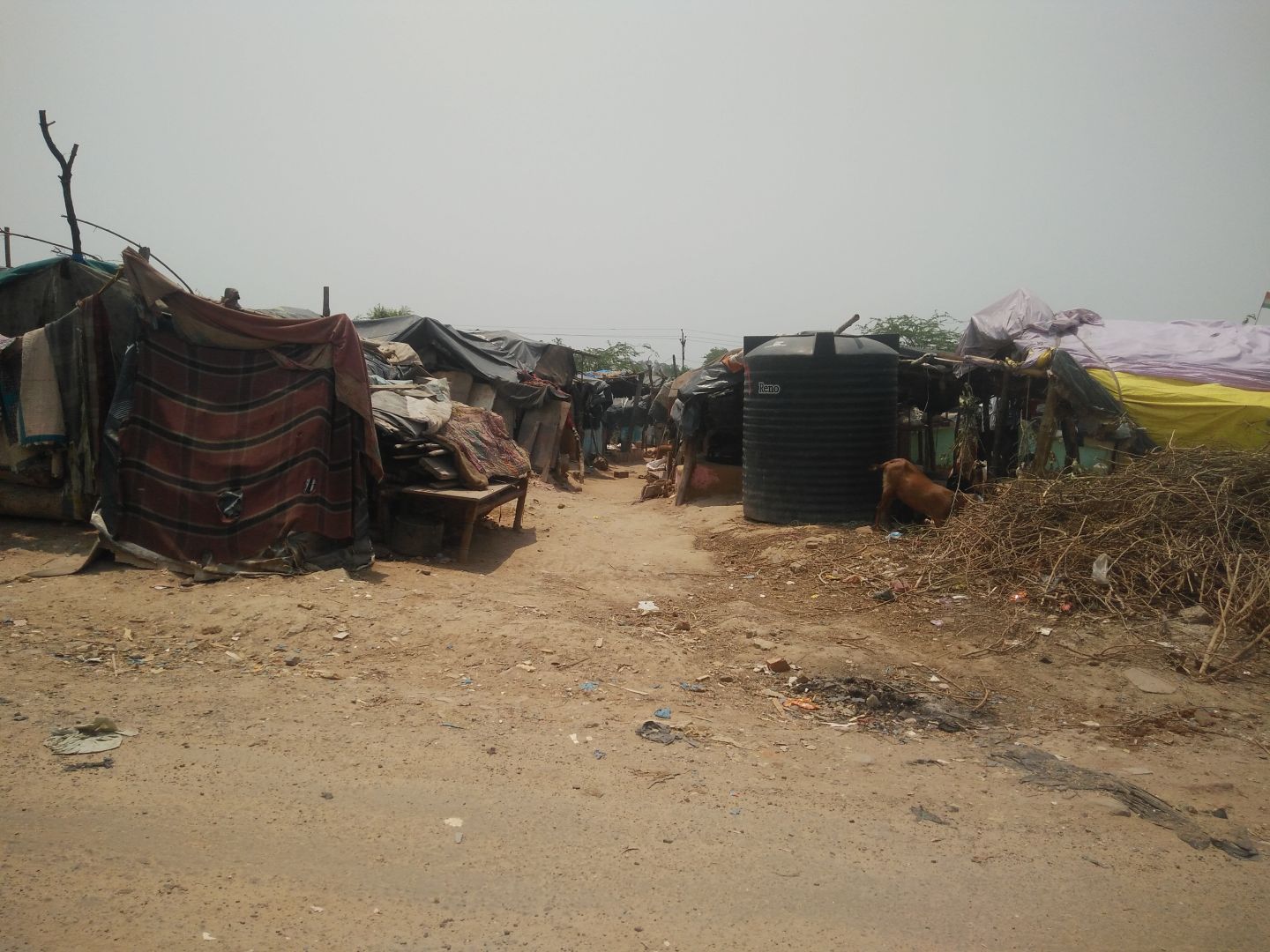
India: Living on the fringes of Delhi – the Ghiyaras of Rangpuri and their continued exclusion
By Sajjad Hassan For many of India‘s indigenous communities, poverty and displacement from their ancestral lands have driven large numbers to move to urban areas in the hope of securing education or employment there. All too often,…
0 min read
- 06
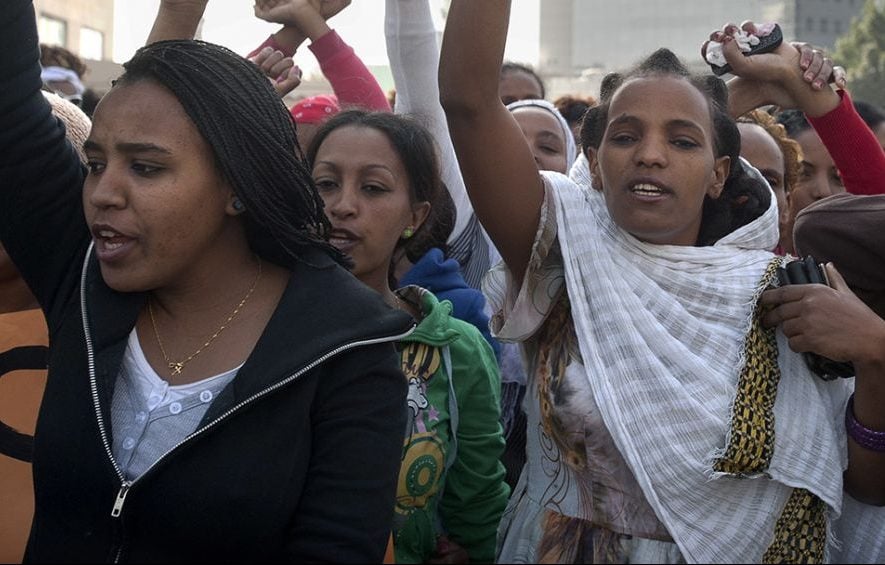
Israel: An uncertain future for thousands of African asylum seekers caught between detention and deportation
By Charlotte Graham Across the Middle East, thousands of sub-Saharan migrants – including workers stranded by conflict, asylum seekers fleeing violence and others attempting the dangerous journey to Europe – have become some of the…
0 min read
- 07

Italy: Another year of forced evictions for the country’s Roma
By Catrinel Motoc Roma, one of Europe’s most marginalized minorities, continue to be targeted in many countries with forced evictions – a situation that locks them into a cycle of displacement and human rights violations that affect…
0 min read
- 08
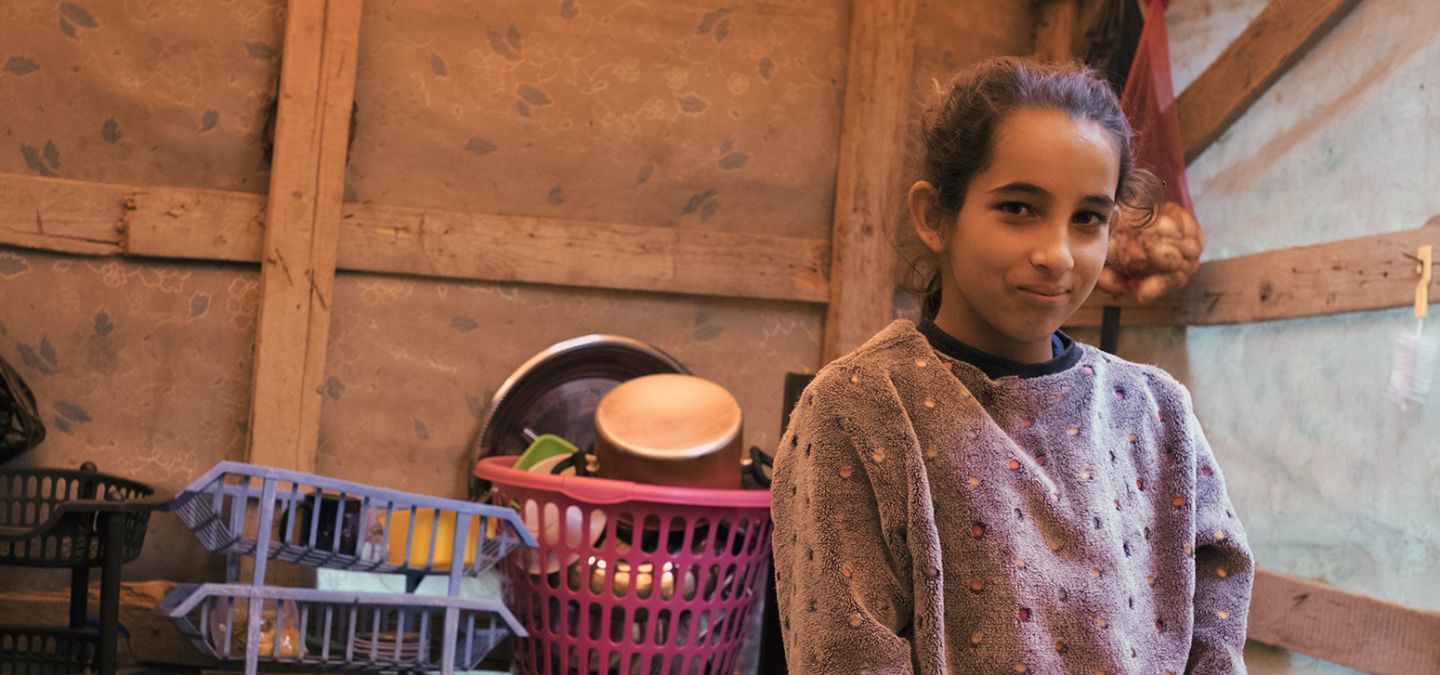
Jordan: The struggles of Bani Murra, one of Syria’s most marginalized communities, now displaced as refugees
By Elisa Oddone With more than 5.6 million Syrians now living outside the country, predominantly in neighbouring Jordan, Lebanon and Turkey, the conflict has created a vast refugee population facing poverty, discrimination and insecurity….
0 min read
- 09
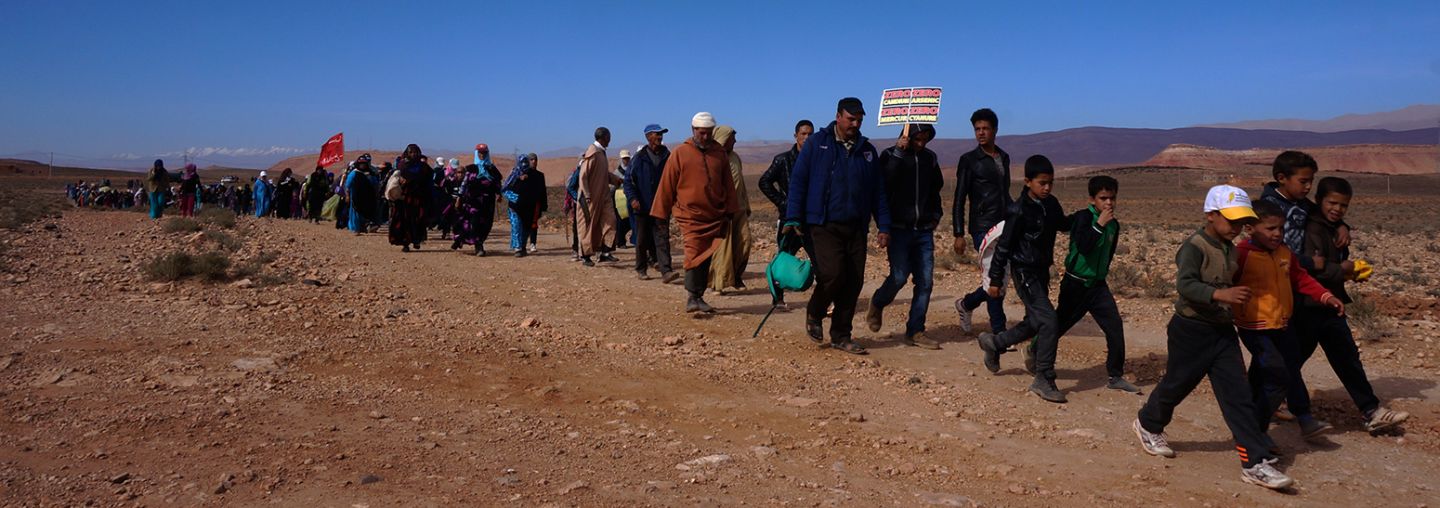
Morocco: An Amazigh community’s long wait for water rights
By Jasmin Qureshi The environmental impacts of mining are a major cause of displacement for minorities and indigenous peoples across the world, with many unable to secure compensation or protections due to discrimination. But in Morocco, a…
0 min read
- 10
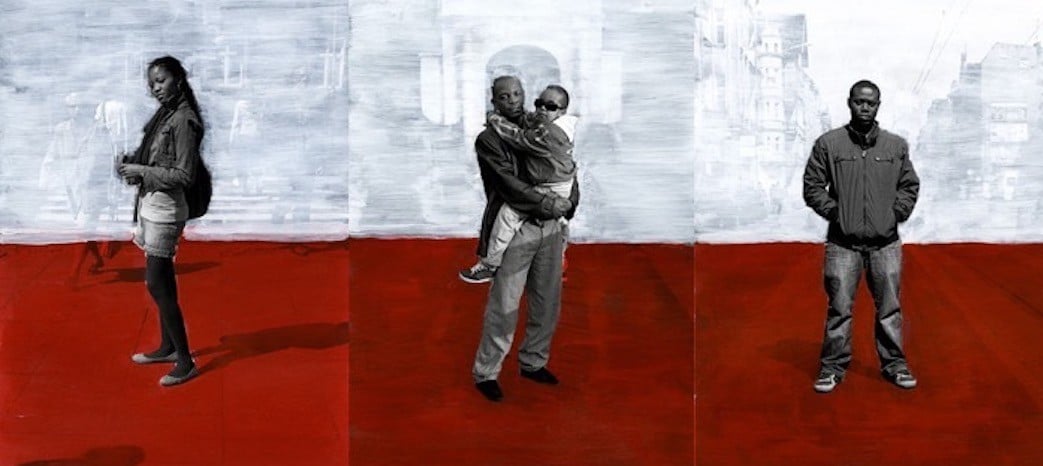
Poland: Sub-Saharan Africans and the struggle for acceptance
By Konrad Pędziwiatr and Bolaji Balogun Poland, a country with a predominantly white population and, until recently, limited immigration, has seen the growth in recent years of a sizeable sub-Saharan African minority. This community, though…
0 min read
- 11
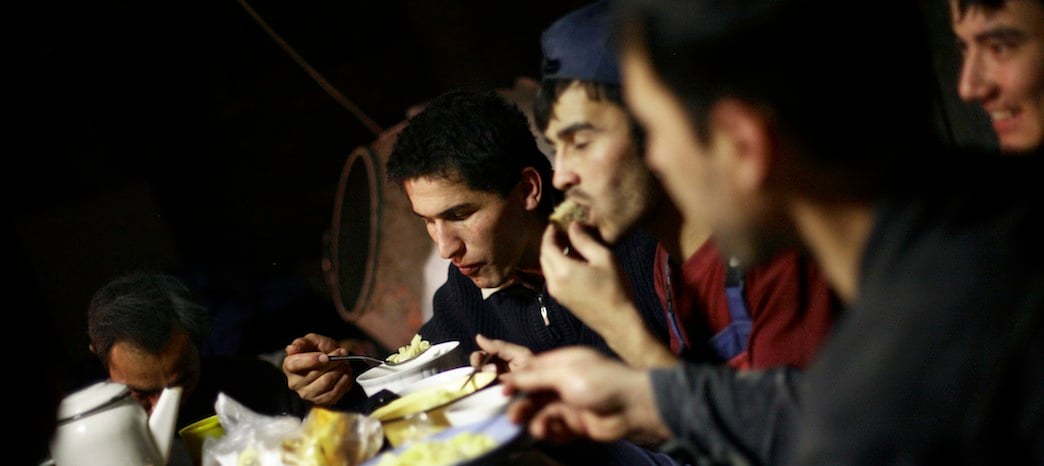
Russia: Migrants from Central Asia struggle with documentation in Krasnodar Krai
By Semyon Simonov Millions of migrants reside in Russia, many of them from Central Asia, with a particularly large proportion originating from Uzbekistan and Tajikistan. They play a vital role in the Russian economy and undertake a range of…
0 min read
- 12
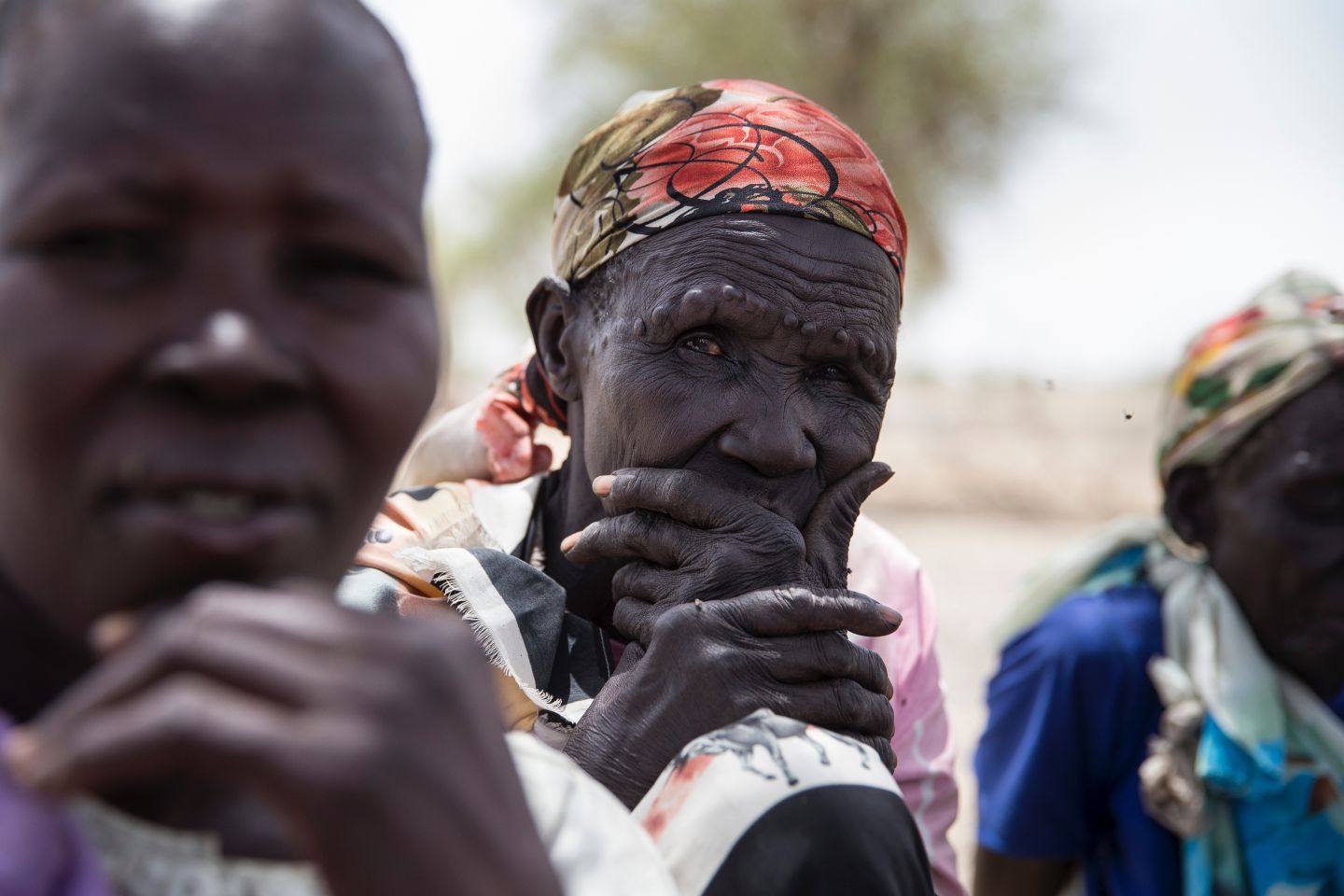
South Sudan: Displaced again by conflict, the Shilluk community faces an uncertain future
The conflict in South Sudan that began in December 2013 after clashes between the forces of President Salva Kiir, a Dinka, and his then Vice President Riek Machar, a Nuer, quickly took on strong ethnic dimensions and has seen thousands of…
0 min read
- 13
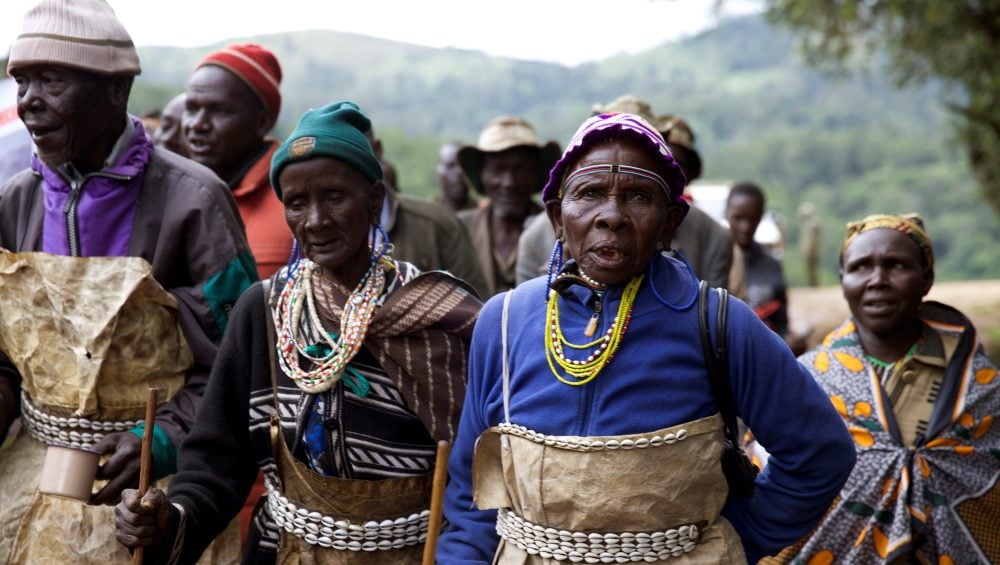
Challenging colonial legacies: Minorities and indigenous peoples’ struggle for inclusion in Africa
By Hamimu Masudi The dubious origins of statehood in Africa have been clear to anyone interested in understanding and explaining contemporary development challenges on the continent. By the stroke of a pen at a Berlin conference in 1884, the…
0 min read
- 14
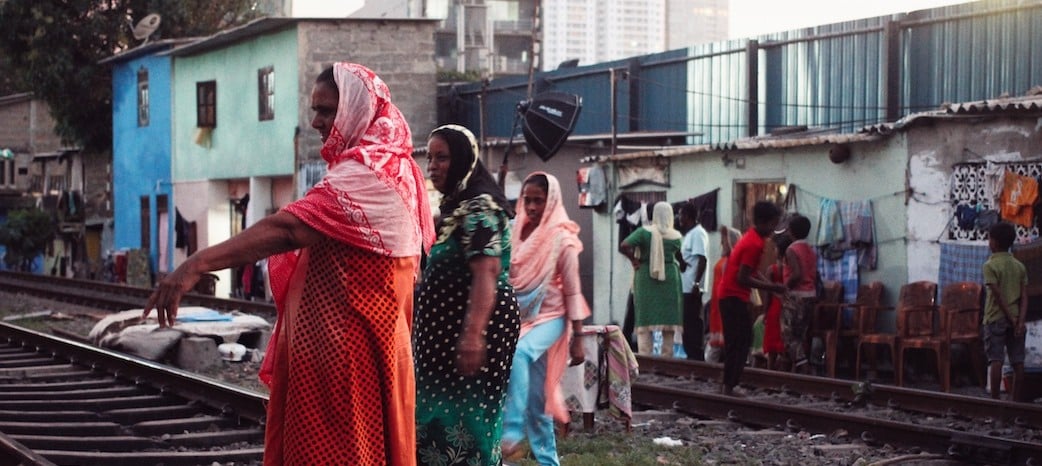
Sri Lanka: The gentrification of Slave Island – A way of life under threat for Colombo’s Malay population
By Abdul Halik Azeez While much attention has focused on the decades-long civil war in Sri Lanka and the legacy of conflict, which formally ended in 2009, the country’s inequitable development since then has deepened discrimination…
0 min read
- 15
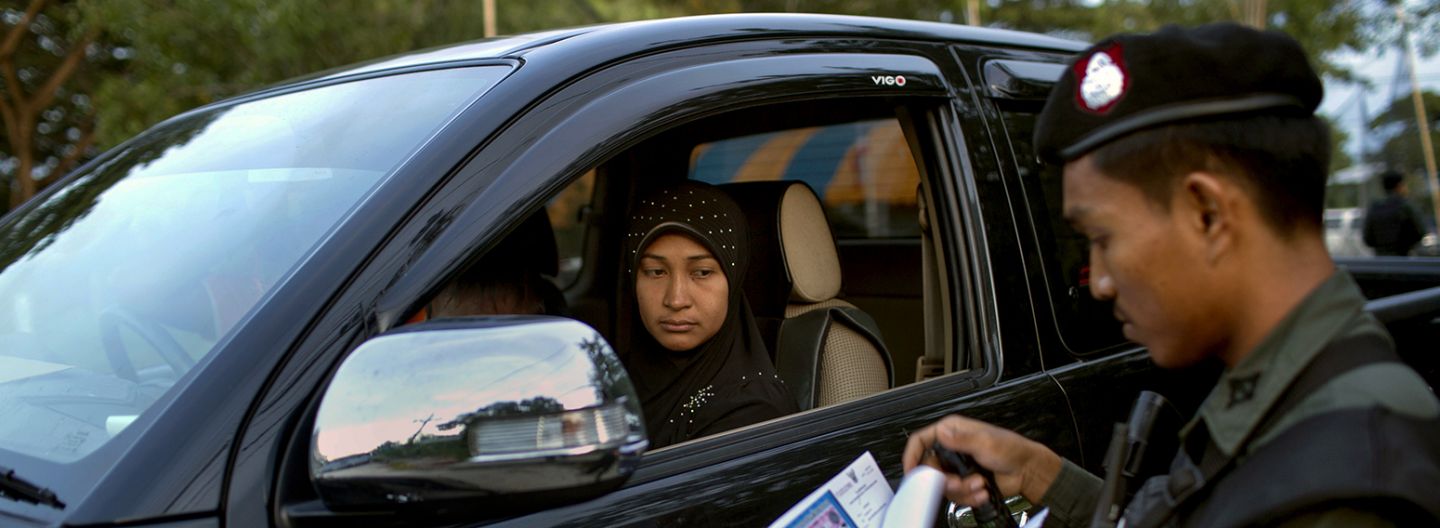
Thailand: As violence in the south continues, emigration from the region increases
By Nicole Girard The protracted conflict in Thailand‘s deep south, since reigniting in 2004, has cost some 7,000 lives and is now driving a slow exodus from the region. Initially Thai Buddhists, a minority in the majority Muslim region…
0 min read
- 16
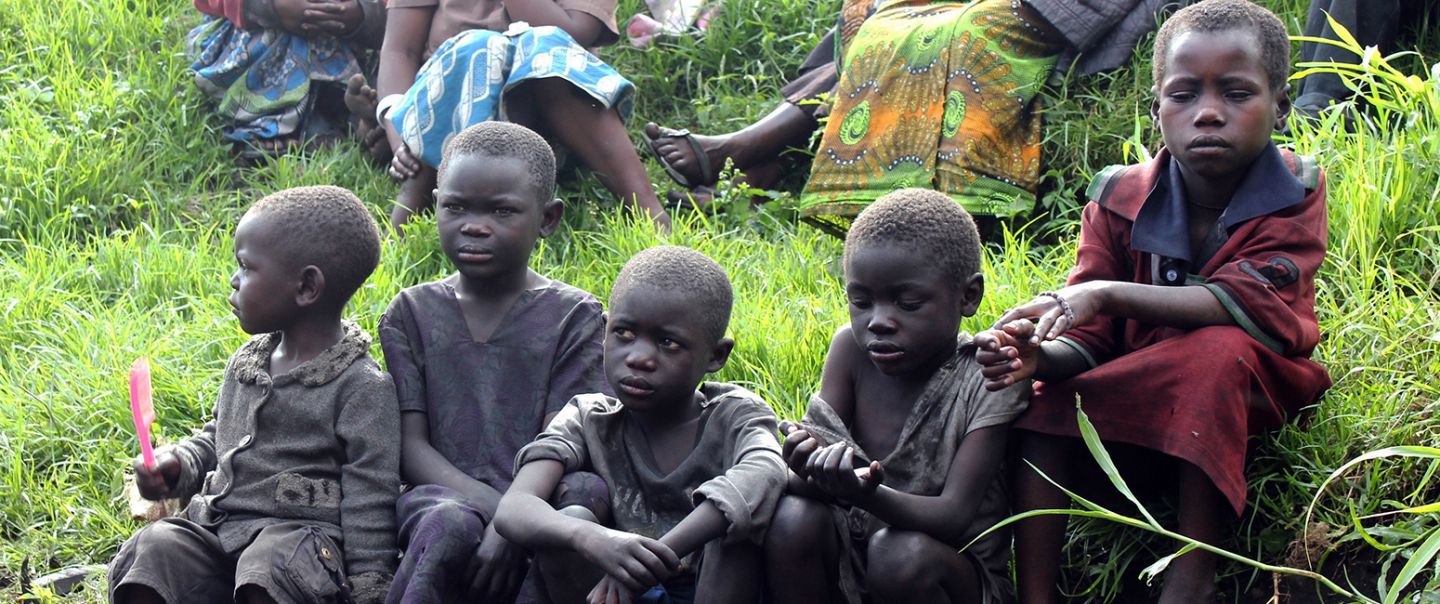
Uganda: Decades of displacement for Batwa, uprooted in the name of conservation
By Emma Eastwood Uganda‘s Batwa, an indigenous people who have suffered a long history of discrimination, have been displaced for decades from their ancestral land. Like other indigenous communities across Africa, despite stewarding the…
0 min read
- 17
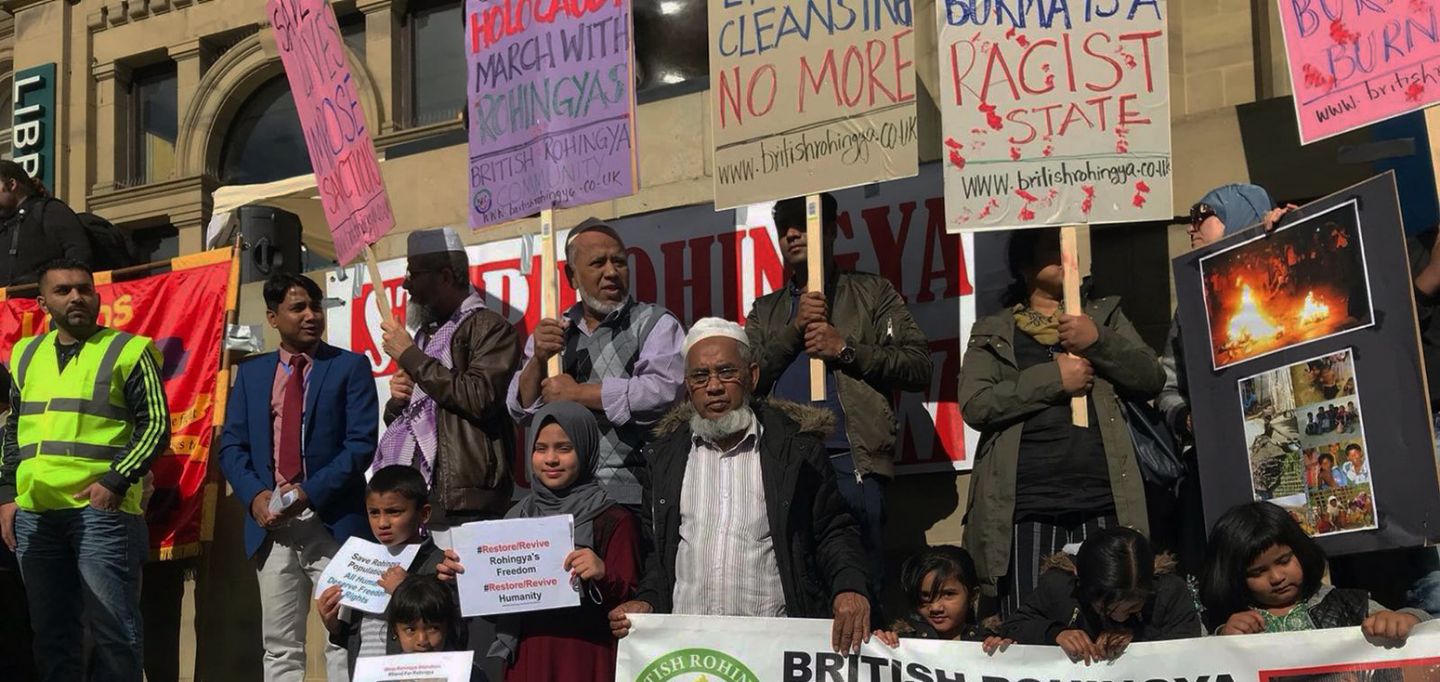
United Kingdom: Rohingya refugees find a safe home in Bradford
By Jasmin Qureshi In 2017, a brutal military campaign displaced more than 700,000 Rohingya from Myanmar and killed thousands more, with security forces systematically targeting communities with arson, rape and mass executions. The latest…
0 min read
- 18
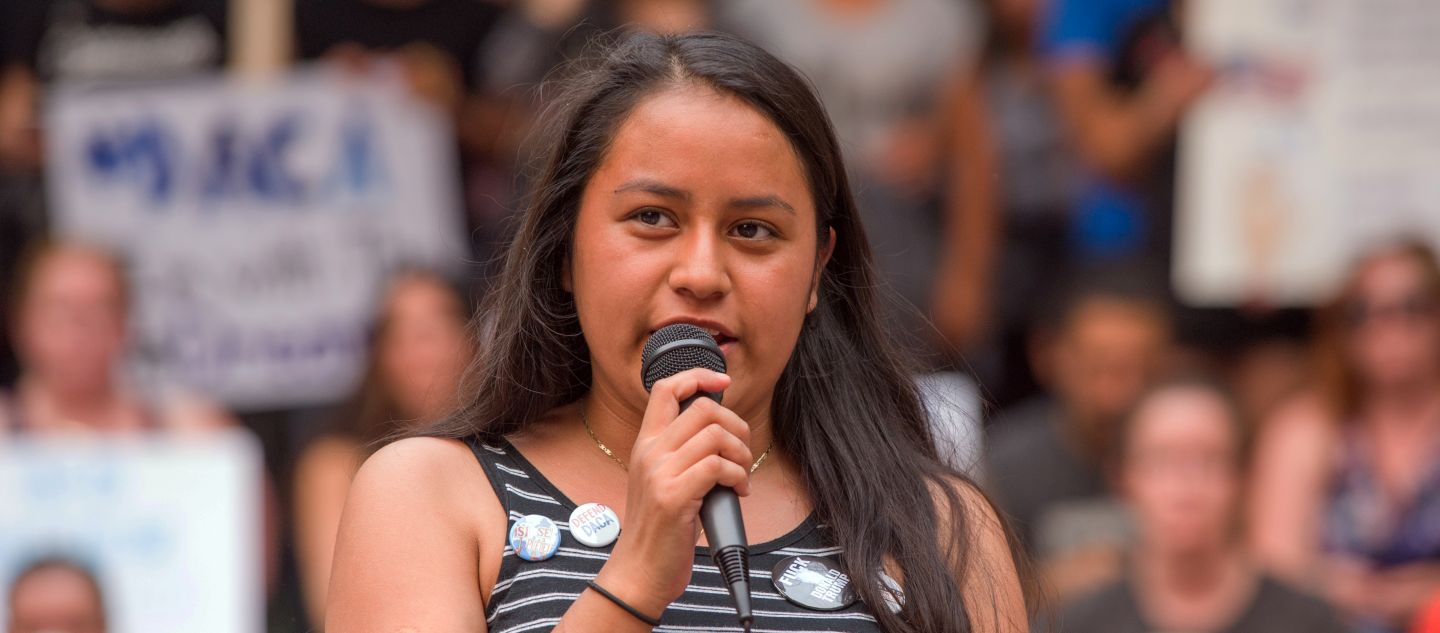
United States: Against a backdrop of growing hostility, undocumented migrants in Oregon are taking a stand
By Araceli Cruz and Mariah Grant Since taking office in January 2017, following a protracted political campaign that exploited and promoted anti-immigrant sentiment among sections of the American public, US President Donald Trump has passed…
0 min read
-
By Alicia Kroemer
Across North America, indigenous peoples are still affected by the traumatic legacy of displacement from their ancestral lands, a historic expropriation that continues to undermine their wellbeing, spirituality and way of life to this day. But despite a range of protections now in place to prevent further abuses, communities are still facing renewed threats from big business – and national governments are doing little to stop them.
For indigenous communities in Canada and the US, land, environmental protection and human rights are intrinsically linked: land is the foundation of their livelihood and spirituality. It is for this reason that colonization was such a detrimental force when Western powers seized ownership of land and drove indigenous peoples from their ancestral territories. In Canada and the US, early European peace treaties forced the surrender of vast areas of land, displacing tribes onto reservations – an act described by Judy Wilson, Chief of Neskonlith Indian Band, as the ‘biggest land grab in history’.
Today, however, many of these reservations face a new threat: corporate colonialism. Large extractive industries, through the building of gas and oil pipelines, could jeopardize their future. Use of land for these purposes is regarded by indigenous communities as theft, resulting in widespread environmental degradation and, in some cases, displacement of their communities. In many cases these developments have been met with indigenous resistance and protests that, at considerable personal peril to participants, have highlighted the dangers posed by the extractive industries to their homelands.
Standing Rock: the violent repression of the largest indigenous protest in living memory
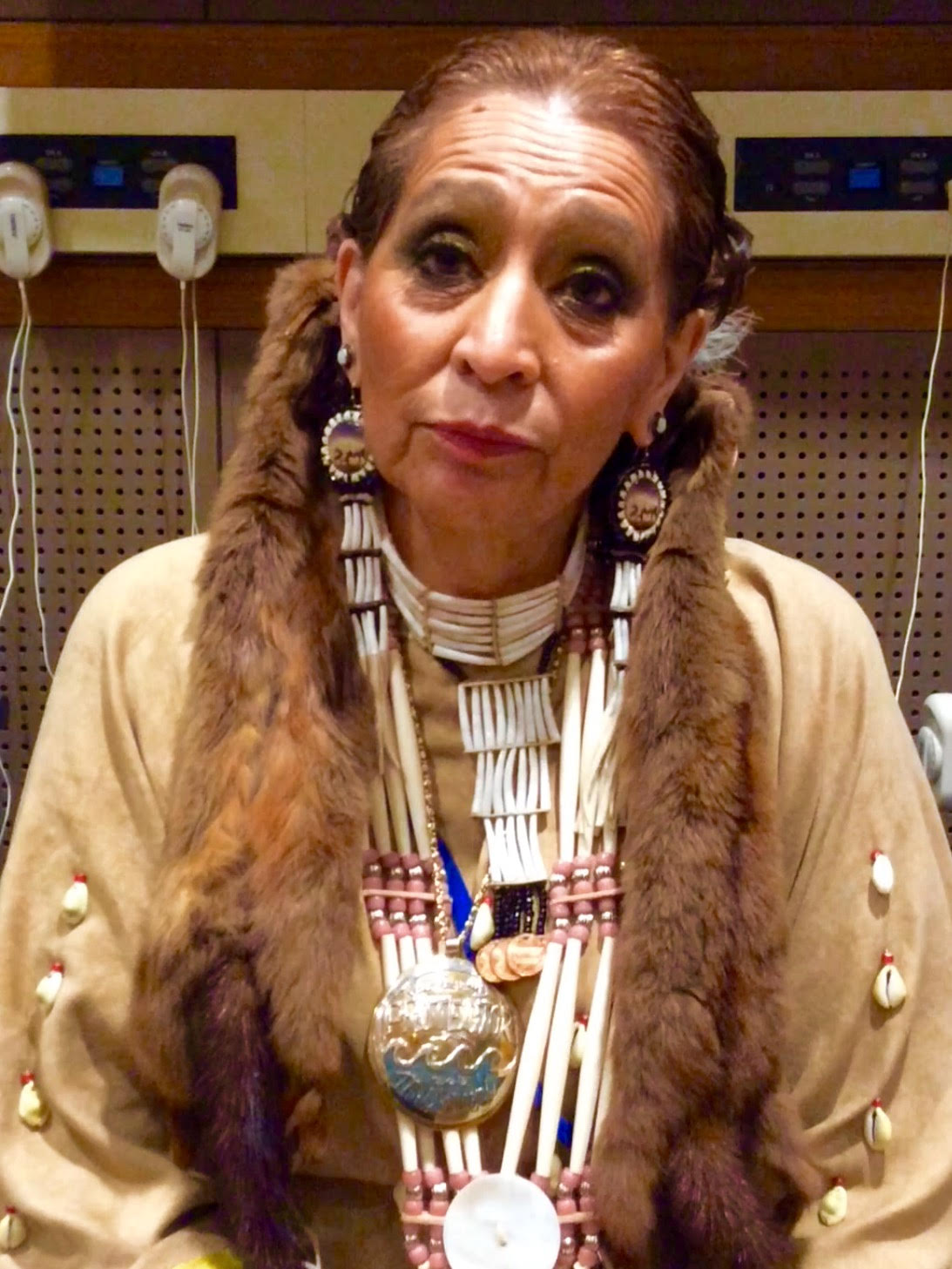
LaDonna Bravebull-Allard, a Lakota Elder activist and one of the founders of the Dakota Access Pipeline Protests at Standing Rock, managed to draw unprecedented global attention to the dangers of illegal development on indigenous territory. The Dakota Access Pipeline (DAPL) protests began in 2016, after the US government approved construction of a 1,886 km crude oil pipeline from North Dakota to Southern Illinois, which would be routed under rivers and sacred burial grounds on the Standing Rock Native Reservation.
The protests garnered international coverage and went on to become the largest gathering of Native Americans in the US in more than a century. Despite this success, however, the federal government largely ignored the demonstrations and a private security firm was hired to drive peaceful protesters out, using rubber bullets, water cannons and attack dogs. This weaponized response to peaceful protests left over 200 people wounded, some with life-altering injuries, while several other protesters are now in jail awaiting federal sentences.
‘Right now,’ says Bravebull-Allard, ‘we still have people in jail, going to court, people who will be facing federal charges. We have a list of the journalists and medics who were shot, we have people with permanent injuries from the mace, rubber bullets, grenades and water cannons.’
While many across the world supported the demonstrations at Standing Rock, the lasting injuries suffered by protesters and the continued risk of jail sentences for others have been largely overlooked by the mainstream media. With the Trump administration now pushing the pipeline’s development in the face of continued environmental concerns, Bravebull-Allard states that there may already have been oil leakages on her ancestral homeland.
Kinder Morgan Pipeline: Canada’s Secwepemc community protests the forcible development of their land
Further north, in Canada, indigenous communities are facing a similar uphill battle against the political and corporate powers behind the Kinder Morgan Pipeline, a development that would carry crude and refined oil from Alberta to the West Coast of Canada for export to global markets. The project, despite court challenges filed from myriad indigenous peoples, has been approved by the federal government. First Nations representatives claim the government has not properly consulted the communities who would be most affected by the pipeline, in direct violation of the UN Declaration on the Rights of Indigenous Peoples (UNDRIP).
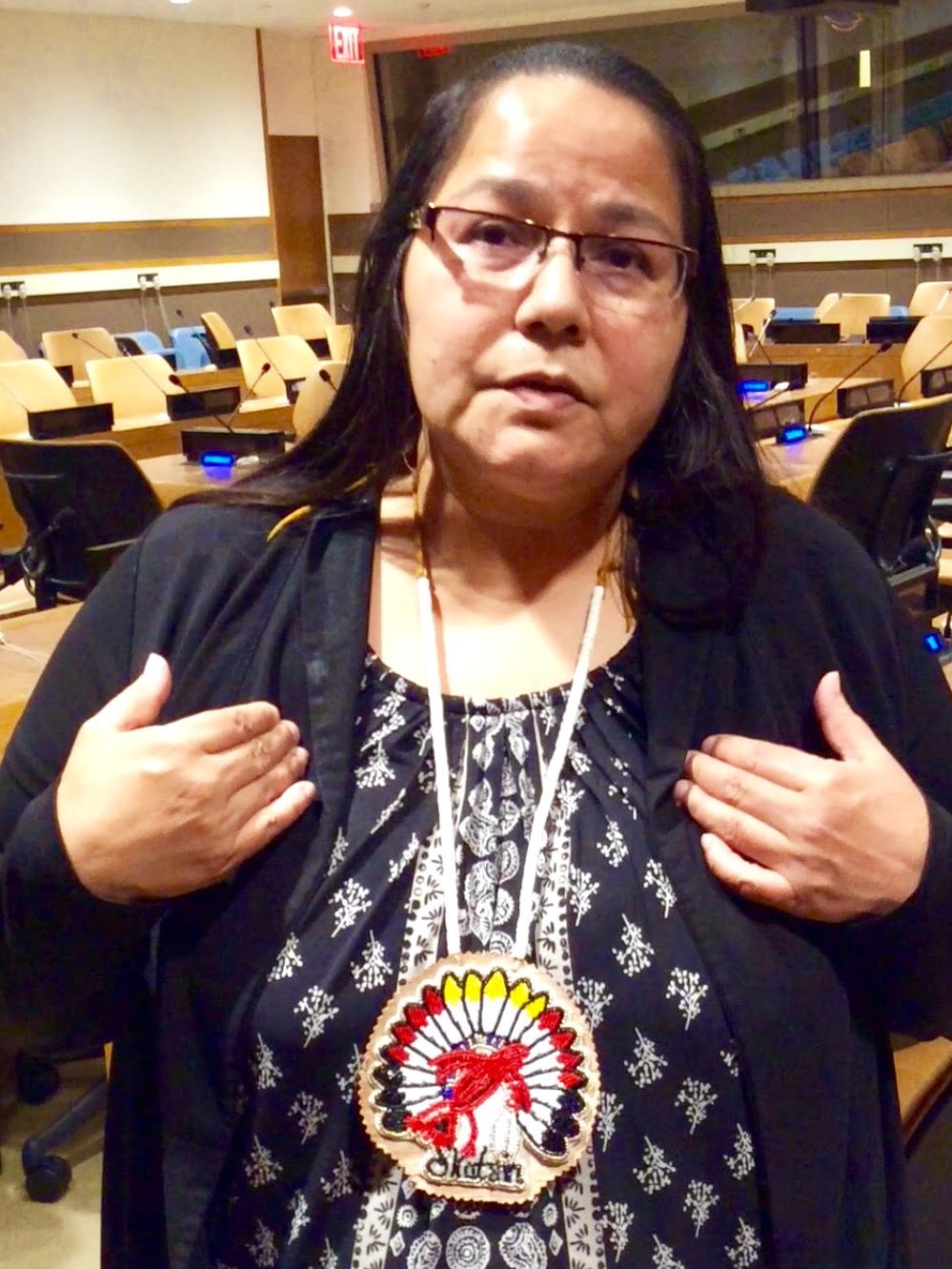
As highlighted by Chief Judy Wilson (left), the pipeline will go directly over Secwepemc land, home to some 10,000 people. ‘The Kinder Morgan approval by the federal government is the biggest contradiction yet in how they are implementing the UNDRIP and not respecting our human rights,’ she says. ‘In our interior nations we have not consented to the pipeline, the Secwepemc people have not sanctioned this project and Kinder Morgan has no consent from the Secwepemc people.’ Wilson criticizes the Canadian government for its ‘masquerading’ display on the global stage, explaining that on an international level they proclaim their commitment to indigenous peoples and free, prior and informed consent, but behind closed doors they are not true to their word. ‘They do not have our free, prior, and informed consent with Kinder Morgan, nor with our interior Secwepemc people, nor with many of the coastal nations – and that must stop. We are going to do whatever we have to do to uphold our stands, uphold our title, and uphold our rights.’
The violation of these rights is an area of particular concern for Secwepemc who, like other indigenous peoples in Canada, are still struggling with the legacy of their historic displacement from large swathes of their territory. These tensions have persisted in recent years as new developments have been constructed in territory traditionally belonging to the community, such as the controversial, multimillion dollar Sun Peaks ski resort approved in 1997 on Mount Morrissey, regarded by many Secwepemc as sacred land. The Kinder Morgan Pipeline therefore represents the latest chapter in a long process of displacement and dispossession.
Nestlé and the fight for water in Wintu territory
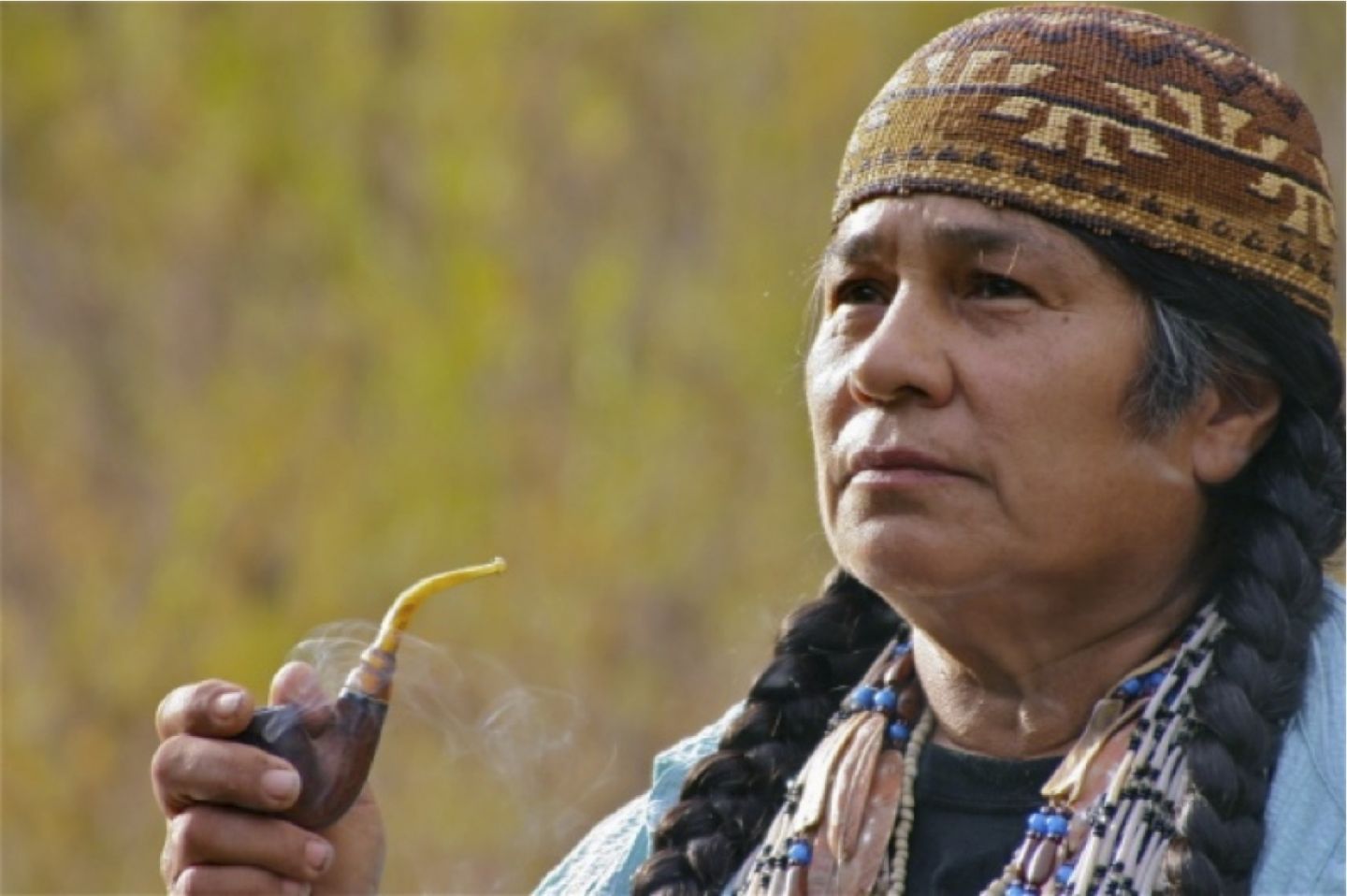
As Chief of the Winnemem Wintu tribe, along the McCloud River watershed in Northern California, Caleen Sisk (left) is a tireless activist on behalf of salmon restoration, water protection and the right to clean drinking water. She is also the Spiritual and Environmental Commissioner for ECMIA, an international network for indigenous women. She has been at the forefront of her community’s struggle to protect their precious natural resources from the attempts of Nestlé and other private corporations to bottle water on their land.
‘We have had the problem of Nestlé coming into some of our small mountain communities,’ says Sisk. ‘This impacts all people; when you tap into high mountain water sources, everything downstream is affected. This worries us because it affects our fish, it affects our drinking water and affects how much water gets to everything else that needs it. Whenever these water-bottling companies come in they contaminate half the water that used to be drinkable, they bottle the other half of the water and ship it to other parts of the world, and this water will not go downstream, and we do not get any of the water they are bottling. The rest is polluted.’
The McCloud River watershed is an area already struggling with drought, a situation only worsened by the activities of water-bottling companies on Wintu land. If this issue goes unaddressed, the lack of adequate clean water could in future lead to the forced displacement of the community. The tribe has therefore found itself locked in a continuous battle with corporations misusing their water sources, resulting in devastating impacts and severe environmental degradation to their sacred territories. While Chief Sisk and her community launched a successful legal action against Nestlé, another water-bottling business has taken its place: a lawsuit was issued against the company in question, Crystal Geyser, in April 2018 to challenge the approval of an industrial waste discharge permit to the company – a decision that Windu believe will lead to further contamination.
Protecting the environment through indigenous land rights
These case studies, spanning a number of different communities across North America, highlight the persistent difficulties that indigenous peoples face in ensuring their land rights are protected, despite the apparent progress made in recent years after decades of official discrimination, including displacement from their ancestral territories. Today, the depredation of land, water and forests by a wave of corporations, often with active government support, poses a profound threat not only to the future survival of these communities and their way of life, but also the fragile natural environments on which they depend.
As caretakers, gatekeepers and protectors of the earth and its resources, indigenous peoples in North America and elsewhere have valuable lessons to impart on the protection and conservation of the environment. ‘As indigenous people,’ says Bravebull-Allard, ‘we hold the last of the pristine land. We hold the last of the clean water.’ The encroachment on these reserves by big business is a concern not only for the communities affected, but all humanity. ‘As the corporations come in, whether for deforestation or oil or minerals, all the developments, they are taking the last of what is most precious. It’s not most precious to just indigenous people, it is to all people. We must be able to hold these areas for all people to live.’
Photo: Members of the Standing Rock Sioux Tribe hold a protest at the Sacred Stone Camp near Cannonball, North Dakota, US, to oppose the planned Dakota Access Pipeline. Credit: Panos / Hossein Fatemi.
-
By Will Baxter
Five years after the outbreak of civil conflict in the Central African Republic (CAR), a large proportion of its Muslim minority – an estimated 80 per cent of whom had been forced out of the country in the first months of fighting – are still unable to go back to their homes. In many areas, Christian militias known as anti-balaka remain active and properties belonging to Muslim families have either been taken over or destroyed. This uncertainty is preventing many from returning to their lives, leaving a legacy of conflict that has yet to be resolved.
In the CAR, Muslims attempting to return to their communities in the south-west of the country face numerous obstacles to rebuilding their lives and businesses. Most also find that they are expected to suffer a range of injustices and inequalities in silence, lest they risk upsetting a tenuous peace with local Christians.
The recent conflict in CAR was initially sparked at the close of 2012 by a coalition (‘Séléka’) of rebel groups which launched an offensive in the north against the forces of then President François Bozizé. The Séléka came mainly from ethnic groups in the north of the country, unified loosely by their opposition to Bozizé and their Muslim faith. As they advanced south, briefly seizing control, the conflict increasingly acquired ethnic and religious dimensions. Séléka raids particularly targeted non-Muslim areas. Christian communities began to form or activate existing anti-balaka (‘anti-machete’) groups to protect their areas. While anti-balaka militias may initially have fought Séléka forces, they began attacking Muslim communities more generally.
From late 2013 to early 2014, as a campaign of ethnic cleansing was perpetrated against the Muslim minority in CAR, hundreds of thousands fled to neighbouring countries, including Cameroon, Chad and the Democratic Republic of Congo. More fled during subsequent waves of violence in 2016 and 2017. By the end of 2017, there were nearly 690,000 internally displaced and over 540,000 refugees in neighbouring countries. Finding the conditions in refugee settlements difficult and untenable, many – mostly men – have returned to south-western CAR since late 2014, despite concerns about security.
Though conditions vary considerably from place to place, the situation for returnees is typically fraught. These challenges have very real implications for the reintegration of returnees and the future stability of the country.
Nola: peace, but at a cost
Before fleeing to Cameroon in 2014, Adamou, 52, owned four houses and two large stores, one in Nola and one Bayanga. When he left, his stores were looted and his homes taken over by Christians. He returned to Nola in 2015 but says he has struggled to get his business back on track.
‘When the conflict broke out, we had to run away quickly. We locked up our stores and left everything behind. At the time, we just needed to make sure we were safe. But the local population came and took everything. I lost both my stores. I lost all my merchandise,’ says Adamou.
When Adamou left CAR, he was a successful businessman, and was able to support a large family, including three wives and 17 children, ranging in age from 3 to 21. But Adamou was forced to make the difficult decision to leave them behind in Cameroon due to his concerns for their safety in CAR, as well as the financial constraints attached to bringing them back to Nola. Now his only income is from a small pharmacy that generates little profit. ‘At my old stores, I sold a wide range of merchandise. I would buy items in Cameroon and Nigeria and sell them here. Now my financial situation is dire.’
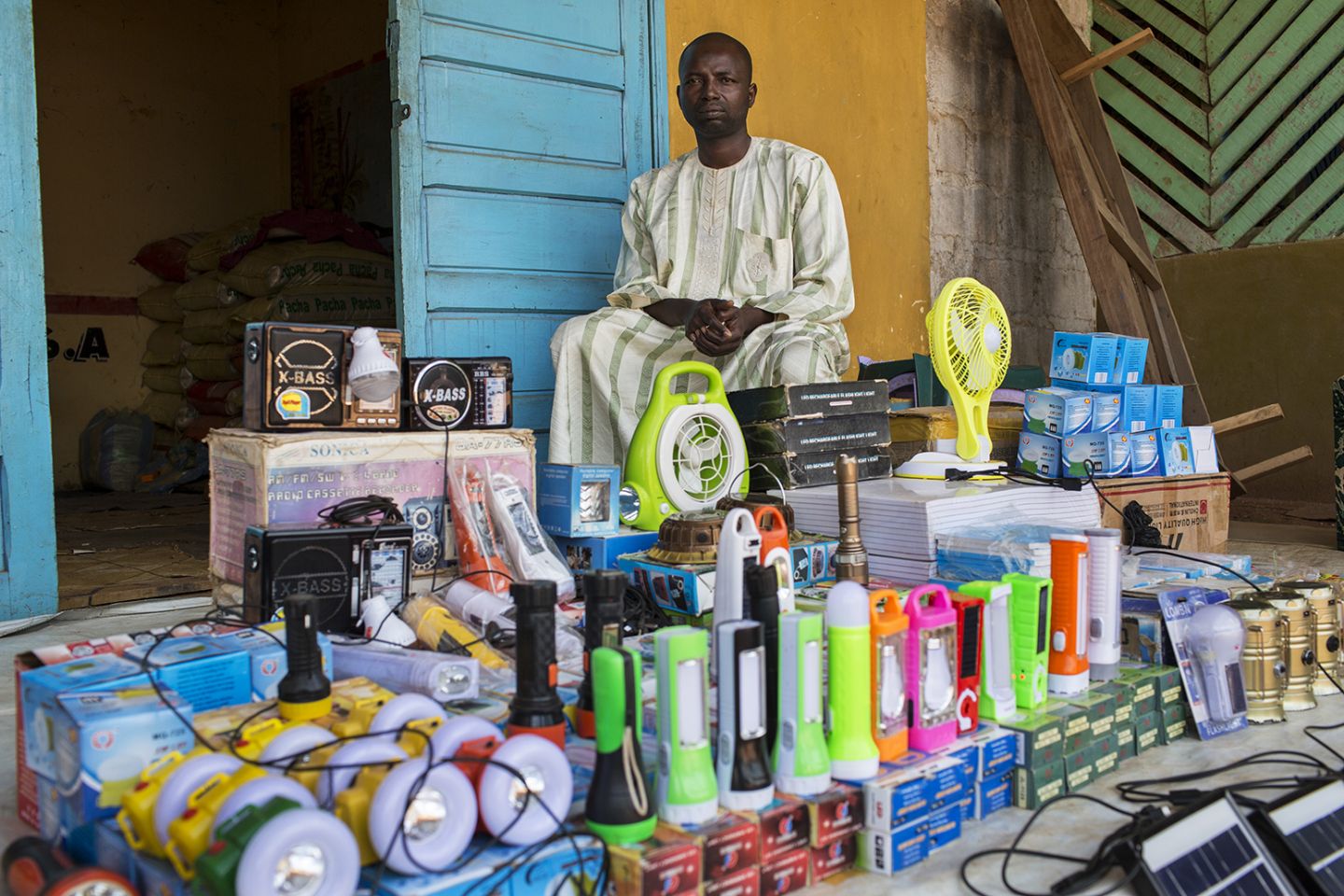
Hamadou, a Muslim returnee, poses for a portrait at his small stall in Nola town, CAR. Credit: Will Baxter. For 35-year-old Hamadou, returning to Nola after a two-year absence (he left in 2014 and returned in 2016) has also involved a major step down in status. All the shops in the town’s primary trading street have been taken over by Christians, forcing Muslims to open up their businesses on side streets and in less frequented neighbourhoods.
‘My old store was big and in a good location, right on the corner of the main street. Each month we went to Cameroon and bought items to sell here. We had good stock,’ says Hamadou. ‘Now I’ve hired this small shopfront for 15,000 CFA (US$27) per month. Sometimes I make about 2,000 CFA (US$4) per day in profit. Sometimes I lose money. There just isn’t enough interest in what I have to sell,’ he said, which includes small electronics like lanterns and flashlights.
Like many returnees, Hamadou also has the responsibility of sending remittances abroad to his family. ‘I am obliged to send money to my parents in Cameroon. Sometimes it’s 15,000 CFA, sometimes just 2,000. I do my best. But I have financial problems. I have to buy items on credit and pay the lender back on time.’
Abdramane, the coordinator for Muslim returnees in Nola, says that in addition to loss of livelihoods, housing is one of the other major issues that returnees face. ‘The Muslims’ houses were taken over by the residents here. Some left when the Muslims came back, but some ask the Muslims to pay them to leave. They say they are like the “guardian” of the house, so before leaving they have to be paid off. These guardians ask for a lot of money, sometimes for as much as 1 million CFA (US$1,830).’
Abdramane says that most returnees cannot afford to pay the exorbitant amounts demanded by these so-called caretakers and end up calling the police to help negotiate a solution. The authorities have been very helpful in this way, Abdramane said, and usually a more reasonable price is agreed upon, though this can sometimes be as high as 200,000 or 300,000 CFA (US$370 to $550).
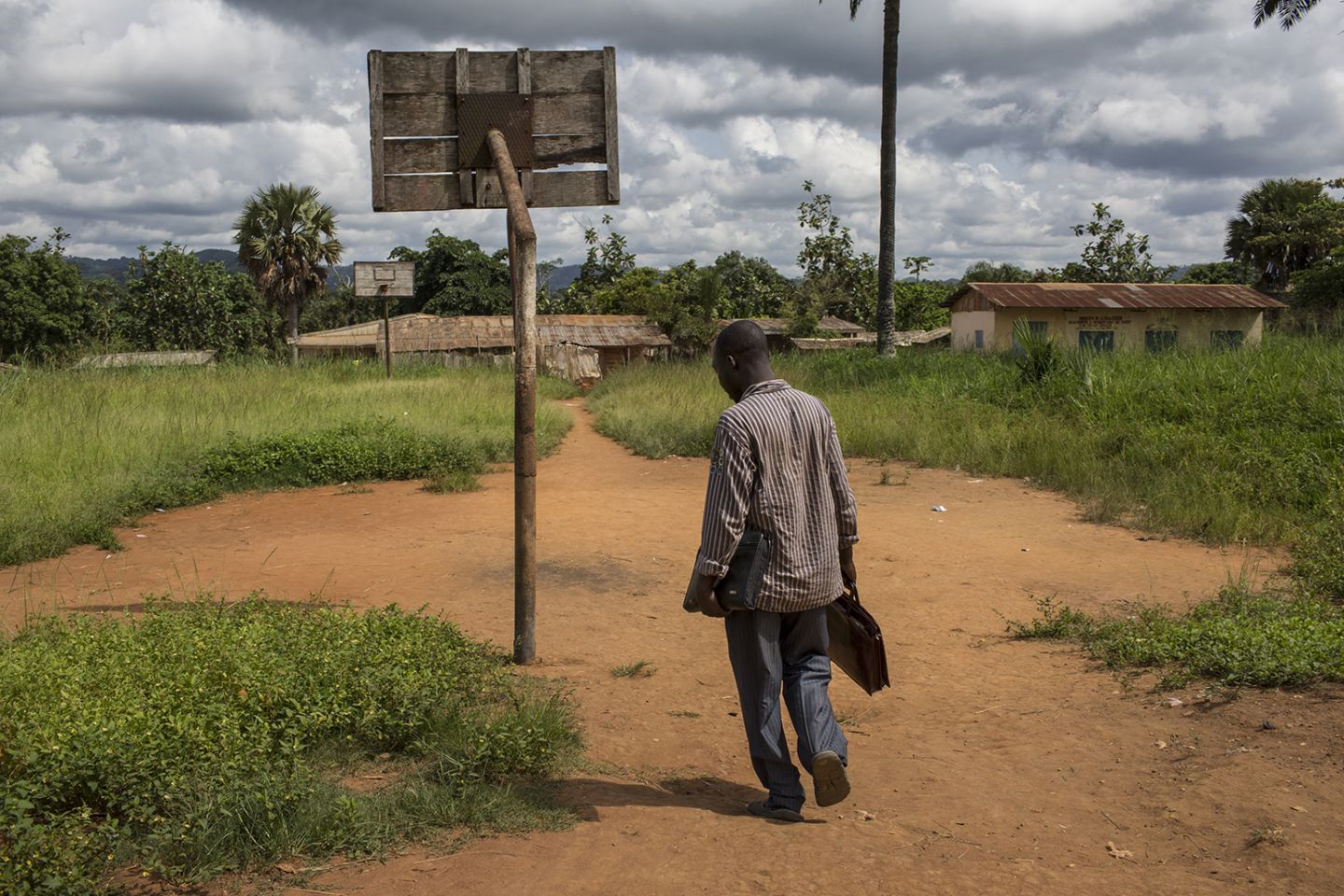
Abdramane, the coordinator for Muslim returnees in Nola, walks through Nola town, CAR. Credit: Will Baxter. Adamou has only been able to reclaim one of his properties. ‘My houses were “protected” by the local people. But those who protected the houses, now they are asking for money. Unfortunately, I am moneyless. I don’t have enough to give them,’ he says. As a consequence, three of Adamou’s houses are still occupied by Christians, though he managed to scrape together enough to buy back the right to occupy one of his homes. ‘I had to give them 50,000 CFA (US$92) to get them to leave,’ he says.
Hamadou’s experience was different. ‘When I fled, I chose an old man to secure my house. When I got back, I discovered that the old man had sold all of my possessions. When I asked him to pay me back, he was unable to pay and he ran away.’
Despite the various hardships they are facing, Hamadou says that the most important thing is that the relationship between Muslims and Christians remains peaceful. ‘Right now, we don’t have any problems. We are living side by side with the Christians,’ he says.
Garba has worked hard to help establish that peace. ‘There is open contact between myself and the anti-balaka (who now refer to themselves as a “self-defence group”),’ he said pointing out that the local former anti-balaka commander, Ferdinand Ndobadi, has been helpful in ensuring security.
‘This is a safe town, a guns-free town. There are no problems now. The issue is that there is a lack of financial support for sensitization,’ says Ndobadi, coordinator of the Shanga-Mbaire Self-Defence Group.
‘We want to maintain peace in order to promote economic activities. So we need the Muslims to come back in order for us to live together. One group needs the other,’ he says. ‘We understand now that it was political events that divided us. We understand now that we were manipulated by the politicians.’
Berberati: living with the legacy of conflict
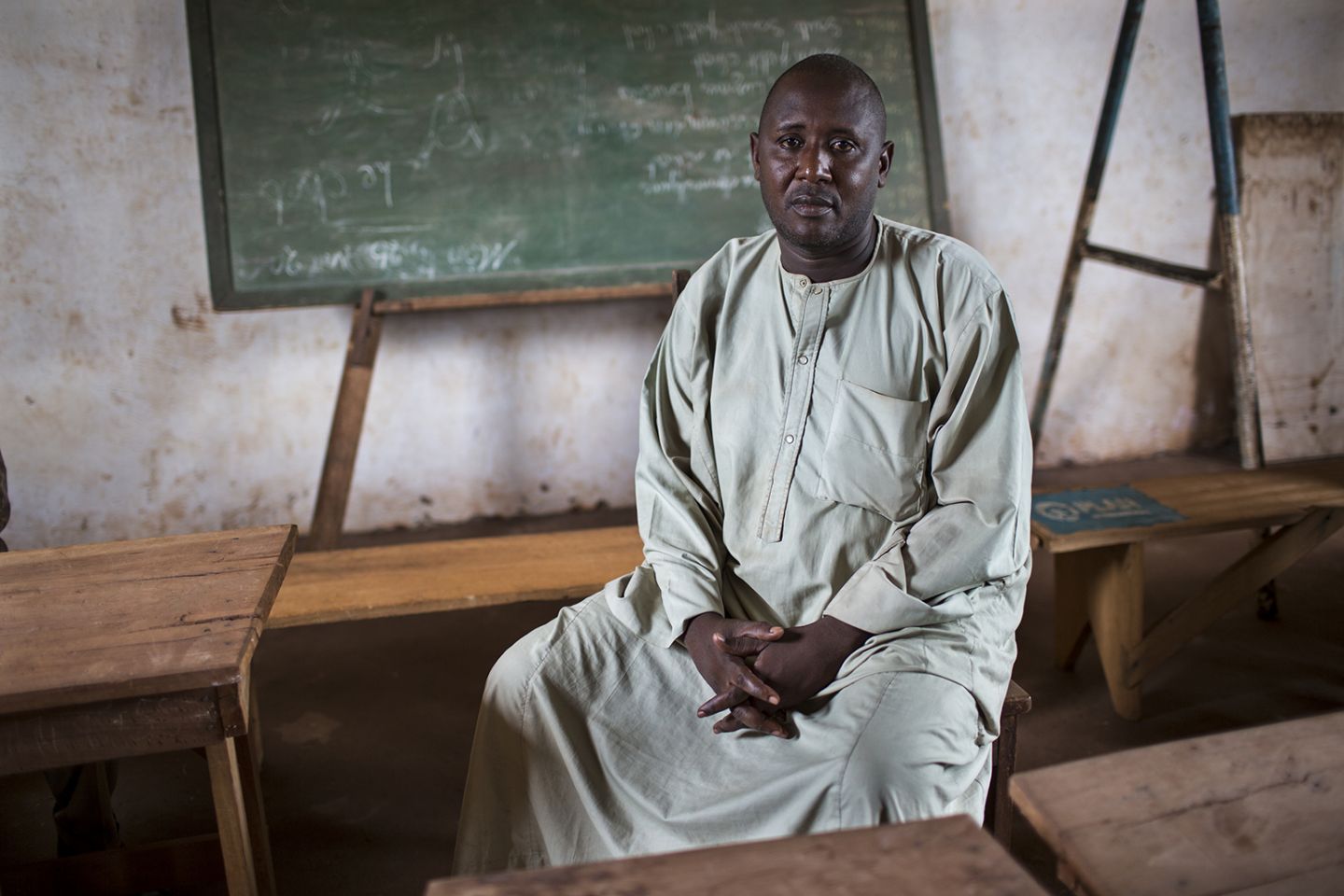
Mamadou, a Muslim returnee, in Berberati, CAR. Credit: Will Baxter. Returnees like 47-year-old Mamadou say the situation in Berberati is more bleak. Mamadou fled to Cameroon in February 2014 and returned to CAR in November 2016.
‘All of our houses were destroyed. Our businesses were destroyed. We do not have freedom of movement. We cannot conduct our business freely. Members of the local population sometimes threaten us about our business activities. If we have a problem and want to go to the law, this will just create another problem,’ he says.
Before fleeing CAR, Mamadou had a stall at the market in the centre of town. Like most returnees, he has struggled to get back into business and remains separated from his family of 14. ‘I lost my stall when I fled. Of course, being away so long, my merchandise was looted. I am trying to look for the means to make a business again, but for now I have not been able to,’ he says. ‘My family has had to stay in Cameroon because I cannot afford to bring them back. There is no security here. Even on the way back, they could face dangers.’
Mamadou says that, unlike Nola, Berberati is not safe for Muslims. ‘The Muslim leaders and anti-balaka leaders sat down together to make peace, but still we are not free. Sometimes returnees are attacked with knives. Sometimes armed people have stopped us and robbed us, demanding money. Anti-balaka youth carry out armed robberies. They will take your motorbike and then demand that you pay them to get it back. But we have no recourse. There is nothing we can do,’ he says.

Maria, a Muslim returnee, is photographed in Berberati, CAR. Credit: Will Baxter. Maria, a 42-year-old widow whose father is Muslim and whose mother is Christian, has ended up living in Popoto quarter of Berberati because she cannot return to Baleko town (25 miles south-east of Berberati), where she lived before fleeing to Cameroon in 2014. Her husband was shot and killed by the anti-balaka when they tried to flee Baleko. She returned to CAR in November 2017, but when she arrived in Baleko she discovered that her home had been destroyed. Fearing for her security, she left immediately.
Berberati does not feel very welcoming either, she says. ‘My children have problems with local children when they walk around town,’ she said, adding that her 14-, 10- and 8-year-olds have to deal with regular harassment and discrimination. ‘Muslim children have to walk on the other side of the street from the Christian children. The locals say bad things to my children. They say “You should have stayed away. It is no use for you to come back here. You don’t belong.”’
Maria said that freedom of movement is a major issue and that her ability to move has been further constrained because she lost her ID card when she fled her home. ‘We lost all of our documents. This causes big problems when we want to travel or even just move from one town to the next.’ More everyday concerns also take their toll. ‘Now we have problems getting money, food and clothes. I need medicine for back pain. My children have had malaria and some are anaemic. But I cannot afford medical exams. I can only afford to buy Panadol tablets and sometimes I just make do with traditional medicines and make a tea from leaves and bark.’
Maria also laments the fact that her children are missing out on the opportunity to attend school. ‘I want my younger children to be able to continue their studies, but the fees are too much,’ she says.

Haroun, a Muslim returnee, poses for a portrait in Berberati, CAR. Credit: Will Baxter. For the younger generation, this inability to further their education will likely have long-lasting impacts. Haroun, 22, has also had to put his studies on hold. He fled Bania town (29 miles from Berberati) for Chad in April 2014, returning in March 2016. He was forced to relocate to Berberati in November 2017 after he and a friend were attacked by a group of anti-balaka youth.
‘One night I was coming back to Bania with a friend. As we arrived, a group of anti-balaka youth stoned us with rocks and tried to beat us with wooden clubs. Thanks to the police, who chased them away, I was able to get back to Berberati safely.’
Haroun stopped studying when he was 16. ‘I would like to finish my studies, and more than anything I would like to attend university in Bangui. But I try not to dream about this too much. There are many obstacles to me continuing my education,’ he said, such as lack of money. ‘I was a good student and sometimes I got good grades. If I had the opportunity, I would continue my studies at university. To be honest, I would study anything.’
Back in Nola, Abdramane says he will continue to do his best to maintain peace and assist returnees in any way he can. ‘But I worry a lot about the risks I am taking and the risk I am putting myself in as the focal point, giving information to people about what is happening in Nola. All eyes are fixed on me, so I can honestly say that my life is in danger,’ he says. ‘There are still enemies of peace here … bad people with bad intentions. These are the ones who worry me.’
Header image: A Muslim girl walks down a street in Nola town, CAR. Credit: Will Baxter.
-
By Kate George
Dominicans of Haitian descent as well as Haitian immigrants have suffered a long history of discrimination, punctuated by outbreaks of targeted violence and detentions. Recently, however, they have faced further difficulties amidst an official crackdown that has seen thousands deported from the country, including many with valid claims of citizenship. This latest episode has brought the country’s deep-seated racism to the surface – and left those still in the country at risk of persecution.
Despite the decades of discrimination they have experienced in the DR, from official persecution to vigilante attacks, thousands of Haitians have continued to settle in the country to work on plantations or in construction. But though they have played a crucial role in these sectors and the wider Dominican economy, their public vilification has persisted – notwithstanding the fact that a sizeable number have been settled for generations and have valid claims to Dominican citizenship.
Their problems intensified in September 2013 when the DR’s Constitutional Court issued judgment TC/0168/13, stripping hundreds of thousands of Dominicans of Haitian descent of their Dominican nationality. This included all Dominicans whose parents were not born in the DR and was retroactive for anyone born in 1929 or later. It ruled that, in line with the 2010 National Constitution, all children born in the DR to foreign parents in transit or residing in the country irregularly would not receive Dominican nationality.
This judgment has paved the way for the mass deportation of many Dominicans of Haitian descent and Haitian immigrants to Haiti, as well as exacerbating the already entrenched discrimination experienced by these individuals. Despite some steps to resolve the situation, including the passage of a highly flawed Naturalization Law in May 2014, thousands of Dominicans of Haitian descent have yet to regularize their status. Besides effectively rendering them stateless, this has left many at risk of deportation to Haiti – a country some have never even visited. The legislation has been condemned by, among others, the Inter-American Commission on Human Rights (IACHR), which has highlighted the acutely discriminatory nature of the ruling and its disproportionate impact on Dominicans of Haitian descent, many of whom have been left unable to access essential services such as education and health care.
Although the Dominican government implemented a temporary 18-month suspension of mass deportation in December 2013 in order to allow undocumented foreigners to regularize their status, these deportations resumed in June 2015. Since then, thousands have been deported from the country, including many with valid claims to Dominican citizenship, and the situation for those who remain in the country has deteriorated dramatically.
In a recent interview with staff at MUDHA (Movimiento de Mujeres Dominico-Haitianas), a non-governmental organization providing social and legal assistance to Dominicans of Haitian descent facing deportation and discrimination, Legal and Human Rights Area Coordinator Jenny Carolina Moron Reyes describes how community members have been specifically targeted by the authorities. ‘Community information is spreading on police raids and migration officers entering communities with the aim of deporting foreign persons,’ she says. ‘The national press has highlighted the deportation process that is being carried out by the national authorities, as well as xenophobic and discriminatory actions towards Haitians and Dominicans of Haitian descent, especially women.’
This official crackdown has been accompanied by widespread popular xenophobia and outbreaks of anti-Haitian violence by vigilantes that have forced many to leave the Dominican Republic. There has also been an increase in xenophobic attacks on Dominicans of Haitian descent by nationalist groups in the country. This was recently exemplified by aggressive protests in May 2018 that disrupted the IACHR’s 168th session in Santo Domingo. As a result, the IACHR was prematurely forced to close the meeting to ensure the safety of its members. Elsewhere, border provinces such as Pedernales have experienced a rise in xenophobic attacks and aggression towards Dominicans of Haitian descent and Haitians. Nationalist groups have also used social media platforms to incite hatred and discrimination towards these groups.
While efforts to resolve the status of Dominicans of Haitian descent are ongoing, they continue to be informed by a fundamental reluctance to recognize Dominicans of Haitian descent as full citizens. Moron Reyes points to the creation of the so-called ‘book of foreigners’ and other registries where Dominicans of Haitian descent are listed as reflecting broader attitudes of what she describes as ‘state encroachment’. ‘They are portrayed by the Dominican government as a solution to the problem of statelessness,’ she says. ‘The fact remains that while the book provides individuals with an identity, it can still leave them stateless.’
While these issues are specific to Dominicans of Haitian descent, their situation and the treatment of Haitian immigrants more generally are interlinked. The denial of citizenship and the official crackdown on immigrants are both reflective of the broader racism all groups have suffered in the country. Even if the situation of the Dominicans of Haitian descent minority is eventually resolved, without a sustained commitment at all levels of society to address this prejudice they will remain second-class citizens in their own country. In the meantime, the deportations continue.
Photo: A still from Minority Rights Group International’s film about Dominicans of Haitian descent living with statelessness in the Dominican Republic. Credit: MRG.
-
The legacy of Guatemala’s brutal civil war, which saw security forces target thousands of indigenous citizens in a campaign of sexual assault, torture and mass executions, continues to be felt today, with many communities still subjected to very high levels of violence. For indigenous youth, in particular, the presence of criminal gangs is a frequent source of danger – leaving many with no choice but to flee the country.
Raised by his mother and grandfather, Jorge C. spent much of his teenage years alternating between hiding out in his family’s small shack and working in the fields of his home in San Juan Ixcoy (Yich K’ox), in the department of Huehuetenango in Guatemala, where he cultivated and harvested potatoes. His home region of the Sierra de los Cuchumatanes is the highest non-volcanic mountain range in Central America.
Like many other indigenous inhabitants of Guatemala’s Western Highlands, 19-year-old Jorge is illiterate and grew up in a multilingual household. His mother speaks both Spanish and Mam and washes clothes for a living.
Jorge, his brother, and his two sisters were raised by his single mother. He began working in the fields at age 12. ‘We are campesinos,’ he said. ‘I did not have the opportunity to continue in school because I had to help support my brother and sisters to survive.’ He earned roughly 350 quetzales (US$47) per week.
By the time he was 14, the local branch of the 18th Street gang targeted him. They wanted him, he says, to sell drugs. A friend of his had already joined and was serving as an informant of sorts, tipping off other members as to Jorge’s whereabouts and activities. At first, they acted as if they were trying to simply befriend him.
‘I am an easy target,’ Jorge said. ‘I am more vulnerable because I do not have a father. Where I am from in Guatemala, gang members hang out on the corners, often outside the school. They smoke drugs and sell them. One day they told me that we had to go to a bridge to pick up a shipment. I was confused … They gave me a backpack and said I had to sell drugs by the school.’ The bag contained marijuana.
Jorge tried to escape by running away. He was badly beaten.
Upon arriving home, he told his mother what had happened. She wanted Jorge to tell the local police. He refused. ‘The auxiliary police have a giant tank of cold water,’ he explained. ‘They will throw you in for 20 minutes at a time, and then drag you out and beat you. After they beat you, they will throw you back in again for 20 minutes, and then beat you again.’ Furthermore, he believed he would not be taken seriously. ‘The police don’t listen to us as indigenous people – they do not care about us.’
While Jorge’s community is impacted by narco-trafficking and gang activity, the population of the region – almost entirely by indigenous Maya, Mam and Akatek – has also long been subject to discrimination. During Guatemala’s 36-year civil war, when the military targeted entire indigenous communities indiscriminately in its brutal counter-insurgency, many of Huehuetenango’s inhabitants were forced to flee. The Guatemalan Truth Commission Report subsequently identified indigenous groups as victims of genocide perpetrated by the government. Across the country, 83 per cent of the roughly 200,000 wartime casualties were indigenous Guatemalans. In 1999, when a voluntary repatriation agreement was passed, tens of thousands of displaced Q’anjob’al, Mam and Chuj returned to Huehuetenango. There was little work to be found, however, leaving many in a state of continued insecurity and deprivation.
Today, more than two decades after the formal end of the civil war, the long history of indigenous exclusion continues: four out of five indigenous Guatemalans live below the poverty line, with limited access to health care, education and other basic services. The political disenfranchisement of the indigenous populations in Guatemala’s Western Highlands, though acute, is also prevalent across the country as a whole. For the 2016–20 legislative term in the Guatemalan Congress, only 19 out of the 158 legislators identified as indigenous, or 12 per cent, despite indigenous peoples comprising between 40 and 60 per cent of the total population. At the local level, this leaves indigenous youth like Jorge with little in the way of official protection when faced with violence or intimidation.
When gang members followed Jorge home from work in the fields, his uncle and grandfather took up their machetes to ward them off. ‘My family wanted me to stay hidden as much as I could,’ he said. ‘I stayed like this for around two months. When I finally began leaving the house, they grabbed me on the street and demanded to know where I had been … I refused to tell them. They started punching me, and that is when someone cut my hand.’ Afterwards, the teenager stayed inside for a year.
When he finally left his house, Jorge was seized by the gang again. ‘They threw me in the mud, and cut my mouth with a knife,’ he recalled. ‘It was a message: that this is what happens if you talk to the police. They told me that I could expect more beatings, if I continued to refuse to join them, and that next time I would suffer worse.’
Then 15, Jorge decided to continue working in the potato fields with his uncle, choosing to leave the house early each morning under the cover of night and returning after dark. He stayed inside the rest of the time. Eventually, he says, he made the mistake of going to a local store to buy bread. There he encountered his friend, who was a member of the gang. ‘He told me that if I continued to refuse [to join] the gang, then the main guy in charge was going to order that my hand be cut off,’ Jorge said. ‘I was very scared.’
When Jorge’s younger sister was raped by a gang member in retaliation for his refusal to join, he finally decided to flee. ‘I could not stay in Guatemala any more because the gang would never stop,’ he said. ‘Not only was I afraid for my life, but also my family.’
Jorge travelled north to the Guatemala–Mexico border and took a job as a farm worker. It was hard to find a job because of his age and undocumented status in Mexico. Six months after his arrival in Chiapas, the gang learned of his whereabouts. Strangers pretending to be family members came asking around for a young man with scars on his mouth and hand. ‘They went from house to house trying to get information about me,’ Jorge recounted.
His boss suggested requesting asylum in the United States. Jorge initially didn’t like the idea, but began to consider it. ‘The idea of going to the US scared me,’ he said. ‘I am a quiet and shy person.’
In early August 2017, Jorge arrived in Tijuana, and ended up at Casa YMCA, the city’s only shelter for under-age minors. Since 1991, the shelter has helped more than 59,000 unaccompanied migrant youth. According to shelter director Uriel Gonzalez, youth who pass through are able to come and go at will. A staff social worker helps under-age migrants understand their rights and their options. During Jorge’s month-long stay at the shelter, he remained inside, fearful of going out. He met a lawyer from the non-profit organization Al Otro Lado, who explained the US asylum process and agreed to represent Jorge pro bono.
In early 2018, Ramos helped Jorge turn himself in at the border between Tijuana and San Diego. His asylum application is pending. It will likely remain in limbo for years. His odds are slim. According to data compiled by the Transactional Records Access Clearinghouse, a data-gathering organization at Syracuse University, almost 80 per cent of individuals who fled Guatemala and requested asylum were denied between 2011 and 2016.
‘I am begging for the protection of the United States,’ Jorge says. He is currently working as a gardener. He believes he will die if he is returned to Guatemala. ‘I called home to my mother to get news from home, and she told me that my cousin was killed this week by the gang. He was walking home on his way home from playing soccer. The gang beat him, tortured him, cut off his fingers, and then killed him. We are terrified … I do not think about the future any more.’
-
By Sajjad Hassan
For many of India‘s indigenous communities, poverty and displacement from their ancestral lands have driven large numbers to move to urban areas in the hope of securing education or employment there. All too often, however, these marginalized communities find their situation replicated in cities as they struggle with evictions, segregation and continued barriers to accessing even the most basic services.
Rangpuri, in south-west Delhi, a stone’s throw from the sprawling Indra Gandhi International airport and not far from the gleaming business district of Gurgaon, is typical of the fringes of India’s national capital. New and upcoming apartment blocks – in various stages of construction – crowd the skyline, built to house the multitudes that pour into this ever-growing city. Amid the dusty landscape, in what were once low-lying hills before the scramble for urban growth consumed the area, sits Rangpuri Pahari. Today, the surroundings have been reduced to a dumping ground for construction waste and litter.
Rangpuri Pahari is home to a community of Ghiyaras, a nomadic people, now settled, having migrated to Delhi’s outskirts from neighbouring Rajasthan in 1994. Tarpaulin tents and makeshift cabins, lining narrow alleys, make up the settlement and house around 200 families. Towards the end of the afternoon, children run about as the men, back after the day’s work, sit in a circle making small talk and smoking hookah (water pipe), while the women light their fires and begin to cook the evening meal.
Basanti Devi, baking rotis on her wood stove, describes the everyday difficulties for Rangpuri’s residents. ‘This was barren land,’ she says. ‘We settled it, when we came here many years ago. But it remains inhospitable. The government has done nothing for us. We have no water supply, no toilets, no electricity.’ Water in particular is a serious issue: while a municipal tanker makes the rounds once a week, the water it provides is nowhere near enough for the community and so residents are forced to buy water at considerable expense. As a result, they are only able to shower once a week. ‘Children are made fun of in school because they are not washed. And lack of toilets of our own, and disappearing wood cover all around, due to non-stop developments, means we often have to wait until nightfall to ease ourselves. There have been many cases of children being victims of snake bites.’
Ghiyaras’ access to basic services and social security programmes is practically non-existent. The menfolk, smoking in a circle, note that other services too are scarce. And while identification documents are now common across the country, due to the government’s drive to formalize and connect all services, this is not the case for the hundreds of Ghiyaras living in Rangpuri. Their lack of identification documents locks them out of many services and social security benefits – most of which are now linked to biometric identification processes. Their situation is made even worse by the fact that they also do not possess ‘caste certificates’. These documents serve as passports to India’s elaborate system of affirmative action policies, including quotas in educational institutions and public sector employment, as well as access to social security programmes: without them, Ghiyaras are more or less unable to secure any of these benefits.
Their efforts to regularize their status have so far proved unsuccessful, obstructed by arduous and expensive bureaucratic hurdles. ‘We keep trying to obtain caste certificates too from the government, but there is no progress,’ says Satish Vaidji. ‘Patwaris [land revenue officers, authorized to confirm residence] make us go round and round in circles, asking for recommendations from local legislators and senior officers, each of which demands large sums of money as bribes, to do what they are supposed to do. We have had enough.’
Without identification documents or caste certificates, Ghiyaras remain trapped in their present state of exclusion, with little chance of escaping their predicament. There is no government school in the vicinity. A few students have recently managed to obtain admission to a primary school some distance away, but for the most part children in the settlement while their time away, waiting for the moment when they will themselves join their parents in the gruelling, poorly paid work on which the entire community depends. For the boys, this means hard physical labour on construction sites or occasionally falling back on traditional occupations, such as drumming at wedding ceremonies and serving as earwax removers. The girls, on the other hand, help with domestic chores and join their mothers as rag-pickers or domestic help in the houses of the middle-class families in apartment blocks nearby. During their short time in Delhi, Ghiyaras have experienced the full extent of what poverty in urban India can entail.
Another fundamental problem for Rangpuri’s Ghiyaras is their lack of title over the land they occupy and have made their home for over two decades. Dhanpat Pradhan, the community chief, reports that as efforts to secure recognition have stalled repeatedly, investors have begun to circle their land. ‘We have tried many times to get the government to give us title to land, so we could live securely, but no one listens to us. We are tired. And with property developers looking for more opportunities for newer building projects, they are always putting pressure on us to vacate the land. These developers are rich and powerful. They are able to bribe government officials, to deny us our rights and get them to force us to vacate.’ In recent years, their tactics have become more openly coercive, including threats of violence. ‘Initially the developers offered us money to leave. When we did not move, they began using threats and intimidation. In 2014, there was trouble, with property developers attacking us. The police and administration did not provide us with any support.’
Earlier, in 2013, the group had approached the courts to resolve the land title issue and managed to get relief in the form of an injunction against attempts by developers to force the community to vacate the site until the matter was settled amicably. This has eased the pressure on the community and is the only silver lining, residents said, in the dark cloud of their near-complete exclusion.
Ghiyaras are among India’s most marginalized, one of the broader category of ‘Denotified Nomadic and Semi-Nomadic Tribes’ that, according to government estimates, number some 110 million across India. These communities have traditionally earned their livelihood moving from place to place, making weapons and iron implements, performing on the streets – as musicians, puppeteers, jugglers, snake charmers and similar – herding livestock, selling traditional medicines made with herbs or hunting wild animals. The story of their present-day exclusion begins in British colonial times when, with the enactment of the Criminal Tribes Act 1871, the colonial government characterized specific ethnic groups as ‘addicted to the systematic commission of non-bailable offences’ such as thefts. Describing Ghiyaras as ‘habitually criminal’, the law imposed restrictions on the movements of these communities, with adult male members forced to report weekly to the local police. In 1952, after independence, the Criminal Tribes Act was repealed and some 150 communities were denotified, hence the term ‘denotified tribes’.
But that did not prevent the continued stigmatization of Ghiyaras and similar groups. Various laws passed by state governments and central government since independence have adversely affected the livelihoods of denotified peoples. Soon after the repeal of the Criminal Tribes Act, many states passed a Habitual Offenders Act (between 1952 and 1959), bringing those communities within the scope of this law, yet again curtailing the freedom of the groups. Subsequent legislation adversely affected the livelihoods of the groups without providing any alternative sources of income. The Prevention of Begging Act (1950) particularly affected groups such as Ghiyaras, who traditionally survived by holding street shows but now found themselves harassed by the police and frequently charged under the act. Communities that depended on wild animals for performances were also deprived of their livelihood with the enactment of the Prevention of Cruelty to Animals Act (1960) and the Wildlife Protection Act (1972). Other pieces of legislation, the Medical Council Act (1956) and the Drugs and Magic Remedies Act (1954) rendered many traditional occupations ‘illegal’. More recently, legislation concerning cattle, such as the Rajasthan Bovine Animal (Prohibition of Slaughter and Regulation of Temporary Migration or Exports) Act 1995, banned the traditional occupation of cattle herding and trading groups in Rajasthan and Haryana.
In the context of the social prejudice the groups have suffered for centuries – mainstream society has yet to accept them as equals and they are still perceived as criminals, giving rise to frequent complaints of police harassment – the loss of traditional livelihoods and the absence of sustainable alternatives has driven such groups to migrate, in search of both new livelihoods and greater equality elsewhere. It was this search that drove Ghiyaras from Rajasthan to the outskirts of Delhi a quarter of a century ago, and which keeps them there, living in dire conditions in the hope of recognition and opportunities.
Today, most of the so-called denotified and nomadic communities have become settled, with some taking up newer professions, mostly low-skilled occupations such as construction work, domestic help, rag-picking, begging and so on, with little livelihood security and earning barely enough to survive. Evidently, there is little in the Indian growth story for Ghiyaras and other groups in similar circumstances, however close they might be to the engines of that growth. A recent survey on eight denotified and nomadic communities in Delhi found that, besides the lack of secure habitation, only a small proportion of households had access to adequate sanitation, while health care and education were also out of reach for most of them. A key element in this, the study found, besides state indifference and lack of documentation, was the constant threat of displacement that these communities faced from authorities – a situation of protracted uncertainty that meant many were not in a position to enrol their children in schools.
Pradhan is a cynical man. His scepticism is shared by his kinsfolk. But so is his stoicism. ‘We have tried our best to get what we deserve. We have the same rights as anyone else, so why are we neglected and denied those rights?’ he says. ‘We have knocked on every door. But nothing has worked. Like you, many people, including media persons, have come and spoken to us, interviewed us, written about us, shot films. And they have come again. But our life has not changed. But we will keep fighting for our rights, regardless.’
-
By Charlotte Graham
Across the Middle East, thousands of sub-Saharan migrants – including workers stranded by conflict, asylum seekers fleeing violence and others attempting the dangerous journey to Europe – have become some of the region’s most vulnerable people, targeted by traffickers and militias alike. But in Israel, where for years a community of Eritrean and Sudanese asylum seekers has resided, their hopes of sanctuary are giving way to apprehension as nationalists seek to deport the so-called ‘infiltrators’ from the country.
Amid ongoing crisis and insecurity in sub-Saharan Africa, increasing numbers of asylum seekers have migrated in recent years to Israel through Egypt. More than 90 per cent of them originate from Eritrea and Sudan, both countries with deplorable human rights records: while Eritreans flee the oppressive rule of unelected President Isaias Afwerki and all the human rights abuses that come with a dictatorship, Sudanese seek to escape the continued violence in Darfur and the country’s deteriorating economic situation. The road to Israel is long and hard, with those making the journey suffering abuse, kidnapping, torture and extortion on the way to what many hope will be asylum. Women and girls are especially vulnerable, and many refugees die en route to Israel or other countries.
However, their reception in Israel has been far from welcoming. While Eritreans in particular receive high rates of refugee recognition in European nations, African asylum seekers in Israel are not afforded the same acceptance. Despite being a signatory to the UN Convention relating to the Status of Refugees, Israel has granted official refugee status to just 11 of the approximately 35,000 Eritreans and Sudanese in the country. Until early 2018, when the Israeli Supreme Court suspended the detention of asylum seekers until a clear pathway for voluntary resettlement was in place, more than 1,200 asylum seekers were being held in detention facilities. By then, large numbers of Eritreans and Sudanese had already been ‘voluntarily’ deported by being threatened with indefinite detention if they did not leave.
These issues were brought to the fore by the Israeli government’s announcement in January 2018 that tens of thousands of sub-Saharan African refugees would be paid a sum of US$3,500 each in exchange for leaving the country, with a free air ticket to their country of nationality or ‘third countries’ (though officially unconfirmed at the time, these were identified as Rwanda and Uganda). This move was condemned as illegal by the UN, who subsequently brokered an arrangement in April in which Israel agreed that some 16,000 sub-Saharan Africans could be resettled in Western countries while granting temporary residency to an additional 16,000 sub-Saharan refugees in Israel. This deal, however, was cancelled shortly afterwards by the Israeli government. At the time of writing, it remains unclear what the fate of thousands of sub-Saharan Africans in Israel will be. As the deals with Rwanda and Uganda also fell through, authorities are currently unable to undertake any further forcible deportations. Prime Minister Benjamin Netanyahu has threatened to reopen recently closed detention facilities where hundreds of asylum seekers had been incarcerated for months at a time.
These recent developments cannot be separated from the reality of widespread racism in Israel towards sub-Saharan Africans – most of whom are classified as ‘infiltrators’ by Israeli authorities. Even for those not currently detained, life is difficult, with tens of thousands concentrated in inadequate housing in marginalized areas of south Tel Aviv where they have also faced rising levels of hostility, including property destruction, egg-throwing, racist demonstrations and other forms of harassment. While this prejudice has been challenged by a broad and vocal response from civil society groups within Israel, others have used their positions of power to vilify the country’s African population. In March 2018, Netanyahu suggested that African migrants posed a greater threat to Israel than terrorist attacks from Sinai and, in the same month, the Sephardic chief rabbi of Israel, Yitzhak Yose, notoriously described black people as ‘monkeys’ in a public sermon.
For the significant numbers of sub-Saharan Africans already deported from Israel, the situation is even harder. Research conducted by NGOs on those previously deported to Rwanda and Uganda found that none had been granted residency on arrival, leaving them with an irregular status and thus at constant risk of being returned to their countries of origin. As a result, many of those already deported from Israel have chosen instead to take the dangerous migrant route through Libya and attempt to cross the Mediterranean into Europe – a journey which claimed an estimated 3,139 lives in 2017. While the exact origin of the majority (2,215) of these deceased individuals is unknown, of the 924 whose region of origin was recorded 823 were from sub-Saharan Africa. Interviews by UNHCR with refugees in Rome – who, after being deported from Israel, chose to make the difficult journey to Europe – have highlighted the violence, exploitation and abuses they experienced along the way, travelling through multiple conflict zones before risking their lives to reach Italy.
While thousands of sub-Saharan Africans remain in limbo in Israel, there have been few signs that attitudes among the nationalist right wing have softened. The lack of a resolution, as well as the prospect of further detention, leaves many with few opportunities to build their lives meaningfully after the trauma of fleeing the insecurity and chaos in their home countries.
Header photo: African asylum seekers during a protest march in Tel Aviv, Israel, call on the government to recognize African migrants as refugees. Credit: Ahikam Seri / Panos.
-
By Catrinel Motoc
Roma, one of Europe’s most marginalized minorities, continue to be targeted in many countries with forced evictions – a situation that locks them into a cycle of displacement and human rights violations that affect every aspect of their lives. In Italy, this phenomenon has been especially pronounced, with an increasing number of informal settlements demolished by authorities across the country.
The destruction of Gianturco
On 7 April 2017, the Roma informal settlement of Gianturco, in the city of Naples, southern Italy, was demolished. All that was left of it after the bulldozers had finished were a few toys and pieces of furniture abandoned in the rubble.
For several years, around 1,300 Romanian Roma, including hundreds of children and elderly, sick and disabled people, had called this place ‘home’. Many had left Romania in search of a better future. ‘If there was work at home [in Romania], we would not have come here’, said one of the Gianturco inhabitants shortly before the April 2017 forced eviction. In fact, acute poverty, lack of access to health care, inadequate living conditions and forced evictions, coupled with deep-rooted discrimination grounded in centuries of persecution and discrimination, are among the many factors that push thousands of Romanian Roma to travel abroad to countries like Italy, France, Spain and elsewhere in search of a better life for themselves and their children.
But even once they made it to Italy, many Roma, like the Gianturco residents, faced a harsh reality. Most of them had already lived through countless forced evictions before settling there, in the hope of finding some stability in their lives.
Many of the houses had been built painstakingly by their inhabitants, using whatever materials were available, and slowly improved over time with the limited resources they had. It took local authorities just four hours to raze the entire settlement to the ground. By eleven o’clock that morning, Gianturco no longer existed.
The threat to the community first came in January 2016, when a court issued an order for the eviction, giving families just 30 days to leave the privately owned land where Gianturco was located. But these families had nowhere else to go. While the municipality managed to negotiate some extensions of the deadline to delay the eviction by a year or so, they failed during those months to carry out a genuine consultation to explore possible alternatives to the eviction and rehousing options for all of the affected inhabitants.
As a result, on the morning when the demolitions began, there were still around 200 people still living in the settlement: while many had already left, driven out by ongoing harassment by police in the run-up to the eviction and the fear of what would happen to them if they stayed, some simply had nowhere else to go. Cristina was among those who stayed. ‘I came here to build a life. I have had two operations. Where do I go? What do I do?’ she said, in tears. ‘We go on the streets,’ answered her husband, while packing up their few treasured belongings.
One girl at Gianturco on the day of the eviction stood with her brother and watched the bulldozers approaching their homes. ‘Here we were fine,’ she said. ‘We liked it. We had three rooms, one for me, one for my brother, and one for my parents. The house was big. Where they will take us, we don’t know how it will be.’
Following the forced eviction and the sealing of the area, around 130 of Gianturco’s residents were relocated to a new segregated camp on Via del Riposo. Segregated by a fence from the surrounding area, it comprised a small concrete area on which dozens of containers sat. Years ago, there was apparently another camp which was set on fire by unknown assailants. When the families were relocated there on 7 April, graffiti on the wall opposite the camp read ‘No to Roma’ – a stark testament to the hatred and discrimination Roma still face in Italy and elsewhere in Europe.
These containers were the only housing offered to around 20 of the Gianturco families, based on criteria that were never clearly and transparently explained by local authorities, while a few others were accommodated in a reception centre in town. They were, however, the ‘lucky’ ones: for hundreds of other families that once lived in Gianturco, there was nothing. Some moved in with friends temporarily, while many others spent weeks sleeping rough in parks, abandoned buildings and cars. A large number of those uprooted were left with no other choice but to move to other informal settlements elsewhere in and around Naples, placing them at risk of threat of forced evictions in the near future.
The situation of Italy’s Roma
The eviction of the Gianturco settlement is not an isolated incident: indeed, it represents a sad but by no means untypical example of the widespread and entrenched discrimination Roma face in Italy. International and national human rights organizations have for years documented a pattern of human rights abuses perpetrated against the country’s Roma: segregated camps, lack of access to social housing and a repeated cycle of forced evictions remain a daily reality for many of the 120,000 to 180,000 Roma estimated to be living across Italy.
In February 2012, the Italian government adopted its National Strategy for Roma Inclusion, aiming to define the roadmap for public policies until 2020. Among other actions, it proposed the gradual elimination of poverty and social exclusion among marginalized Roma communities in the areas of education, health care, employment and housing. The strategy promised to ‘overcome’ informal settlements and recognized that forced evictions had disproportionately targeted Roma in Italy. But, while farsighted on paper, more than six years on, the grand ambitions of the National Strategy ring hollow: no concrete progress has been achieved in implementing sustainable integration and housing policies. Successive Italian governments have failed, or not even seriously tried, to address the community’s exclusion.
The list of forced evictions carried out in recent years in cities across the country bears this out. According to the Rome-based Associazione 21 Luglio, an organization working for many years to document the human rights abuses suffered by Roma, in 2017 alone at least 230 forced evictions of Roma were registered across Italy, with hundreds if not thousands of people displaced. Those affected are frequently not provided with adequate information about the eviction, let alone genuinely consulted about feasible alternatives, and often families may find out about an eviction just a few days before it takes place. In many cases they are not given any legal documentation such as court orders or individual notices, nor the chance to challenge the eviction and seek an effective remedy. Alternative accommodation is often unavailable or only consists of temporary accommodation for women and children in public dormitories and emergency shelters.
These forced evictions have devastating consequences that extend well beyond the immediate trauma of displacement. Having been rendered homeless, families usually have no alternative but to rebuild improvised dwellings elsewhere, often in even more precarious living conditions than before. This traps them in a vicious circle of continuous forced evictions that, with each new wave of damage and disruption, places education and employment further out of reach.
The chilling pattern of forced evictions of Roma in Italy needs to be read in conjunction with the long-standing and systematic policy of authorities to build and maintain formal camps for Roma. Thousands of families are currently living in segregated, mono-ethnic camps set up by authorities across the country specifically for Roma. Associazione 21 Luglio’s most recent data shows that 148 formal camps have been built in 87 cities and towns across the country, housing some 16,400 inhabitants, while the number of people living in informal settlements is almost 10,000. This trend is only likely to continue, with the promise of the recently formed national government in May 2018 to forcibly close all informal Roma settlements, potentially affecting thousands of people.
Regional and municipal regulations enable Italian authorities to construct and administer Roma-only camps, often located far away from basic services in areas unsuitable for human habitation, such as near waste damps and airport runways. Living conditions in these camps are frequently inadequate, failing to meet international human rights standards and even national regulations on housing. Tellingly, in many cases, the option of being rehoused in camps is only offered to Roma by the authorities following forced evictions from informal settlements. One example is the relocation in 2013 of a group of Roma men, women and children in La Barbuta, a Roma-only camp next to the Ciampino airport runway in Rome: despite the Rome Civil Court ruling in 2015 that the relocation was discriminatory, they remain there to this day. Municipal authorities, while recently announcing their intention to close down the camp, have yet to offer clear details of what this would involve.
The responsibility for these human rights violations lies not only with the Italian government, but also with the European Union, which to date has failed to take any effective action against these abuses beyond a preliminary investigation in 2012 that has yet to develop into concrete proceedings for violation of EU law. Nor is Italy alone in the widespread discrimination perpetrated against its Roma population, which numbers around 10 to 12 million in Europe as a whole. Across the region, hundreds of thousands of Roma live in informal settlements as a result of policies that deny them adequate housing options. This is often part of a wider backdrop of discrimination and exclusion, from substandard Roma-only schools and classes to violent attacks and hate crimes that overshadow their lives. Until substantive, politically meaningful policies are put in place, there is no end in sight to the segregation of Roma and the discrimination against them.
Header photo: Cristina, a Roma woman who stayed in the Gianturco settlement, Italy, as her community was evicted. Credit: Amnesty International / Claudio Menna.
-
By Elisa Oddone
With more than 5.6 million Syrians now living outside the country, predominantly in neighbouring Jordan, Lebanon and Turkey, the conflict has created a vast refugee population facing poverty, discrimination and insecurity. But for certain communities, such as the long-stigmatized Bani Murra, the present crisis has only reinforced a long history of prejudice and exclusion – placing them in an especially vulnerable situation as both foreigners and a minority.
Winds spread dust over dozens of makeshift tents on a desolate patch of desert highway in Irbid in northern Jordan, just a few metres from the constant traffic on the road. Clothing dries on makeshift washing lines, surrounded by filthy ponds and piles of rubbish, while stray dogs hunt for leftovers in the remains of campfires where meals have been prepared.
Around 60 members of Syria’s Dom community, an Indo-Aryan people also known as Bani Murra, live here. Frequently referred to as ‘gypsies’ due to their formerly nomadic lifestyle, they fled their country at the beginning of the Syrian conflict in 2011. They share this plot with dozens of Turkmen, a close-knit Turkic-speaking community which has been in the kingdom for decades. Researchers believe Dom migrated from South Asia in the sixth century and gradually made their way through the Middle East, with settlements already in place at the time of the Crusades.
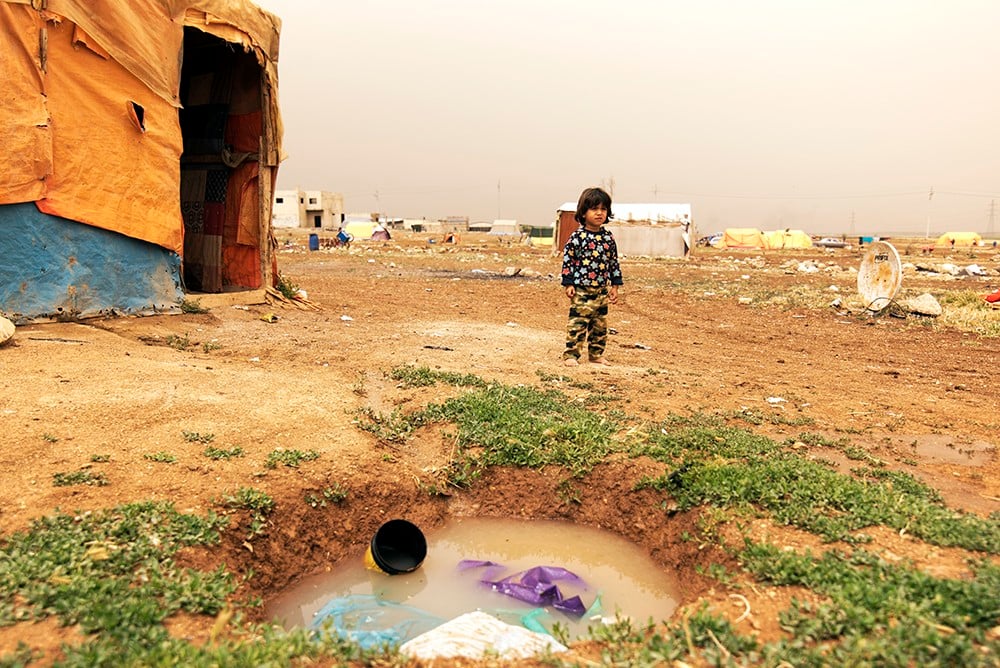
A Bani Murra child pauses behind a pond filled with rain water and trash. The makesift camp sits just off the highway in northern Jordan and offers little sanitation or water safeguards. April 2018. 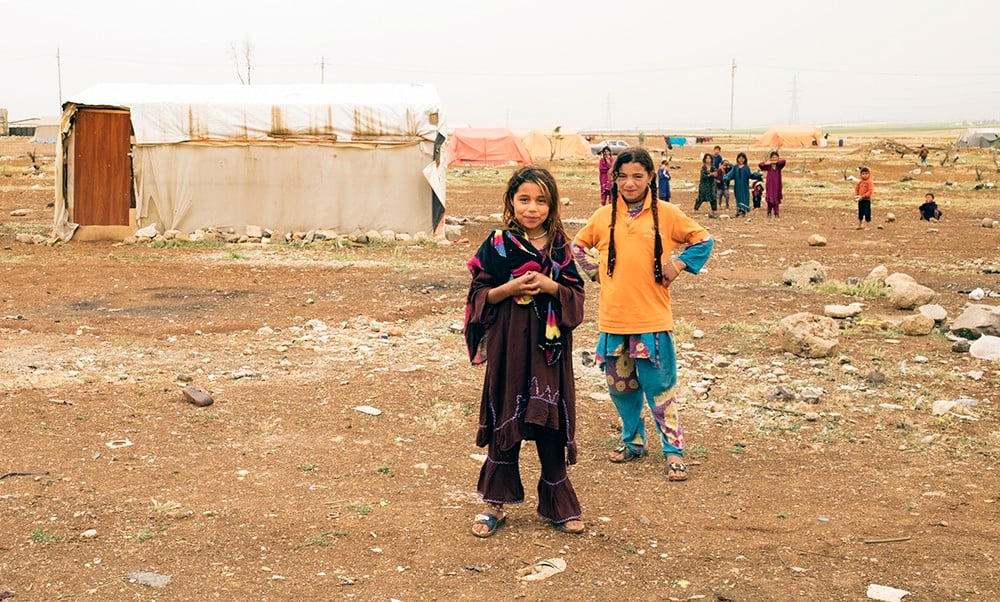
Turkmen children approach a Bani Murra portion of the camp both groups share in northern Jordan. Though they live as neighbors, the groups differ in customs, language and culture. April 2018. ‘We come from the southern city of Dara’a,’ says resident Alaa Mursalli, playing with the eldest of his five children in their two-room tent. ‘We moved after the first week of fighting. Electricity and water were cut off. Shootings were constant, we couldn’t stay. So, we crossed with 80 other people from our tribe into Jordan and eventually relocated here.’
The gaunt 35-year-old says that before the war started, his family and relatives lived in neighbouring flats in the city’s outskirts and often entered Jordan for seasonal work or to visit other members of his tribe. Since then, along with more than 600,000 other Syrians now residing in the country, Jordan has become his home. However, official figures about the Bani Murra community, both among Jordan’s refugee population and back in Syria, are not available: unverified data show that there were approximately 300,000 Dom in Syria before the conflict, with unofficial figures suggesting they could have been as many as 1 million. A few hundred of them are now scattered between areas of northern Jordan and the Azraq refugee camp, home to over 36,000 refugees. Like Europe’s Roma, Dom are a persecuted minority who face widespread prejudice and hostility across the region. Due to popular stereotypes associating them with witchcraft, fortune-telling and criminality, they are often referred to as ‘nawar’ or ‘tramps’ – a slur that Bani Murra have also adopted themselves.

Thirty-five-year-old Bani Murra Alaa Mursalli fled Syria’s southern city of Dara’a with his family at the inception of the civil war in 2011. April 2018. The 70-year-old Bani Murra leader in the camp, Ghurdru Marsalli, explains that his tribe is made up of several members related to each other. ‘Some of us have Jordanian nationality as a result of marriages that happened 40 years ago with local Bani Murra. Others are just Syrian nationals. But we all used to live in Syria,’ he says, gesturing with hands adorned with simple traditional tattoos. ‘We were poor back home. Still, we lived in houses and had jobs, and our children went to school. Bani Murra who moved here have become 100 per cent poor.’
Historically, Dom communities have always been marginalized from wider society, with limited access to education and higher levels of unemployment. But Jordan’s soaring living costs have now condemned them to a life of misery. Jobs that Bani Murra migrant workers used to take before the war and that guaranteed a decent living back in Syria, like picking vegetables and fruit in the Jordan Valley, are now of little help.
Kasi al Mursalli, 39, a palm reader, helps her brother Alaa and his wife raise their children while occasionally working in the fields. She just returned from the Jordan Valley, but explains that the money she made this year will not be enough to cover their expenses in the kingdom. ‘Back in Syria, I picked tomatoes, olives, beans and apples. A truck collected women, men and children in the morning. We earned very little. Still, it was more than enough because life was extremely cheap and we were allowed to take some vegetables and fruits from the harvest. This is not the same here.’
Widespread suspicion towards Dom is a further barrier to employment, with many applicants being rejected due to their background. The tribe recounts the case of a member who approached the factory across the street for a position a year earlier. An answer is yet to come. Meanwhile, they say, other men from the area have been hired on the spot.
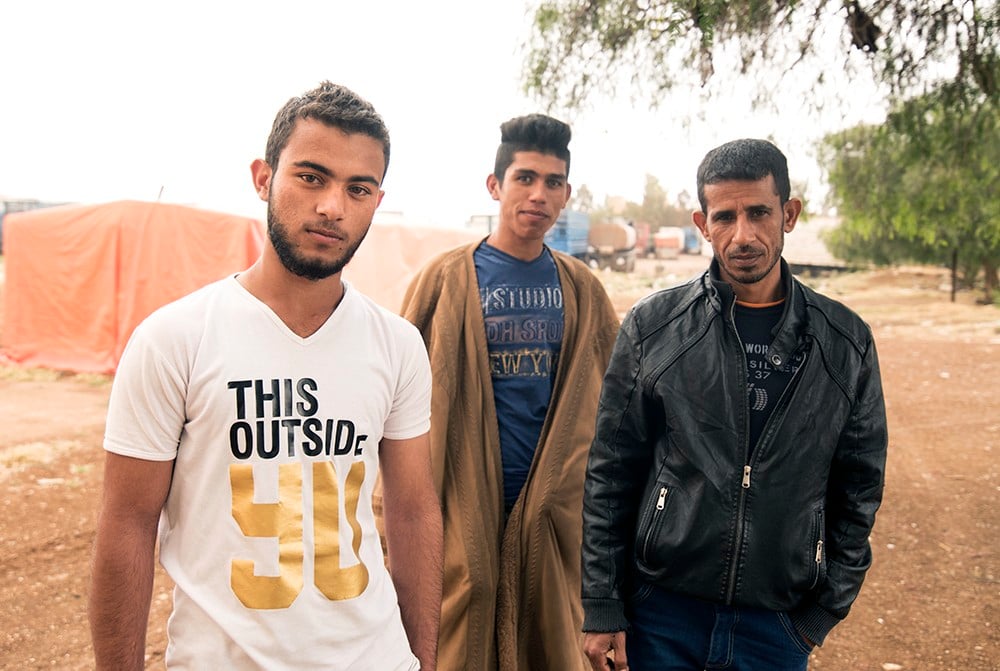
Syrian Bani Murra men pose for a portrait outside a shanty camp they share with ethnic Turkmen. The group says discrimination and social exclusion in Jordan makes finding a job difficult. April 2018. ‘Across the region, people have a negative image of us. They think we are up to no good,’ Alaa says. ‘Sometimes, the truck selling water doesn’t stop, or when we ask our neighbours for a glass of water, they tell us to go away because we are gypsies.’
Ghurdru, the head of the family, says the government has failed to provide them with any help to date. Nor has the local Bani Murra community in Jordan shown much support so far. Besides a few cross-national marriages between Dom living on the border, Jordan’s 70,000-strong community distances itself from the Syrian one.
Despite themselves being socially stigmatized and lacking any form of representation in the country, Jordanian Bani Murra are reluctant to mix with their Syrian counterparts. ‘Our relation is very weak,’ Fatih Moussa, one of the leaders of the Jordanian minority, says in his home in Amman. ‘They entered Jordan as a result of the war. Even their habits are different from ours, just as the habits of Jordanians differ from those of the Syrians. We are closer to the Bedouins than to them, in terms of habits and traditions.’
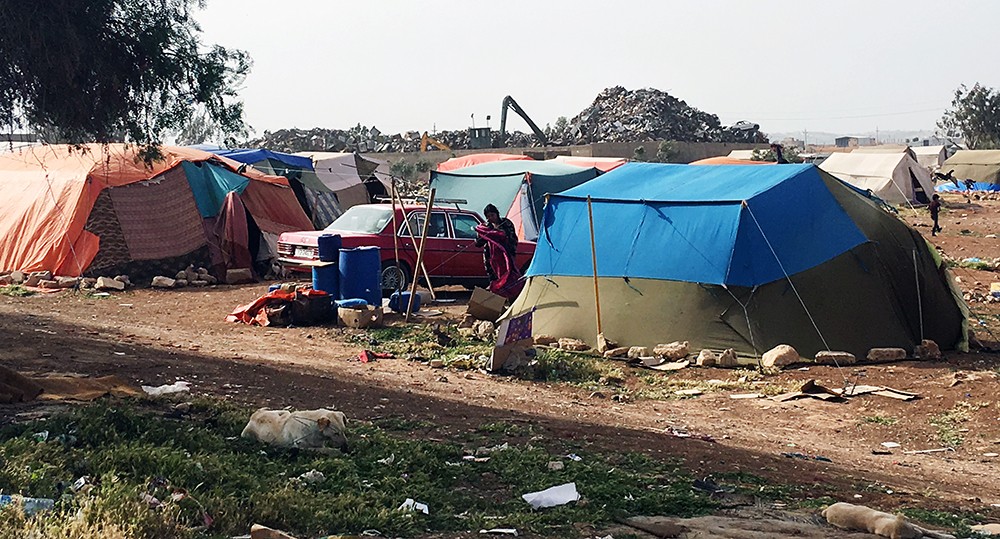
A mountain of trash overlooks a shanty camp in northern Jordan split by Bani Murra and Turkmen minority groups. April 2018. Around 30 km from the shanty camp, a desert village near the Jaber border crossing point is home to around 300 Syrian Bani Murra residing in some 30 houses and a few tents. Alaa’s brother Hazem Mursalli lives here. Two goat carcasses hang outside, dripping blood into the dust: Hazem explains the goats will be cooked on Friday for the whole community. Relatives from the camp will also join the feast. Talks about the quality of the meat among men are carried out in the Domari dialect, the Romani language in the region. Hazem says everyone in his community uses it and that it is preserved and transmitted orally from one generation to the next. When their dialect lacks a word, he explains, they borrow it from the local Arabic.
‘In Syria, we were over a million. The majority lived in Aleppo, an historical hub for gypsies in the Middle East,’ says the 37-year-old man. ‘Because of our large numbers, racism back home was stronger than in Jordan. But we are good people, trust me, we don’t look for problems.’
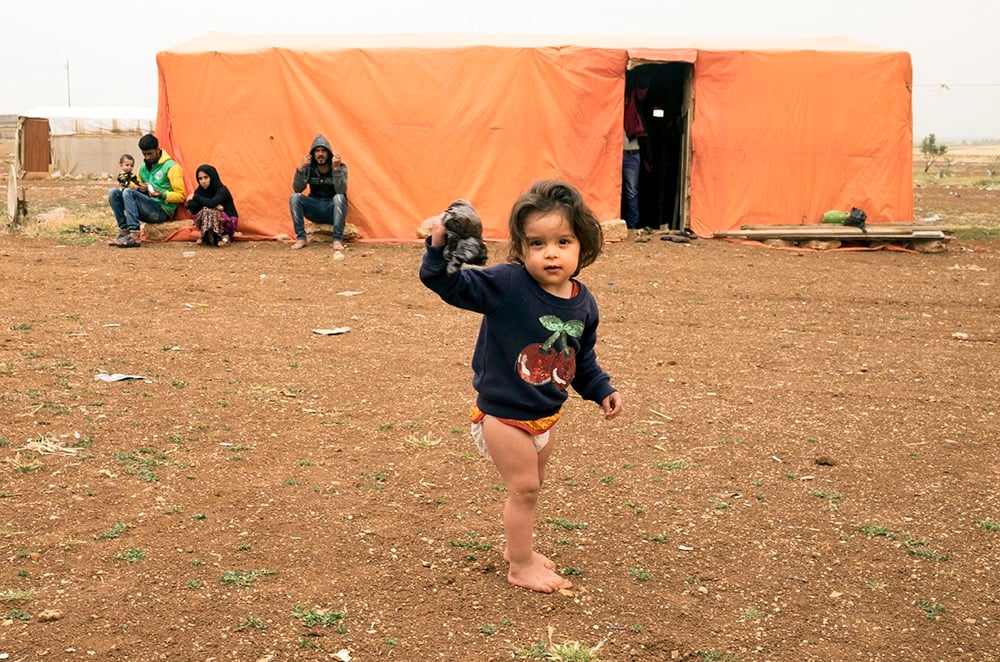
A Bani Murra toddler holds up a trash bag outside the family tent inside a makeshift shared by Bani Murra and Turkmen in northern Jordan. April 2018. Another 15 Bani Murra families have found shelter in the country’s Azraq refugee camp. One of the Syrians living there is 70-year-old Tirfa Mursalli, who just reached Jaber to visit her relatives. She walks through the crowd wearing a traditional black abaya – a loose-fitting, full-length cloak – that leaves only her facial tattoos exposed. In the past, she explains, Dom used to tattoo their bodies as protection from spirits and the evil eye, and as a sign of beauty or belonging to their tribe.
But the practice has disappeared today. ‘We were silly back then,’ she says, before impatiently explaining her lengthy wait for financial help from an international aid group inside the refugee camp. Nothing has been delivered so far. ‘I live well in Azraq. I share a shelter with other relatives. We have access to water and electricity but there is no financial aid or money whatsoever. Thank God there is no distinction between Bani Murra and Syrians there. We are all just people who fled the war.’
Despite a state school available in the vicinity, Dom children are not attending any classes. Ready to yell ‘yes’ in a chorus when asked if they ever visit the local institute, it is just a matter of seconds before they start cracking jokes. Adults and children alike tell each other, amid laughter, that they all attend ‘the school of the traffic light’. This likely refers to the days spent begging on the streets to scrape together some money.
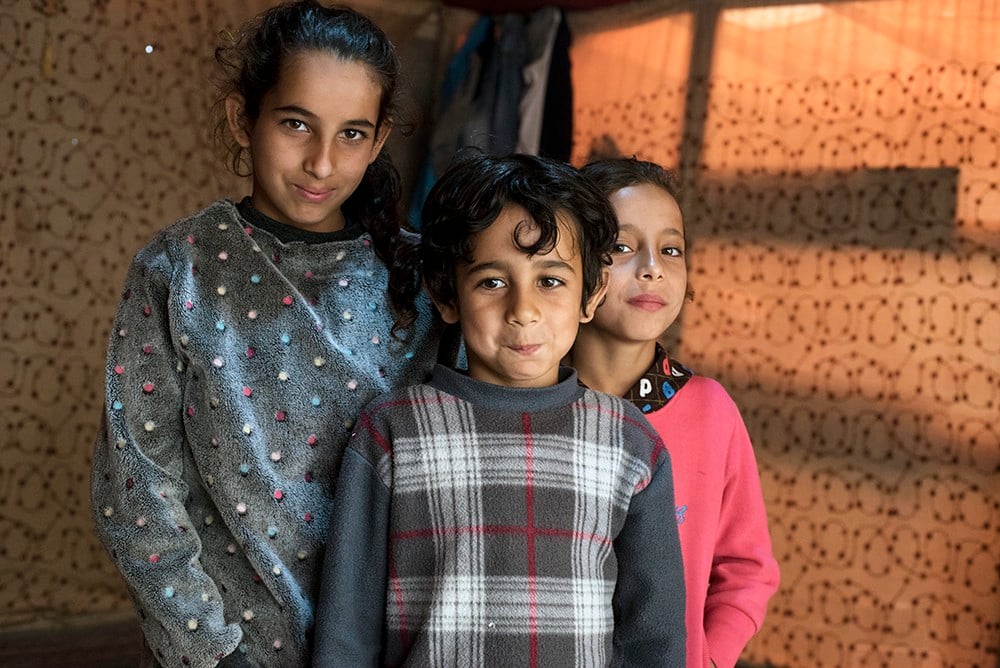
Three of Alaa and Awadif Mursalli’s five children pose for a portrait in their family’s tent in northern Jordan. (Left to right) Hala, 11, Adel, 6, and Adriya, 7, Mursalli. April 2018. Back in the camp, Alaa’s pregnant wife Awadif Marsalli sits in her tent. Her daughters watch TV, the only piece of furniture in a space that also serves as the bedroom at night for all seven family members. A scant, improvised kitchen completes the shelter and gives some privacy for washing. Patchily put together with some planks of wood and covered with tarpaulin, the tent offers little protection from the scorching Jordanian summers and freezing winters. Blankets and openings in the shelter’s cover to increase air circulation are the only solutions.
As her 11-year-old daughter Hala sits next to her and says she would love to go to school and play with children outside the camp, Awadif vents her frustration. ‘My husband used to work in Syria. But there are no jobs for him now. We cannot send our kids to school. The nearest one is private and asks JD90 (around US$127) a month per pupil. How can we send our five children to school with another one soon to come?’
Alaa sees no future for the Bani Murra in Jordan and says they just take it one day at a time. In Syria, he was a line installer and repairer. Now, a day in the fields gives him a meager JD5 (about US$7). ‘One of my children needs eye surgery that I cannot afford,’ he says, with a discouraged look. ‘Many have come here in the past few years promising help. I saw people of many different nationalities talking about schools, teachers, help. Where are all these things today?’
Photo: The Mursalli’s eldest daughter Hala poses in the small kitchen room inside the family’s tent. Credit: Alisa Reznick.
-
By Jasmin Qureshi
The environmental impacts of mining are a major cause of displacement for minorities and indigenous peoples across the world, with many unable to secure compensation or protections due to discrimination. But in Morocco, a community of Amazigh struggling with the depletion of their water reserves by the nearby Imider silver mine have fought back with peaceful protests that have, until now, ensured their ability to remain in their homes – despite increasing pressure from the government to capitulate.
On a remote foothill in the Atlas mountains, 200 miles from Marrakesh and above Morocco’s largest silver mine, a group of Amazigh activists live in basic conditions in tiny huts. They come from the nearby village of Imider, home to a community of Amazigh, an ethnic group indigenous to North Africa. The activists rarely leave their outpost in the mountains, for they are staging one of the country’s longest running protests against environmental harm caused by the mine, in the hope they can continue to live in their homes.
‘Since the silver mine was established a couple of decades ago, access to water for Imider residents has been severely reduced,’ says Linda Fouad, an Amazigh activist who supports the protest. ‘The land has deteriorated significantly, destroying agriculture and livelihoods. Pollution has tremendously increased, and health and water were affected by the toxic waste from the mine. Moreover, the mine has had a deep negative impact on the traditional underground water system in Imider called khettarat.’
Amazigh have long faced marginalization in Morocco. The village lacks basic infrastructure such as schools and hospitals, and if Amazigh children want to continue their studies beyond primary education they have to travel miles to do so. Yet on their doorstep is the Imider silver mine, owned by Société Nationale d’Investissement (SNI), a private holding company belonging to the Moroccan royal family. The mine is the most productive in Africa, a fact that places a heavy strain on local resources: according to a 2015 report by the Global Amazigh Congress, the mine uses 1,555 tonnes of water per day – 12 times the daily consumption of the village.
The people of Imider therefore decided, seven years ago, to protest against the reduced access to water and environmental degradation by setting up a camp and closing a pipeline supplying water to the mine. Since then, with campaigners so far having stopped some 3 million tonnes of water from reaching the mine, agricultural production has improved and water in the khettarats has risen again. This is why the activists in the mountains do not leave the outpost: they need to keep the valve closed.
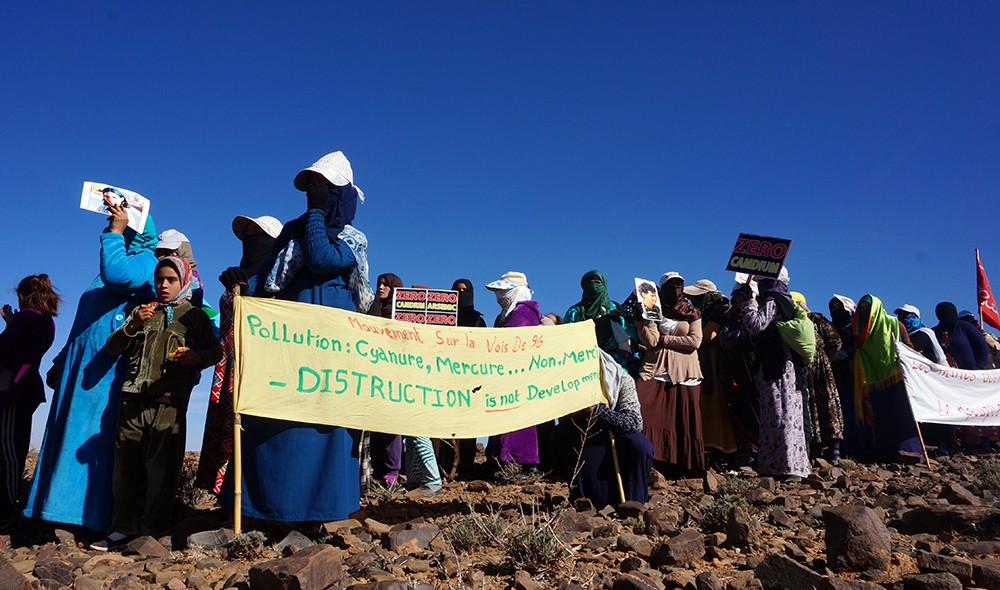
Members of the Amazigh community take part in a peaceful protest against the Imider silver mine in Morocco. Credit: Linda Fouad. The movement, known as the Movement on the Road ’96 (referring to a similar protest that took place in 1996), is larger than the small group of activists who live permanently in the mountains. This group is often joined by many more supporters: Imider residents stage regular marches and assemblies (called agraw) at the camp, to show solidarity and discuss strategies for the campaign. And in recent years, as the movement has gained international attention, journalists, activists and academics from abroad have also spent time at the camp.
But within Morocco, the plight of Imider’s Amazigh community is not discussed. ‘It’s also a delicate issue because the company is private but it’s also owned by the ruling family so the media refrain from reporting on the situation,’ says Fouad. ‘No one dares to speak about it.’
In response to the peaceful protest the authorities have arrested and imprisoned activists. According to Fouad, between 2011 and 2017, 33 activists have been arrested on ‘groundless and fabricated charges’, and the three last detainees were only released in December 2017.
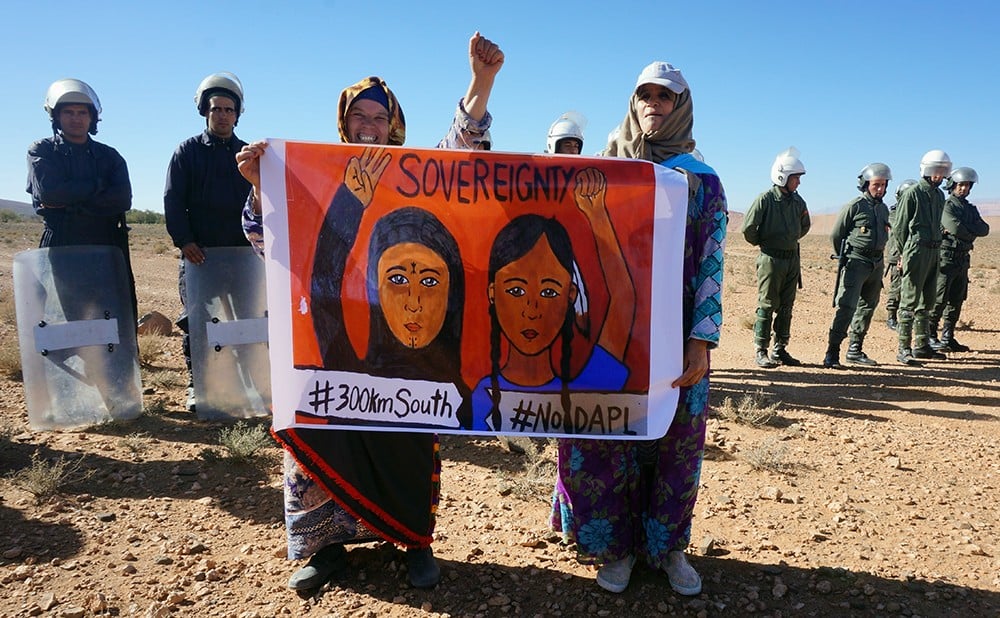
Members of the Amazigh community hold a protest sign at Imider. Credit: Linda Fouad. ‘Activists are being imprisoned, just for demanding clean water, no pollution, and for the company to respect international environmental standards,’ says Fouad. ‘We’re not asking the company to close the mine, we simply want them to respect their corporate social responsibility. If they have taken all the silver, at least they can give something back to the village – helping with the infrastructure, building up schools, stopping the arrests of the activists and respecting the environmental conditions.’
To date, despite years of protests, the community’s demands have been ignored. Recently the arrests have ceased, but the community has received no response from the government or the mining company to their campaign. Closing the valve has been rendered symbolic as the company has found other ways to access water, so continuing to degrade the land.
Nevertheless, despite the threat of being displaced because of the environmental effects of the mine, the community stands firm. In recent years, the community has begun to take their demands to the international community and has been building solidarity with foreign academics, journalists and NGOs. The activists brought their concerns to the UN Climate Change Convention’s annual conference (‘COP 22’), held in Marrakesh in 2016, which helped raise the international profile of the situation.
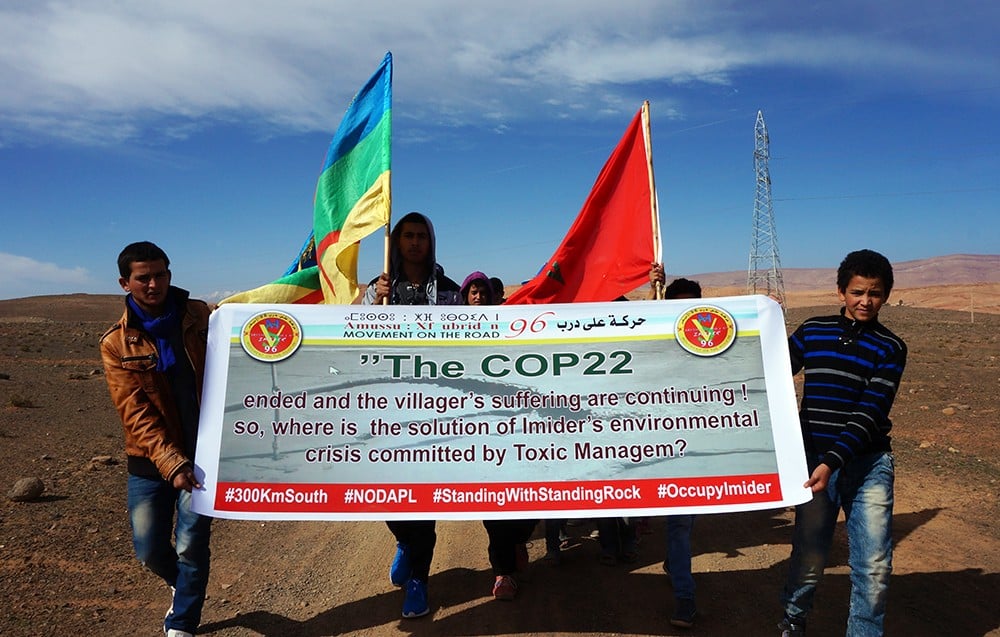
Members of the Amazigh community at Imider hold a protest sign. Credit: Linda Fouad. Fouad says that, despite the lack of will on the part of the state to help, the activists will not give up. ‘The company is still draining water, and the fields are no longer as green as they were 30 years ago. Yet, the Amazigh activists go on. Every time I go to the protest camp you see how powerful people are. Many activists want to go there and deliver “empowerment training” but they soon realize that the protesters don’t need it. They are the ones who empower us. They don’t need any strength because they are already very strong.’
Header photo: Amazigh residents of Imider gather for a meeting and protest. Credit: Linda Fouad.
-
By Konrad Pędziwiatr and Bolaji Balogun
Poland, a country with a predominantly white population and, until recently, limited immigration, has seen the growth in recent years of a sizeable sub-Saharan African minority. This community, though present for decades, has now become a far more visible part of Polish society – a development that has brought significant opportunities in education and employment, but also some hostility from right-wing groups.
The roots of the contemporary sub-Saharan African population in Poland can be traced back to educational migration under the Communist regime, when the country strongly backed the anti-colonial movements in Africa as part of the larger Soviet strategy in the region. Although Poland until 1989 was a country from which a significant part of the population wanted to emigrate – and many found ways to do so, in spite of semi-closed borders – some African students chose it as their migration destination. Official statistics from this period show that the number of African graduates in the country increased steadily from just over 200 in the 1960s to almost 400 in the 1970s, rising to more than 700 during the 1980s. While most of the students returned to Africa after graduating, many found their second home in Poland, acquired jobs, established families and, in the process, became pioneers of an emerging African community in Poland.
The collapse of Communism in 1989, followed by Poland’s accession to the EU in 2004 and the post-accession agreements, led to the opening of the Polish borders. This produced not only a major wave of Polish emigration, resulting in an estimated 2.5 million Polish citizens now living outside the country, including 1 million in the United Kingdom (UK), but also attracted immigrants into the country. This included a sizeable number of sub-Saharan African citizens – not only students but also tourists, diplomats, business workers, professionals and refugees – who together now constitute a group of some 2,100 people. With Nigeria (34 per cent), South Africa (9 per cent) and Cameroon (8 per cent) as the main sending countries, growth in the last decade has been particularly pronounced, with the number of sub-Saharan Africans more or less doubling since 2010. As a result, the large majority of the community are less than 40 years old, with most coming to Poland as students – very few are registered as refugees.
The largest concentration of Africans in Poland is in the central region, particularly Warsaw, while smaller groups live in Lesser Poland, Łódź and Lower Silesia regions. As in the past, the majority of the African community in Poland is made up of students, with almost 1,200 sub-Saharan African students enrolled in Polish universities in the last year, almost half of whom were women – significantly higher than the proportion of women in the community as a whole. The substantial increase in the number of sub-Saharan African students has been linked not only to the growing internationalization of Polish universities, but also the extension of the Erasmus Programme to countries outside the EU, providing new funding opportunities for African students to come to Poland and other European countries.
Consequently, in a country that for decades has been defined by its ethnic homogeneity, Polish citizens are now coming into regular contact with this emerging minority. African immigrants often find themselves viewed through the perspective of ‘race’ rather than presented as citizens of Poland or another nation, due to their visible difference. This can leave them experiencing positive and welcoming attitudes from some Poles, who value the diversity their presence has brought to the country. In other instances, however, their experiences are shaped by the postcolonial legacy of popular misrepresentations that link Africa and blackness to negative stereotypes.
The ambiguity of Polish attitudes towards African immigrants is evident in the testimonies provided by Cédric, a long-time Polish resident from Nigeria, and Nafissah, a black student with a French-Cameroonian background who came to Poland on the Erasmus+ Programme. ‘It’s not been bad living here,’ Cédric says. ‘I’m like a celebrity among my Polish friends and I very much enjoy the attention I get as a black guy. So yes, I manage to get around without much problems.’ These sentiments are also echoed by Nafissah, who highlighted the constant attention she received in Poland, but who also believes that in many cases it was driven more by curiosity than hostility. ‘I still experience a lot of staring – this, I don’t mind from time to time, as many Polish people have never seen black people before.’
Both of them, like many other Africans in Poland, are seen as a rarity in Polish society – and this can also trigger a range of negative responses, including hate speech, insults and derogatory putdowns. The psychological impacts of this abuse can be substantial. Cédric for example, describes one distressing incident where he was targeted by a gang in public. ‘There was an evening I was going to the cinema with my Polish friends and as we approached the entrance, a group of Polish boys, about five of them, started shouting “Ebola! Ebola! Ebola!” [referring to the recent outbreak of Ebola, a killer virus, in Africa] and pointing at me. I was very upset and didn’t understand why these boys singled me out.’ Another time, as he was walking in the street, the passengers of a passing car pointed at him and called him ‘monkey’.
Nafissah has also had similar experiences of hostility from strangers. ‘One time when I was crossing a road, a man walking towards me gave me a very bad look, as if to ask: “What are you doing here?” I could see the disgust on his face.’ Unfortunately, this was not an isolated incident. ‘The issue that bothers me most is always on the bus, people stare at me on the bus and no one will sit next to me, with or without extra seats.’
These stories, while rooted in personal experience, also reflect a broader backdrop of Africa’s historic marginalization and its continued representation, in political discourse or the media, as a subordinate continent. This is evident in the ways Poles perceive Africa and project these perceptions onto black residents in Poland. Issues relating to Africa are often politicized, not only by the Polish ultra-right, but also by centrist and left-wing Polish politicians who may use the subject of migration from Africa as a political ploy.
Indeed, the racialization of Africans in contemporary Poland needs to be seen in the wider context of the unprecedented politicization of immigration in the last few years and the new dynamics of othering linked to the development of Polish nationalism. This issue is further exacerbated by the presence of the Polish ultra-right in the country’s parliament since 2015, and the alliance between conservative elements of the Polish Catholic Church and the ruling coalition. As a result, Poland made headlines in November 2017 with the spectacle of some 60,000 people marching under police escort through the streets of Warsaw, calling for a ‘pure’ and ‘white’ Poland.
However, members of the sub-Saharan African community in Poland have refused to back down under pressure from racist groups, but instead actively challenged these misrepresentations of their continent and community. Among other steps, they have established numerous NGOs devoted to this purpose – examples include the organizations Africa Another Way and Foundation for Somalia – as well as increasing their engagement in Polish politics. In the former National Assembly there were two black members of parliament of sub-Saharan African origin, with one still in place in the current government. In more subtle but important ways, Africans also challenge social perceptions through everyday interactions with other Polish residents. Although the number of Africans in the country is still small, they have become more visible in larger cities. As a result, they have begun to play an increasingly prominent role in the country’s economy, as many sub-Saharan African students after finishing their studies will then work for international companies in Poland.
-
By Semyon Simonov
Millions of migrants reside in Russia, many of them from Central Asia, with a particularly large proportion originating from Uzbekistan and Tajikistan. They play a vital role in the Russian economy and undertake a range of jobs in industry, construction and other sectors, often working long hours and for little pay. Yet in recent years they have faced an increasingly unwelcoming environment as authorities have imposed an arduous process of registration and documentation on foreign nationals in the country – a development that has in turn increased their vulnerability to exploitation by employers, visa agencies and even corrupt officials
Krasnodar, located in the south of Russia, is a magnet for foreign migrants – mainly from Central Asia, Ukraine and Moldov – with almost 590,000 arriving in the region in 2017. Many came to know the area during preparations in Sochi, a city located in Krasnodar Krai, for the 2014 Olympic Games: some even decided to stay there permanently. But while the economic opportunities in Krasnodar continue to attract foreign nationals, their lives are often associated with a host of problems, from fraud and exploitation to institutional xenophobia.
During the 2018 FIFA World Cup in Krasnodar, several interviews were conducted with citizens of Uzbekistan and Tajikistan, who shed light on the challenges they have to endure to remain in Russia for even a short time without the risk of being deported from the country. For security reasons, their real names are not included here.
Migration registration and work
In order to legally reside in Russia, foreign citizens must register with authorities within 7 to 90 days from arrival, depending on their country of origin. However, in connection with increased security around the World Cup, the registration period for all foreigners in the areas where the Championship is being held has been reduced to just three days between May and June 2018 – with anyone missing this timeframe risking a fine and expulsion from the country.
If a foreigner decides to stay in Russia and get a job, he needs to sign an agreement with the employer and either receive a patent (for citizens of countries with a visa-free entry) or a work permit (for citizens of countries with a visa regime). Nationals of the countries of the Eurasian Economic Union (EAEU) are not required to get a patent or a work permit – a contract is enough. However, citizens of Tajikistan or Uzbekistan need to apply for a patent within 30 days of entering Russia – without one, they face a fine and deportation, with a ban on returning to the country for the next five years.
The patent also requires a significant monthly payment, varying across different regions: in Krasnodar Krai the payment is currently 3,615 rubles, the amount a migrant with a well-paid job (for example, in the construction industry) might typically earn in 4 to 8 days. For migrant women, usually employed in the service sector, this amount in most cases forces them to overwork – to fulfill duties that go beyond the scope of labour contracts, in particular, to take on additional responsibilities, work overtime for 10 or more hours a day, seven days a week.
Despite the energy-intensive nature of construction work, men in Central Asia engaged in this sector frequently work overtime and for lower wages than their Russian counterparts. Having left Tajikistan due to unemployment, Sobirjon and Huseijon – not their real names – found work in a smelting plant in the suburbs of Krasnodar, where their working day is 12 hours (compared to 9 hours for Russian workers). According to Sobirjon, ‘We do the same work as they do, we work even more, but we get half as much. We do not know what the reason is.’ Yet he does not readily see this as discrimination, despite the obvious shortfalls: he has found a job that gives him the opportunity to earn an amount he cannot hope to obtain in his homeland.
Even so, he must still contend with the threat of a police inspection – as his employer has not even assisted with this process, he and Huseijon have had to approach intermediaries who agreed to ‘help’ them for a sum. One of these intermediaries was now saying that, because of problems resulting from a previous offence, they would need to pay more. ‘The intermediary said that I had some kind of violation, that I allegedly had not paid in time for the previously issued patent, although I made all the payments on time and I left Russia before the expiration of the patent. Now the intermediary says that I have to pay another two thousand rubles in fines,’ he explains. ‘He will help me register through an acquaintance working in the migration office, who will put a stamp in the notification of arrival and enter my name in the database. If I do not register now, the boss can fire me, because he cannot allow me to leave the workplace every day.’
His friend Huseijon is in a similar situation. ‘Several years ago I worked in Sochi, where I was engaged in finishing works on the construction of a shopping centre. In 2015, I again decided to return to Sochi, where I spent almost three months, and then went for five days to Abkhazia and then I went home via Sochi once again. Now they tell me that there is a violation in the migration service database, although I was in Russia for no more than 90 days out of 180 days. The intermediary promises to solve the problem for an additional fee. I doubt that he is telling the truth, since I arrived on June 9 and was allowed to cross the border into Russia. With a violation, I would not have been allowed to enter the country.’ As a result, he has yet to fully resolve his documentation. ‘I work without a patent – otherwise there would be nothing to pay with for all the costs of the registration procedure.’
Since they were already late to acquire registration and given the need to register quickly during the World Cup, they agreed to pay the intermediary 17,000 rubles each – a slight reduction from the 19,500 rubles originally suggested. However, in return they agreed to be left without the receipt that would confirm their payment and give them the opportunity to get their money back in case of fraud. In spite of the obvious dangers of their situation, they remain hopeful that the intermediary will be able to use his contacts in the police to secure their paperwork.
This is in spite of a number of recent incidents of registration fraud: in December 2017, for example, Krasnodar Krai law enforcement agencies exposed a scheme involving police officers, including the deputy head of the migration department of Prikubansky district in Krasnodar city, that registered some 6,500 foreigners under the guise of various fictitious companies. As a result, all these registrations were deemed illegal. Sobirjon, though aware of the risks, feels he has no other option. ‘I understand that such registration can be fake, but I have no other choice. I’ll have to hide from the police.’
His experience is one shared by many other migrants who, when seeking to register, must navigate a complex and opaque bureaucracy with the help of ‘firms’ keen to make a profit. Unsurprisingly, applicants frequently find themselves exploited in the process, leaving them with substantial debts and further uncertainty. Others fare better, particularly when their employers are willing to support their registration, but even then some may be forced to use the services of intermediaries when securing their patents.
Racial profiling and the police
Racial profiling by police has long been a problem in the region, primarily directed at residents of Central Asia and Russian nationals from the North Caucasus. It was especially noticeable before the Olympic Games in Sochi, when police openly admitted that they had been instructed to detain and check people on the basis of their belonging to certain national minorities. Widespread criticism of these actions has to some extent led to some improvements in the situation: the police now appear to detain members of national minorities less frequently than before, but these nevertheless remain vulnerable to official harassment.
‘The police often stop me, probably because I’m not Russian,’ says Sobirjon. ‘They bring me to the police department, and after the check-up they release me.’ Given that his documentation issues are still unresolved, this leaves him and other migrants in a very precarious position – a situation that can be used by unscrupulous employers, as well as police, to exploit them. Odimjon, a Tajik national, describes how police can use documentation checks and detention as a means to extract payments. ‘I know about cases of bribes and extortion, which many paid, but I personally do not give any money to them. When policemen stop me on the street and demand documents, I show them without asking any questions, since I am afraid that if I in turn demand their documents and grounds for them checking my identity papers, they will behave more aggressively, they may detain me. I try to be as polite as possible.’
A difficult future for migrants in Russia
While Krasnodar and many other regions depend heavily on migrant labour, the unfavourable environment in place leaves them at constant risk of exploitation, abuse and deportation. As in many cases employers do not want to take any responsibility for paperwork, migrants are forced to seek out intermediaries who are often able to extort large sums of money from them – a situation enabled by the difficult and onerous registration currently in place. In turn, the police are more likely to detain and prosecute migrants, rather than their employers, regardless of the exploitative conditions they are forced to work in. Indeed, the threat of expulsion if a deadline is missed provides employers with a powerful tool of coercion.
Paradoxically, despite the extensive official regulations in place, the current system has allowed a host of intermediary organizations to flourish unchecked. The creation of the Multifunctional Migration Centre in Krasnodar, an official contact point between migrants and the state, should in principle allow them to access the necessary documentation directly without incurring any additional expenses – yet in practice, many foreigners still find themselves forced to engage intermediaries. Until this situation is resolved, tens of thousands of migrants will remain at constant risk of exploitation by intermediaries, their employers and the police.
Header photo: Migrant workers from Uzbekistan eat in their temporary living quarters on a construction site in Moscow, Russia. Panos / Justin Jin.
-
The conflict in South Sudan that began in December 2013 after clashes between the forces of President Salva Kiir, a Dinka, and his then Vice President Riek Machar, a Nuer, quickly took on strong ethnic dimensions and has seen thousands of civilians killed, many others injured and the mass displacement of communities by different warring factions. At present, in addition to the 2.6 million South Sudanese who had fled the country by May 2018 (the third largest refugee population in the world), an estimated 1.9 million are internally displaced inside the country. Though the conflict has primarily pitted Dinka against Nuer, other communities have also been deeply affected – including the Shilluk minority who, having suffered decades of displacement in previous conflicts, have been uprooted again by the latest round of violence.
Mary (not her real name) is from the minority Shilluk community and was running a small business in Malakal, one of South Sudan’s largest cities, when the conflict broke out in 2013. Shilluk have lived in Malakal for hundreds of years, and their kingdom once had a navy operating up and down the White Nile. During the colonial era, the British made Malakal an administrative centre, and people from larger communities such as Nuer and Dinka moved there in growing numbers.
During the Second Sudanese Civil War (1983-2005), there was extensive fighting in Shilluk areas and many were displaced into Ethiopia and northern Sudan. Mary’s family fled to Khartoum, where she grew up in an informal displacement camp on the city’s outskirts. Inside Sudan they were not given refugee status and the Sudanese government limited humanitarian access to the sites. As a result, Mary grew up in extreme poverty.
After Mary’s father died, her mother was responsible for providing for her four children alone and took on one of the few businesses available to widowed women. She began to illicitly brew merissa, a local alcohol, for sale – a dangerous activity under Sudan’s sharia law. Mary remembers her mother being assaulted and robbed by Sudanese authorities. Her work only just fed the family, and Mary was unable to go to school. But she helped her mother and learned the trade. After a peace agreement was signed in 2005, Mary’s family returned to Malakal where Mary, joyous to return home after so many years, launched her own home-brew business.
Early signs of problems ahead
Despite the official declaration of peace, conflict and uncertainty continued to threaten Malakal’s population. On some occasions, Mary had to take shelter when different armed groups fought in Malakal. More worrying were the increasingly vocal claims of the neighbouring Dinka Padang community that they had the right to control Malakal.
Mary remembers when Sudanese President Omar Bashir and now-South Sudanese President Salva Kiir came to Malakal together in 2008 as part of the peace agreement. A fight broke out over whether Shilluk or Dinka would lead the parade, which was seen as a demonstration of who controlled Malakal. ‘This is the first time I felt afraid. I knew then that these people were not coming here to live with us peacefully – they wanted to push us off the land.’
Subsequently, a Shilluk rebel group led by Johnson Olony, a former trader from just outside Malakal, took up arms against the government, claiming that he was challenging his community’s political marginalization and attempts by others to occupy Shilluk land. Many Shilluk joined him, believing they needed to fight for their rights in the new southern Sudan. Nevertheless, by no means all Shilluk were rebels or their supporters – some were in political opposition and others were senior government officials.
In 2012, just a year before the civil war began, Olony’s group made peace with the government in Juba. ‘When this peace came we believed things would improve’, says Mary. ‘We were tired of the security treating Shilluk like we are all rebels or criminals. Some even harassed my business. One day soldiers came and took all of my merissa and when I complained they said, “We are taking this so you do not give it to the rebels.” My children went hungry that day, but what could I do?’
Outbreak of civil war in South Sudan
When, on 15 December 2013, fighting broke out in Juba, government officials issued calls for calm and reassurances that peace would soon be restored. Yet soon the violence had spread to others areas of the country, and by Christmas Malakal was in a state of siege. Control of the city switched between the government and rebels six times in the first six months of the war. During this time forces associated with Dinka and Shilluk remained loyal to the government, while many of the Nuer forces in the city revolted due to the killings of Nuer civilians in Juba.
During periods when the government was in control of the city, they undertook house-to-house searches for Nuer youth – presumed on the basis of ethnicity alone to be rebel supporters. While the Nuer-led opposition was in control of the city they did house-to-house searches for Dinka youth – presumed to be government supporters. Both were killed. During this period, says Mary, ‘we thought this was a war between Dinka and Nuer and their leaders. We have nothing to do with that so we cannot be targeted.’ Yet Shilluk officials were subsequently attacked by Dinka soldiers, and Nuer rebels also killed some Shilluk civilians.
Government officials suggested that soldiers may have attacked Shilluk officials because some rebelled previously and they believed it would happen again. But Mary believes this was the beginning of an effort to use the war as an opportunity to remove the Shilluk community from their historic land. ‘We were on the side of the government so that could not be the reason – this is when we began to see that they had another objective besides fighting Nuer.’
Internal displacement
In 2013, the large UN peacekeeping mission, the United Nations Mission in South Sudan (UNMISS), had bases across the country. When fighting started, civilians fled the predations of the government and rebel groups to areas they believed would be safe, including the UN compound in Malakal. Within two weeks, 12,000 civilians were sheltering there. Thousands of civilians had also sought refuge in different churches across the city. An additional 3,000 people took shelter in the Malakal Teaching Hospital. The assumption was that these places would be protected from attack – yet in the ensuing violence, countless civilians were killed as they sought sanctuary there. Elderly people who could not run were killed in their homes.
‘We were all moving, looking for a safe place,’ says Mary. ‘We thought we could go to a church or the UN and it would be safe. But they can kill you anywhere.’ Women and girls were frequently sexually assaulted; some women and girls, having been kidnapped by government or rebel forces, were never seen again. Two of Mary’s cousins disappeared during this time.
Once the government regained control of Malakal in April 2014, conflict in the city reduced but most Shilluk civilians did not believe it was safe to live outside the UN base. The only significant grouping of Shilluk not in the base was the armed group that was still part of the government’s army in the city.
Shilluk armed groups go to war
Though military leaders from the Shilluk community did not rebel, their loyalty to the government was complicated by the emergence of a Dinka Padang militia. Dinka Padang civilians were armed at the beginning of the war to help protect oil operations and to defend areas against Nuer rebels. As the front-lines stabilized these forces remained armed, and the government was reluctant to disarm or demobilize them while the national war was still ongoing.
This created an environment in which they could pursue their objective to ensure Malakal became a Dinka city. By 2015, an increasing number of provocations against Shilluk civilians and members of the security forces were taking place. Because many of the Dinka militia were given army uniforms, there was confusion about who was responsible and no serious efforts were made to rein in the militia. In May 2015, following an attack on his deputy, the Shilluk General Olony defected to the opposition, prompting fighting in and around Malakal.
A Dinka takeover of Malakal
Soon after, an August 2015 peace agreement raised hopes life would return to normal. Mary says, ‘we were so happy that day. We danced and sang into the night.’ But the celebration was premature. The government signed the agreement under duress and many officials were not committed to its implementation. Under pressure from Dinka hardliners to ensure their communities remained empowered and protected during the transitional government, the President decreed the existing ten states would be turned into twenty-eight.
According to the new structure, Malakal was located in ‘Eastern Nile State’. The state’s boundaries included Malakal and almost all Dinka Padang land. Malakal had effectively been annexed. Once the new state was established, Dinka officials decreed that their Shilluk counterparts should move to the new ‘Western Nile State’ capital. Some of these officials had lived their entire lives in Malakal and had never been to the areas now in Western Nile. During this period, the permissive environment for the Dinka Padang militia and its supporters that had existed since 2014 was matched by official government actions in support of turning Malakal into a Dinka city.
Many Shilluk saw this as an abrogation of the peace agreement and it contributed to its collapse in 2016. There has been no peace since.
Nowhere safe
Recognizing it was the long-term protector of thousands of civilians, the UN built fences and set up sentry points to protect its base’s perimeter. The civilian population lived under 24-hour armed guard. Some civilians left the base during daylight hours, primarily out of economic necessity, but many felt too scared to leave at all.
Living at the UN base, families had to make decisions about how to handle continuing threats against Shilluk civilians – many of which have gendered dimensions. ‘Sometimes when we have to go out of UNMISS it is better for us as women to go’, says Mary. ‘If the soldiers see a Shilluk man sometimes they can kill him without thinking. With women, the soldiers can abuse or rape but they do not kill us. So it is better for us to go, at least we will live.’
Not long after UNMISS turned into a site of internal displacement, the base was divided into three areas: one each for Shilluk, Nuer and Dinka. Though the communities were kept apart – reportedly at their own request and for their own protection – altercations broke out at regular intervals between different communities (and occasionally within communities). Most of these did not involve firearms and were quickly halted by UN peacekeepers.
But February 2016 was different: days of tensions had left the city and the base on high alert. On the night of 17 February, armed men in SPLA uniform – accounts differ as to whether they were Dinka Padang militia or their sympathisers in the SPLA – entered the site. In less than a day they killed 30 people, injured 120 and burned down most of the Shilluk and Nuer sections of the base. Humanitarian facilities serving these communities were also destroyed. Peacekeepers failed to halt the rampage.
‘I ran here during the fighting of 2013 with very little,’ Mary says. ‘Then they came inside to attack us and I had to run again. All these small things I had managed to get after I came to the UN, my pans to cook for my children and things to sleep on, they were all destroyed. They want to make it so we cannot live here.’
Displacement without end
Mary and thousands of other Shilluk civilians say they do not want to be forced to leave Malakal, even if their only choice is to remain under UN protection. Being unable to leave the UN base, however, makes life exceptionally difficult: ‘It is very crowded in here and it not healthy for the children. The UN does not like me to do my work because they do not want people drinking, so I have no money and it is not always safe.’ And like other victims of the conflict, too, Mary must contend with the trauma of her own experiences of violence and the death, displacement or disappearance of family and friends.
This situation is made even harder by the uncertainty about when this fighting will end: the last war fought here, when the country was still part of Sudan, lasted 22 years and many fear this conflict could be equally long. But leaving the UN base and relocating to a refugee camp or Sudan is not regarded as an option for many Shilluk, who believe that if they leave Malakal the Dinka Padang will block their return, even if a peace agreement is signed – hence the importance of staying put. ‘I had to leave during the last war,’ Mary explains, ‘and I do not want to leave my home again. If we leave they will never let us come back.’ For now she, along with thousands of others, can only wait anxiously as the conflict drags on indefinitely. In the meantime, she teaches her children about Shilluk history, cultural traditions and the religious ceremonies that have been practised in Malakal for hundreds of years – laying the foundation, she hopes, for their eventual return.
Photo: A Shilluk woman at an IDP camp near Aburoc, South Sudan. Credit: Ilvy Njiokiktjien / Cordaid.
-
By Hamimu Masudi
The dubious origins of statehood in Africa have been clear to anyone interested in understanding and explaining contemporary development challenges on the continent. By the stroke of a pen at a Berlin conference in 1884, the entire continent was fragmented into 53 multiethnic states, subsequently governed under imperial rule for over 60 years. Even though it was evident that the millions of Africans across the continent were extraordinarily varied in their cultures and ways of life, different population groups – often with a history of intercommunal conflict – were forced to live together under administrative systems that favored certain lifestyles and discriminated against others.
Due to their distinct cultures, ethnic minorities and indigenous peoples including nomadic pastoralists, hunters and gatherers were particularly sidelined throughout the colonial period, in the process losing their lands, livelihoods and dignity. Sadly, the end of colonialism did not restore order and liberty for all. Instead, it ushered in a crop of authoritarian African strongmen who were happy to perpetuate the exploitative policies and institutions of colonialism for their own ends.
This is illustrated by the continued plight of forest peoples in many countries who, without any sort of compensation, have seen their forests and grazing areas taken from them and gazetted as public land – often on the dubious basis that they normally do not own permanent physical structures nor tend to any crops on the lands. The same arguments were made in order to explain the displacement of pastoralist communities. Consequently, entire populations have been evicted from their territories, leaving them to eke out a marginal existence on the periphery of the lands they once called home.
It is against this background and the desire to address persisting inequalities that MRG has conceptualized and implemented its work in Africa over the years. From programmes responding directly to the urgent health and educational needs of communities, to defending collective land rights and advocating for legal recognition, MRG has over time influenced the understanding and perception of minorities and indigenous peoples on the continent.
For instance, in view of the widespread belief that all inhabitants are indigenous to Africa, most governments have neglected to identify or recognise indigenous peoples in their territories – a situation that has held back the legal recognition of their rights. In response, since the launch of the Africa office in Kampala, Uganda in 2001, MRG has successfully challenged these narratives, arguing instead that the situation of minorities and indigenous peoples is distinct, and that the discrimination they face threatens their particular cultures and reinforces their subordinate position within social and state structures.
This subordinate position has an even more severe impact on vulnerable groups within minority and indigenous communities. Since its very earliest days, MRG’s Africa office has applied an intersectional lens to its work, for instance by providing support to Batwa activists across the Great Lakes region who are combatting violence against women and gender-based discrimination. Currently, MRG is building on and expanding this work by supporting Batwa who are seeking recognition for the rights of persons with disabilities belonging to their communities.
The rights of Africa’s minorities and indigenous peoples should be protected and promoted alongside other national priorities, such as environmental management and nation-building. Fortunately, there is now increasing acceptance that indigenous peoples, including pastoralist communities, value their natural surroundings more than anyone, given their close and centurieslong interdependence with their lands, and that indigenous knowledge is central to any successful conservation strategies in Africa. These arguments have at least led to some initial recognition of minority and indigenous rights – an important milestone, given that community evictions are still justified by many governments in the name of environmental protection.
In particular, it is through the judiciary that the struggle for recognition and respect for indigenous peoples’ rights is being waged in Africa. From Kenya and Uganda to Burundi and the Democratic Republic of Congo (DRC), law courts as well regional bodies such as the African Commission on Human and Peoples’ Rights and the African Court on Human and Peoples’ Rights have delivered significant victories in the battle for indigenous rights. These include the Ogiek and the Endorois victories at the regional level against the Kenyan government, the Twa family land case win against powerful individuals in Burundi, the Benet of Mount Elgon petition for social protection in Uganda and the Mbute of DRC’s Ituri Forest’s legal challenge for protection.
Now, thanks to the advocacy efforts of MRG’s partners, Burundi’s constitution provides for special representation of Batwa people in the National Assembly and the Senate, while Kenya’s constitution (under the Bill of Rights) guarantees the protection of minorities and other marginalized groups, and its land law further provides for collective land rights. And for the first time in their respective histories, members of the Batwa communities of Burundi and Rwanda have been appointed as ministers to Cabinet-level positions in their respective countries.
Photo: Members of the Sengwer community protest theireviction from their ancestral lands in theEmbobutForest, by the Kenyan government / Katy Migiro/Reuters.
-
By Abdul Halik Azeez
While much attention has focused on the decades-long civil war in Sri Lanka and the legacy of conflict, which formally ended in 2009, the country’s inequitable development since then has deepened discrimination against its under-served urban communities. This is especially the case for the country’s small Malay minority, many of whom are based in central Colombo and now face the threat of mass eviction from the historical area of Slave Island.
Brought in as soldiers by the Dutch and the British colonial administration starting from the mid-seventeenth century, the Malay population of Sri Lanka also descend from a smattering of political exiles from across the Indonesian Archipelago.
Although originally from various parts of the Archipelago, they were eventually all grouped under the common label ‘Malay’ by the British Administration System to simplify its processes, and thus the recording of the original ethnicities of these Javanese peoples was lost. Many places named after Malays in Sri Lanka have also lost their original connotations over time, as the people who marked them slowly assimilated into the local population. The Malay population, which in 2012 consisted of just over 40,000 people (0.2 per cent of the country as a whole), is now struggling to keep its numbers up.
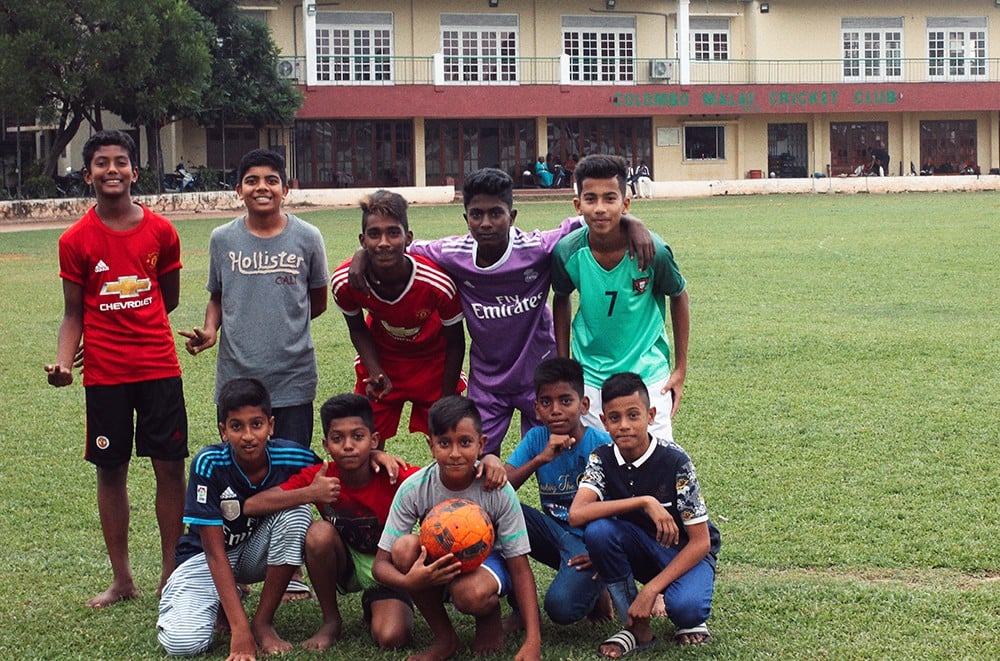
Boys pose for a picture at the Colombo Malay Cricket Club, Sri Lanka. Metropolitan Colombo has the largest population of Malays in the country: one-third of the total population of Malays call it home. The majority of them are located in the epicentre of the city in Slave Island, also known as Kompannaveediya or Kartel. The rest are dispersed across Colombo and its suburbs. Slave Island, which is also home to the Sri Lanka Malay Association (SLMA) and the Colombo Malay Cricket Club, forms a hub of sorts for the community in the city as well as Malays in Sri Lanka as a whole.
The presence of close-knit Malay communities is a primary reason for the preservation of Malay culture and heritage in Sri Lanka. The concentration of Malays in Slave Island was a key reason for the founding of the Sri Lanka Malay Association in 1922, which has made substantial efforts over the years to revive and maintain Malay culture, and educate youth on Malay heritage and history.
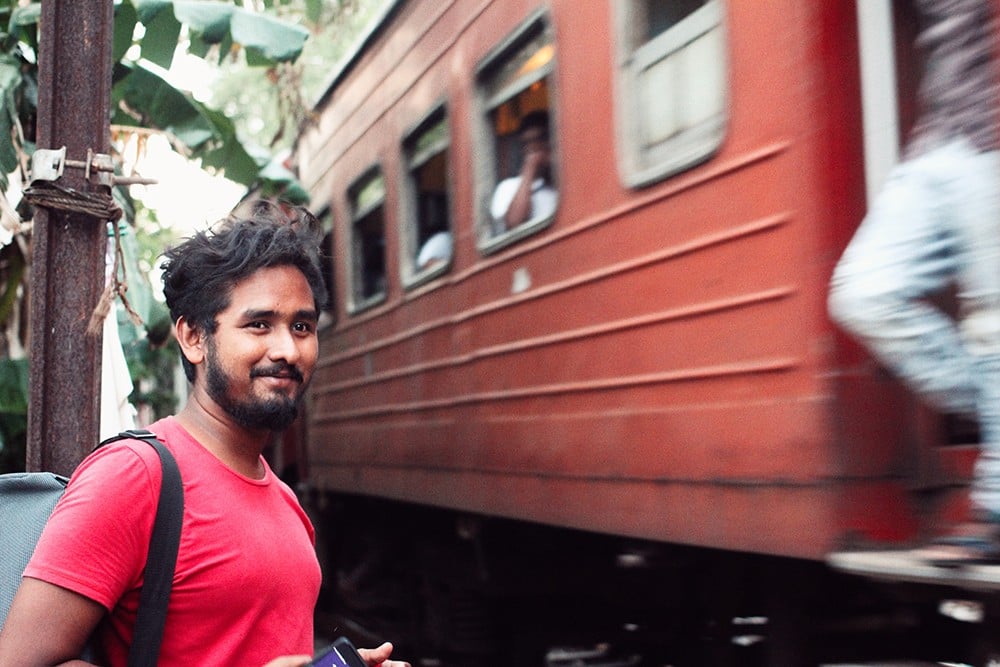
Firi Rahman, a local artist who through his work talks about the unique identity, history and culture of Slave Island, is a part of a new generation at the forefront of transforming the identity of the area in a way that can allow it to survive and even thrive in post-war Colombo. The Malay language spoken by Sri Lankan Malays, a creole made up of Malay, Sinhala and Tamil, is largely spoken only among Malays – between family, neighbours and friends. Most Malays are fluent in either Sinhala or Tamil, the two main languages of Sri Lanka, which are used in daily life. With the dispersion of close communities for socioeconomic reasons as well as government-driven gentrification projects as in the case of Colombo today, the language comes under threat, as it is needed less and less for daily use.
Sri Lankan Malays are almost entirely Muslim by faith. However, they maintain a distinct culture and adhere to practices that set them apart from the majority of Sri Lanka’s Muslims. These customs still survive, largely by dint of close-knit communities in Colombo, as well as along certain areas of the south coast, which between them can draw on sufficient group feeling for a sense of identity to be kept alive. Nevertheless, some aspects of Malay culture, such as traditional dancing and singing, have come under attack from more puritan strains of Islam, which have become popular among Sri Lankan Muslims since the 1980s.

A dedicated few keep regular vigil at the Java Lane mosque, praying for the eventual return of the Malay community that brings it alive. Slave Island – a historic community under threat
In post-war Sri Lanka, the communities of Slave Island, a multicultural area that has played a particularly important role for the country’s Malays, suddenly saw their home threatened. The end of the civil war in Sri Lanka drew the attention of investors and developers to what was now prime commercial land in the centre of Colombo. People in some of Slave Island’s largest neighbourhoods, such as Mews Street, Station Passage and Java Lane, were evicted through a mixture of threats and coercion by the militarized Urban Development Authority. Many are yet to be provided with alternative housing and are currently living in rented accommodation, scattered throughout Colombo and even distant suburbs.
Tata, the Indian conglomerate which has taken over the land occupied by Java Lane, has promised the construction of apartments for all those who have been forced to leave, but constant delays have now pushed the promised delivery date to the end of 2018. Similar concerns plague the former residents of Station Passage, who have been waiting nearly four years for Imperial Builders, a Pakistani firm, to build the promised apartments. The company initially promised to complete them in 18 months. Both companies are focused on creating luxury developments for high-income clients. While they have also promised housing for the former residents of the land they now occupy, if Colombo’s recent experience with alternative housing for evictees is anything to go by, the housing provided to the now scattered residents of Slave Island will be less than adequate. The delay in construction has itself contributed to additional trauma and stress for people now without permanent homes to live in – trauma and stress they are unlikely to be compensated for.
Maintaining connections with the past
The sudden and violent dispersion of these settlements has cut off families and life-long friends from each other, already causing irreparable damage to culture and community. While some have managed to find places to stay in areas neighbouring Slave Island, others have been forced to move far away. Many residents still hold out hopes of returning to their original neighbourhood. In Java Lane, the Malay Military Mosque, or the Rupee Fund Mosque (thus named because the soldiers who contributed to it are said to have donated a single rupee each to its construction), is the only building that still stands. The structure, founded in 1864, is an historic monument and thus was preserved. The community clings to it as a powerful symbol of their eventual return, and a group of regulars frequent it every day for prayers and rituals, making sure to keep it alive.
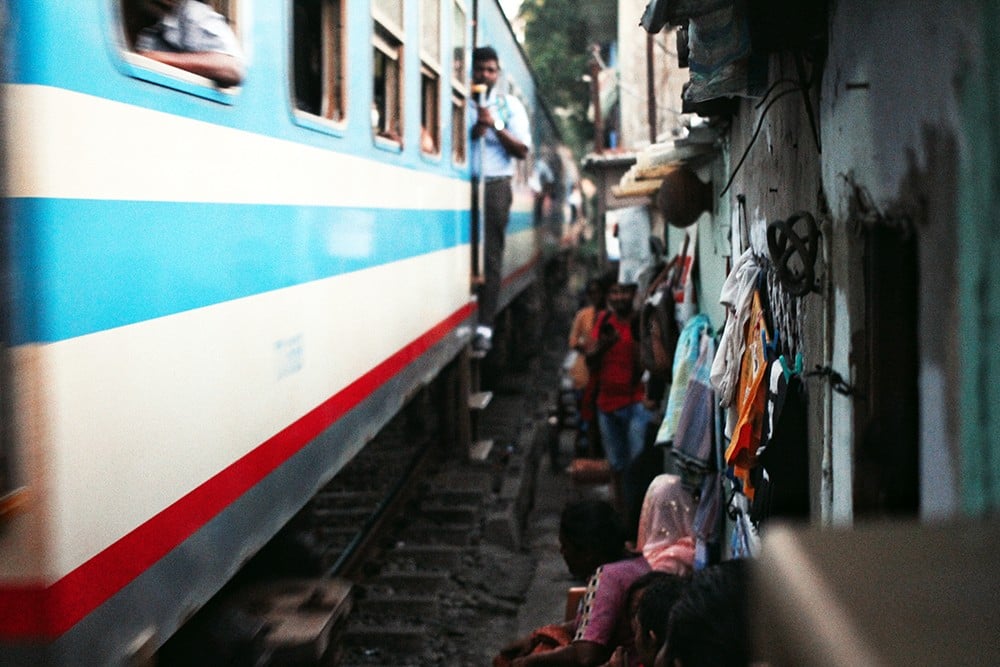
A small Malay community with no permanent housing lives by the railtracks, drawn by the proximity of Slave Island. They are joined by recent evictees from Java Lane and other areas awaiting homes. The rest of Slave Island, which in total consists of roughly 160 acres, still stands. And the Malay community still has spaces to thrive. The Malay Cricket Club, founded by Malay troops in the Rifle Regiment in 1827, is one of the oldest and most illustrious in the country. Java Lane Soccer Club, an inspiration for many of the football-crazed youngsters in the area, plays in the top tier football league of Sri Lanka. The famous local billiards club, the Cue Café, boasts a history that counts among its patrons some of Sri Lanka’s finest players, including the world champion of 1973, M.J.M. Lafir.
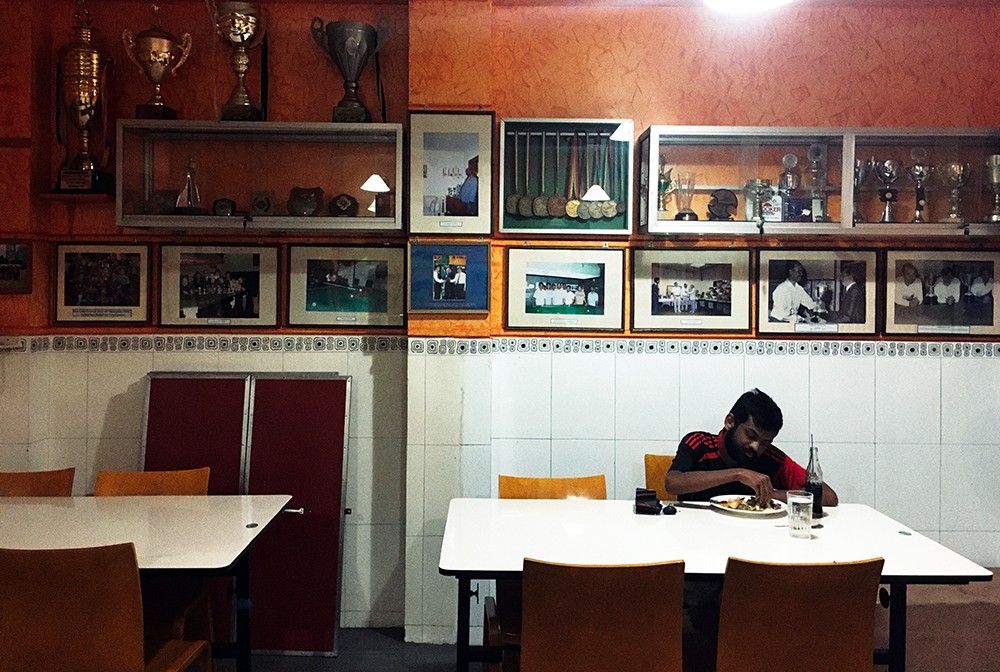
Assorted trophies and memorabilia from Java Lane and other areas left at the Cue Café, Slave Island, for safekeeping. In the evenings the irresistible smell of street food permeates the air. Arguably, it is only in Slave Island that you can still find authentic Sri Lankan Malay specialities such as pittu and babath, pasthol and oxtail soup. In recent years, Slave Island has also sprouted a local arts scene and has played host to two of Sri Lanka’s most prestigious international art festivals in the post-war era.
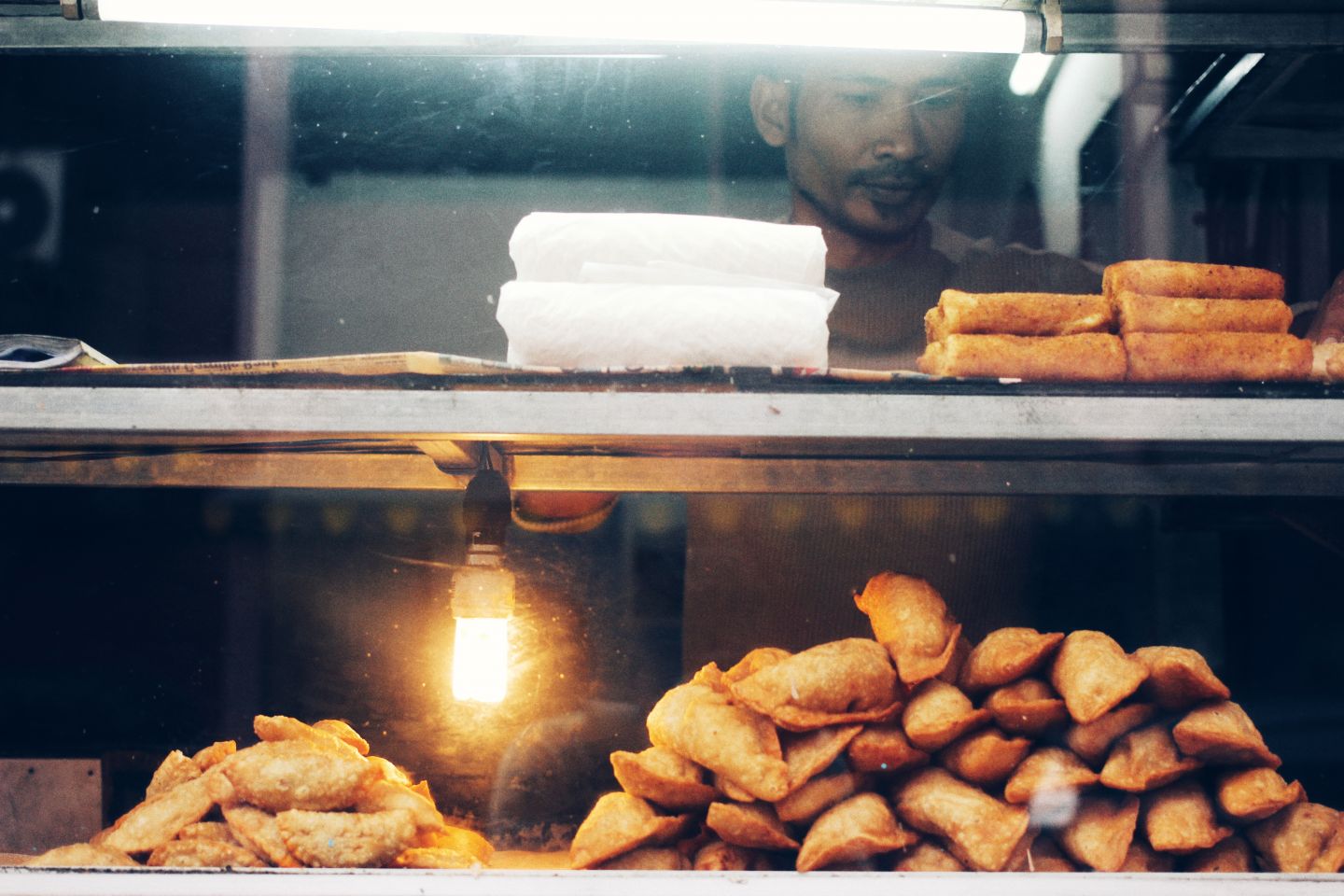
Azar Sappydeen carries on with his parents’ highly successful food business. He still serves pasthol, babath and other Malay delicacies that brought fame to his family. Colombo’s agenda for gentrification, though temporarily slowed due to the recent change in government, is still alive and is likely to bring more destruction to communities across Colombo. In January 2018, residents of Vauxhall Street, an area just East of Slave Island, were evicted to make way for decorative parkland due to be built around the Beira Lake. The remaining residents of Slave Island live with a continued element of uncertainty. There is a lack of clarity as to what the government’s plans are with the land that their homes are sitting on, and they live in constant fear of receiving an eviction notice.
Header photo: A small Malay community with no permanent housing lives by the rail tracks, drawn by the proximity of Slave Island, Sri Lanka.
-
By Nicole Girard
The protracted conflict in Thailand‘s deep south, since reigniting in 2004, has cost some 7,000 lives and is now driving a slow exodus from the region. Initially Thai Buddhists, a minority in the majority Muslim region and increasingly targeted by insurgents, were the first to leave; most headed north, where they make up the majority. But in recent years protracted violence and instability has also driven a growing number of Malay Muslims to look elsewhere, primarily across the border to Malaysia, where they have to make fewer cultural accommodations to survive than in Bangkok.
Thai Buddhist migration north to Bangkok
‘I left Narathiwat around 2001, when my parents and I moved to Bangkok,’ Nara, a Thai Buddhist, recounts. ‘My dad, a military lieutenant, wanted me to get the best high school education.’ She wonders, now, if that was the only reason. ‘There was a series of small incidents that got him thinking that the situation wasn’t right.’
Nara feels deeply connected to the area where she grew up, in Thailand‘s southern border provinces (SBPs). The maternal side of her family was in Narathiwat for generations, and she is in fact named after this place. As Thailand’s SBPs – comprising the provinces of Pattani, Yala, Narathiwat and four districts of Songkhla – are majority Muslim, Nara belonged to a minority in the area, but received the benefits of the Buddhist military state complex. ‘Being part of the military family, we would get a military escort to school.’
Nara’s father’s decision to move his family out of Narathiwat proved timely. Bombings in 2001 at the train station in Hat Yai and the border town of Betong were at the time relatively rare but signalled a new phase in the conflict between Patani Muslim insurgents fighting for a separate state against those whom they perceived as Thai colonizers.
At the same time, changes in the Thai government’s policies towards the deep south under then Prime Minister Thaksin in 2002 – which included dissolving the Southern Border Province Administration Center (SBPAC) and the Civilian-Police-Military Task Force 43 (CPM43), two institutions that had been credited with keeping the area relatively stable in the previous two decades – only made matters worse. As the situation began to deteriorate, martial law and emergency decrees were instituted, facilitating arbitrary detention, torture and extra-judicial killings of Muslims, mainly young men, including disappearances of Muslim activists.
In turn, indiscriminate attacks on Thai Buddhists, including teachers, hospital workers and Buddhist monks, became a key tactic of the insurgents. Killings would often be accompanied by leaflets demanding that all Thai Buddhists leave the area. By 2006, Thai officials reportedly estimated that 30,000 Thai Buddhists had left. According to national census data, Yala, the area with the highest number of Buddhists historically, saw its Buddhist population decline from 36 per cent in 1990 to 23 per cent by 2010.
‘We started to hear bad news,’ Nara reccounts. ‘Many of my parents’ friends died, they were officers, teachers, nurses. Then we lost one of our family members, my uncle in-law. He was a border patrol police officer who was shot in a terrorist incident.’ Only Nara’s grandmother refused to leave, asserting that her place would forever be with her land.
In 2017, more than 15 years after her departure, Nara returned to Narathiwat for the first time to attend her grandmother’s funeral. She was shocked by the changes. ‘The whole town is like a ghost – it made me feel really sad. To see check points, bunkers and those things is just weird. I don’t remember having to see any of these scenes when I was a kid. Every weekend, my parents and I used to go to the beach in a Muslim village to picnic, read and draw. We felt so safe then. Now the beach has changed so much – there are many abandoned properties.’
Malay migration across the border to Malaysia
However, Malay Muslim civilians have borne the brunt of this conflict. Of the nearly 7,000 people killed since 2004, two-thirds of whom were civilians, some 60 per cent were Muslim. While Malay Muslim migration to work in Malaysia or study abroad has been practised for decades, the situation has been further aggravated as a result of the conflict and the discriminatory policies of the Thai state: given the lack of economic and educational opportunities, the psychological toll of the violence and continued ethnic profiling by security forces, many have decided they have no option but to leave.
Ethnic and religious similarities between the Malaysian-Thailand border populations have historically facilitated temporary migration for work in Malaysia’s stronger economy. A variety of industries have benefited from this labour, including agriculture, food processing, restaurants and domestic work, which used to be primarily temporary or seasonal work. Most Malay Muslims reportedly entered the country on tourist visas or utilizing a border pass system that has been in effect since the 1940s, waiving the need for a passport if they reside no further than 25 km from the border. Most do not have a work permit and are active in informal industries.
Given the informal nature of their work, it is difficult to get an accurate picture of the number of Malay Muslims working in Malaysia, but estimates from 2009 suggest that it is likely that at least 20 per cent of the working-age population of the southern provinces live or work in Malaysia. In another study, published in 2006, focusing on a community in Narathiwat, 70 per cent had family members who had worked in Malaysia and almost 20 per cent had at least one family member married to a Malaysian national. The general consensus is that migration to Malaysia is not only increasing, but also – particularly for women – taking on a more permanent character. In the same study, only 8 per cent of those over 70 years old had lived or worked in Malaysia, whereas almost 40 per cent of those in their teens or twenties had worked in Malaysia.
The increase in conflict has resulted in deteriorating economic and employment prospects for the SBPs. Malay Muslims experience on average poorer outcomes than their counterparts, including Thai Buddhists living in the SBPs, populations in the neighbouring provinces, people in Bangkok, as well as those living across the border in Malaysia. According to the Thai government’s National Economic and Social Development Board (NESDB), in 2015 the poverty rate in the SBPs was at 33 per cent, compared to a national rate of 7.2 per cent.
Schools in the SBPs have been specifically targeted by the insurgents, with bombings and killings of teachers a regular occurrence. Schools are regularly closed due to the security situation and students endure constant psychological stress. In addition, there are limited opportunities for Malay Muslim youth to obtain a quality secondary education. Thai language skills are often lacking, and many do not pass the competitive national entrance exams; also, there are no quotas to guarantee minority placements. Many Malay Muslims complete their high school education at private Islamic schools, in order to accomodate Islamic study and practice, but the quality of the education either prevents them from gaining a university place or leaves them struggling if they are accepted.
While Muslims in the SBPs with higher levels of education may move to Bangkok for further education and employment – one recent study found that more than half of Muslim migrants from within Thailand living in Bangkok were educated to graduate level or higher – working-class or unskilled Muslims often do not choose to move north due to the cultural separation between themselves and the population of Bangkok, while their lack of fluency in Thai also prevents them from being hired outside the SBPs. Indeed, many young men report trouble finding work in Thailand as they are profiled by employers as being involved in the insurgency.
Separation, assimilation and the difficulty of return
Arida, a Muslim 32-year-old mother of two, passed the national entrance exams after completing a private Islamic education. She studied at Pattani’s Prince of Songkla University, the only university in the SBPs among the top ten in Thailand. Her father, a village head in Narathiwat, was killed by insurgents in the early days of the conflict, leaving her mother to raise her and her six siblings. Some of her brothers are now addicted to drugs or mentally ill. Arida works in the non-profit sector, the only family member currently in employment, bringing in an income to support her whole family.
Her uncle is the only one of her family who migrated for work or study, working temporarily in Malaysia, ten years ago. She herself has not migrated for work or study, but her reasoning was illustrative – a fear of the assimilation that life in Thailand’s capital would bring. ‘Bangkok is the worst for me. If I had had the opportunity to study abroad, I would have. I did not want to be Thai by being in their culture.’ When asked to explain, she said she had observed her friends come back from studying in Bangkok. ‘They act like Thai people, dressing in a half Muslim, half Thai style. Some are strong [to resist] but many of them not. It weakens their Malay language ability too.’
For many, however, a new life beyond the SBPs can bring benefits too. Young Muslim women who migrate to Malaysia have reported a new sense of personal freedoms, without being seen as being ‘Thai-ized’ or compromising their Muslim practices. Similarly, Malay Muslim youth who study in Bangkok report a reluctance to return to the south, as they have enjoyed freedoms to associate with the opposite gender and realize that they will have to return to a more strictly controlled environment once they are home.
Some, however, do not have the freedom to return to the SBPs. For those wanted by Thai security forces for suspected involvement in the insurgency, both higher level members of BRN (one of the main insurgent groups) and young men accused of committing crimes, Malaysia serves as an accessible location beyond the grasp of the Thai authorities. The Thai government recently announced its Bring People Home project, a potential amnesty programme for accused insurgents, but has yet to finalize the details in its negotiations with MARA Patani, the umbrella group currently engaged in peace talks with the government. For the moment, though, many suspected insurgents live in Malaysia without access to personal documentation and its benefits in Malaysia.
The dialogue between the government and MARA Patani has not yet led to any concrete solutions for ending the violence in the south and creating a framework for autonomy to realize the rights of Malay Muslims. Despite this, since the inception of the official talks, violence has been steadily decreasing in the SBPs and reached a record low in 2017. The government’s attempts to pour development money into the SBPs, however, are unlikely to make any real impact as long as even low-level violence persists.
For Malay Muslims, who have endured decades of assimilationist policies by the Thai state, the conflict is driven primarily by the denial of their basic rights as a minority group, particularly their political, cultural, educational and economic rights. But until these issues are addressed, it is likely that the exodus from their homeland will continue.
Header photo: A Thai policeman checks the papers of a Muslim woman at a checkpoint in Pattani in Thailand’s deep south. Credit: Panos / Adam Dean.
Watch two MRG documentaries about these issues in the South Border Provinces of Thailand:
-
By Emma Eastwood
Uganda‘s Batwa, an indigenous people who have suffered a long history of discrimination, have been displaced for decades from their ancestral land. Like other indigenous communities across Africa, despite stewarding the forests for many generations, their eviction has been carried out in the name of conservation – and has left the community struggling to survive on the margins of their former home.
The tiny village of Nteko is set atop a 2,000-metre-high hill, with stunning views of distant misty lakes and verdant valleys. Yet for Batwa, this paradise is a living hell.
Batwa (also known as Pygmies, their more common but derogatory name) have lived as hunter-gatherers in the forests of south-west Uganda for millennia, depending on their forest home not only for foods such as honey, but also for medicinal herbs. They have a deep, spiritual and religious connection with the forest, and specific sites are revered and considered central to their existence. However, Batwa now form part of a growing group around the world of so-called conservation refugees, evicted from their ancestral forest home in the 1990s to make way for a national park.
On a daily basis the villagers in Nteko are cruelly reminded of their dispossession: across the gorge lies the Bwindi Impenetrable Forest National Park, their former home, divided by a stark line from vertiginous plots of tilled farmland. Here the famous mountain gorillas roam, and tourists pay hundreds of dollars to commune with them. While the gorillas have rightly been saved from extinction, the Batwa community – one of Africa’s most ancient peoples and guardians of the forest who have lived alongside the apes for thousands of years – are beaten and arrested by rangers if they so much as enter the National Park to gather the herbs so crucial for their health.
More than 20 years on, their eviction from the forest continues to take a heavy toll: with the connection between the community and their land now severed, their culture and livelihoods have been devastated too. Yet the villagers of Nteko could be considered lucky by some warped standards. At least they have land, purchased for them by a Dutch organization. Many Batwa forcibly evicted from the forest in 1992 were never compensated by the government, and the majority now squat on neighbours’ land, and work as virtual bonded labourers on small sugar cane or banana plantations.
One of the worst affected Batwa communities resides in a slum on the outskirts of the town of Kisoro, which lies beneath the fertile slopes of the volcano straddling the borders of Rwanda, DRC and Uganda. The injustice they face is made starker by their location directly in front of the town’s courthouse. Here some 140 people live in shacks of ripped plastic bags and rotten cardboard, covered in black dust from the tyres they burn to keep warm at night. Most, including children who have left school by the age of eight, make a living from begging on the streets of Kisoro. Domestic violence and malnutrition are rife.
Just US$20,000 would buy this community enough land to allow them to take the first steps towards self-sufficiency to escape the dire situation they have been forced into. That is just a tiny fraction of the revenue that the Uganda Wildlife Authority earns from tourists visiting the gorillas. Yet, according to Batwa community members, very little of this trickles down to them.
Besides grinding poverty and the continued trauma of being uprooted from their forest homes, Batwa must also contend with their deep-seated social exclusion. Other children do not want to sit next to Batwa at school, for example, and members of more dominant ethnic groups often refuse to share water from the same well or food from the same table. And besides widespread stigmatization, Batwa must also contend with a variety of stereotypes and misconceptions: this includes a popular belief that sex with a Batwa woman can cure various illnesses such as HIV/AIDS, leaving them especially vulnerable to sexual assault.
Their situation highlights how damaging evictions can prove for indigenous communities when every aspect of their existence is based around their land. While Batwa continue to call for the restitution of their land, in the meantime a new generation is growing up in limbo, denied the rich cultural heritage that sustained Batwa for centuries but without the access to health, education or other basic services enjoyed by other communities in Uganda.
-
By Jasmin Qureshi
In 2017, a brutal military campaign displaced more than 700,000 Rohingya from Myanmar and killed thousands more, with security forces systematically targeting communities with arson, rape and mass executions. The latest wave of violence, however, has been preceded by decades of discrimination and the uprooting of many Rohingya to Bangladesh, Malaysia, Thailand and elsewhere – including a group of around 300 resettled refugees in the British city of Bradford. Now they are leading community efforts to alleviate the humanitarian crisis confronting the hundreds of thousands of Rohingya trapped in camps on the Bangladeshi border.
‘My family left Myanmar in 1996 because my uncle, grandma and grandpa had been shot by the Burmese military’, says Salah Uddin, a Rohingya former refugee from Myanmar, who is now settled in Bradford, UK. ‘My father was really scared so he decided to flee to Bangladesh. My mum was pregnant with me at the time. Now I can’t even imagine how the difficult the journey was. My father died of a heart attack one day after arriving in the refugee camp.’
Ten years later, Rohingya in Myanmar are still facing persecution and violence, forcing them to leave their homes for refugee camps in neighbouring Bangladesh. As stateless persons, living without a nationality and all the protections this affords, Rohingya communities are still caught in a limbo. Conditions in the camp are extremely challenging and overcrowded, and diseases spread easily and go untreated. When Uddin was living there in 2008, the camp was home to around 32,000 refugees. This has now grown to more than 700,000.
‘The camp in Bangladesh was like a prison’, recalls Uddin, who lived there for 14 years. ‘We were not allowed to go outside the camp. We didn’t have any shelter, medicines, clothes or food.’
Uddin and his family were subsequently brought to the UK in 2010 under the Gateway Protection Programme, a scheme run by the UK Home Office and the United Nations High Commissioner for Refugees (UNHCR). The UK government calls this a ‘legal route’ for up to 750 refugees to settle in the country each year. Now some 300 Rohingya who were given refugee protection under the scheme live in Bradford, a city in the north of England.
‘When we came to the UK we didn’t know anything. We couldn’t speak any English. I went to secondary school and I used to sit at the back of the class and felt like I couldn’t participate. But, in this country, we know we can have a future. We have freedom.’
Uddin now has British citizenship and works for the British Rohingya Community (BRC), an organization campaigning for Rohingya rights. Particularly in the wake of the recent crisis, BRC also collects and distributes aid to the camp in Bangladesh. Uddin recently visited the camp to deliver food and medicines donated to the organization, and was shocked to see how conditions there had deteriorated. During his 20-day visit, he witnessed the deaths of 10 people, including children.
While Bradford’s Rohingya community have mobilized in support, they have been deeply affected by the trauma their family and friends have lived through. ‘Despite the fact we are living in the UK,’ says Uddin, ‘my community cannot be happy. Our sisters and our brothers are still suffering in the camp and the persecution continues. My cousin was raped and killed in 2017 when she was fleeing with my mum’s family to Bangladesh.’
Bradford’s Rohingya population illustrates what can happen when refugees are supported to build a secure future and when efforts are made to ensure they can feel part of their new community. The local Bangladeshi and Pakistani communities welcomed the Rohingya refugees, and helped them settle into their new home. In particular, there are strong links between the Rohingya and Bangladeshi communities, partly due to shared religion and language. Uddin recalls how members of the Bangladeshi community visited his home, helped his mother to understand and write letters, deal with bills and learn English. Bradford City Council also supported efforts to build links between diverse communities.
‘We’re making so many contributions to this country,’ Uddin says. ‘Rohingya people are going to university and we’re working here – these are great opportunities. In Bangladesh, we didn’t have any education or future. But now we can have a future, we can become doctors, engineers or things like that. In the camp we didn’t have any life – after coming here it’s like a different world. It’s safe here. You can feel safe.’
BRC is working with the UK Home Office to reunite families still trapped in the camps by bringing them to the UK. However, Uddin believes the main solution would be for Rohingya to be repatriated to Myanmar and granted full citizenship rights in their homeland. But for this to happen, measures must be put in place to ensure their safe return – a situation that will require a commitment from the authorities to guarantee their protection. But with the Myanmar government still refusing to recognize Rohingya as citizens, let alone the scale of the atrocities carried out by the military and its own complicity in these attacks, there is little sign that this will happen imminently. In the meantime the BRC, like many other Rohingya diaspora groups worldwide, will continue to offer their support.
Header photo: Members of the British Rohingya Community hold event to raise awareness of the plight of stateless Rohingya refugees from Myanmar. British Rohingya Community. Credit: BRC.
-
By Araceli Cruz and Mariah Grant
Since taking office in January 2017, following a protracted political campaign that exploited and promoted anti-immigrant sentiment among sections of the American public, US President Donald Trump has passed a series of measures targeting the undocumented population. However, the country’s undocumented migrants are now challenging this climate of hostility with narratives of their own – and in the process reclaiming their stories from the hateful misrepresentations of the far-right.
On 5 September 2017, US Attorney General Jeff Sessions announced during a press conference that the US federal government, under President Donald Trump, would be ending the Deferred Action for Childhood Arrivals (DACA) programme. Implemented under an Executive Order in 2012 by former President Barack Obama, DACA never provided recipients with a legal immigration status but was created as an intermediary form of relief to individuals who came to the US as children (prior to turning 16) with their parents without documentation. Those who received DACA, in theory, would be protected from deportation until a formal path to citizenship was codified into law through the passage of the DREAM Act (short for Development, Relief and Education for Alien Minors Act), legislation originally introduced in Congress in 2001 but yet to be passed. At the time it was implemented, however, bipartisan support for the DREAM Act and immigration reform to provide amnesty to those temporarily protected under DACA proved impossible. Though DACA received a mixed response from across the political spectrum, hundreds of thousands of DACA recipients were nevertheless able to access work permits and higher education in the interim. As of the date that the Trump administration rescinded the programme, almost 800,000 young people in the US were active DACA recipients, including current high school and university students.
Long before his election, Donald Trump had vehemently opposed DACA, making its termination a pillar of his political platform. Throughout a campaign characterized by incendiary and discriminatory language targeting minorities, he frequently misrepresented the effect of immigration on communities in the US and stoked the deep-seated racist sentiments of some segments of the population. In the weeks and months after his inauguration, Trump appeared to somewhat shift his position on immigration, expressing tentative interest in providing permanent legal relief for DACA recipients. Nevertheless, he continued his divisive rhetoric related to immigrants by casting some of them as a threat, stating that while there may be DACA recipients who are ‘incredible kids’, others are ‘gang members’ and ‘drug dealers’. In describing them in such binary terms, Trump’s words reflected a problematic narrative underlying public discussions of immigration for years – the dichotomy of ‘good’ or ‘bad’ migrants.
The DACA programme, with its valorisation of a small section of the country’s undocumented migrant population, has itself been criticized for contributing to this perception and effectively cleaving communities, and even families, by distinguishing between those who are supported in their path to residency or citizenship and those targeted for deportation and public vilification as ‘illegals’. As Trump continued to oscillate on their fate, migrant rights activists, including those receiving DACA, spoke out. While those who have participated in this programme were benevolently titled ‘DREAMers’, a play on the DREAM Act and to highlight their dreams of US citizenship, some identified as such have rejected this moniker. Members of the Undocumented and Unafraid movement in particular have raised concerns about the ‘DREAMer’ narrative, arguing that they have become a political pawn and are being used to sow divisions within their own communities. These tensions have only intensified since DACA was rescinded as politicians from across the spectrum have been leveraging deals to extend DACA as part of larger immigration reform or stricter border patrols, pitting one group of migrants against another. At the time of writing, due to legal challenges, the DACA programme has been extended and the government has been required to continue processing renewal applications.
While the narrative around DACA recipients has frequently focused on their academic achievements, it rarely delves into the ongoing barriers many undocumented youth face in accessing higher education. By law all students in the United States are able to attend school through grade 12, regardless of immigration status; however, no provisions around tertiary education are in place. Indeed, those not receiving DACA and who lack any permanent or temporary immigration relief are often considered international students when enrolling in colleges or universities. As a result, they are required to pay out-of-state tuition, amounting to at least double the tuition rate of their resident counterparts. In some states, such as Alabama, South Carolina and Georgia, students are forced to pay three to seven times the amount of their documented peers and are often banned from applying for admissions to public state universities. Currently, it is estimated that less than 10 per cent of undocumented students are able to secure funding to cover their tuition and living costs. While some states have adopted policies to help promote tuition equity to undocumented students – in-state resident tuition (ISRT), for example, ensures that undocumented migrants do not have to pay an out-of-state surplus and is in place in over 20 states – the majority of migrants, without additional federal grants or easy access to private loans, are still unable to shoulder the costs of a university education.
These barriers to accessing higher education, coupled with the personal, familial and community stress caused by the Trump administration’s targeting of people without formal immigration status, particularly people of colour, can create an agonizing situation for young people in the US who are undocumented or who have temporary relief through DACA. In response, some colleges and universities throughout the US have taken on a ‘sanctuary’ status, part of a broader movement that has seen churches, schools, cities and even some states declare themselves as safe spaces for people without documentation. In the case of schools, administrators, teachers and students are usually advised that immigration enforcement efforts will be forbidden on campus and the documentation status of students will not be shared with government agencies. At some colleges and universities, as part of their sanctuary model, resource centres have been opened for undocumented students to access information on topics ranging from financial aid to mental health and wellness.
In Oregon, former and current students from Portland Community College (PCC) established the first resource centre for undocumented students in the state in 2017. The DREAMers Resource Center, as it is titled, was officially opened at the PCC Rock Creek campus in January 2018. The initiative to create such a resource for students was spearheaded by Liliana Luna, the PCC Rock Creek Campus Multicultural Center coordinator, and the DREAMers Resource Center’s current coordinator Jhoana Monroy, alongside PCC undocumented students. As explained by Jhoana, the efforts to create a resource centre for undocumented or DACA students began three years ago in 2015 by holding a public DREAMers Gala, now a yearly event, that provided the opportunity to build community and bring together students from different backgrounds. The gala also offered the parents and family members of students a chance to learn about the burgeoning DREAM Project, established in the years prior to the Center. In addition, the event served as a fundraiser to support students with scholarships. The DREAM Project is ongoing and includes a mentorship component that pairs undocumented or DACA-registered students with mentors in the same situation.
For this year’s DREAMers Gala, organizers prepared a video titled ‘The Original Dreamers’ that highlighted the stories of PCC students active with the DREAM Project and their parents. ‘We wanted’, says Monroy, ‘to in some way honour the parents’, who, as the first generation of immigrants, were the original dreamers. During the video, students discuss their future ambitions and the roles their parents have played in supporting them and encouraging them in fulfilling their goals. The parents themselves describe the dreams they had in coming to the US and their hopes for their children’s futures. As one father described, ‘My greatest dream was that my children could have a better life here.’ This sentiment was echoed by other parents, along with a mixture of pride and sorrow for all that their children have had to overcome in accessing education and establishing themselves in the US.
Both the parents and students also discussed the important role the DREAM Project and its related centre have played in encouraging them and providing a source of comfort as they face the unique demands of student life with an ever-present uncertainty related to their immigration status. In the words of one student, ‘I finally have a support system that actually understands me and knows what it’s like to achieve our dreams in this country.’ Providing a platform for their voices to be heard is a key goal of the DREAMers Resource Center and its related initiatives, including an empowerment retreat for students prior to the DREAMers Gala. Before the retreat, Monroy noted that students were fearful: ‘They didn’t want to expose themselves, they didn’t want to tell anyone about their status.’ But after the retreat, ‘most of them were willing to tell their status’.
For Monroy’s part, she is able to empathize with the students served through the resource centre, as she too is ‘DACAmented or undocumented’, a description she uses because even those with DACA ‘are still living in limbo: we still don’t really have a status, permanent status. We could be removed at any time.’ She also not only encourages the students she works with to be vocal advocates for themselves and their families but also has publicly challenged the narrative around immigration herself. She emphasizes the importance of standing up for people’s rights on a range of issues, from reproductive justice to the negative effects of gentrification, and has cultivated extensive collaboration with LGBTQI organizations.
Their work is part of a broader backdrop of activism that has sought to change public perceptions around immigration, with other initiatives, such as ‘The Immigrant Story is the American Story’, seeking to showcase the experiences of the country’s immigrant populations. The initiative was launched by Sankar Raman, an immigrant from India who moved to the US in the 1980s and is now based in Oregon, as a means to ‘enhance empathy and create a shared community’. Profiling a range of immigrants and their stories, the project was established in response to hate crimes and bias incidents that occurred shortly after Trump’s election. These incidents included the murder of an Indian immigrant, Srinivas Kuchibhotla, in Olathe, Kansas in February 2017 by a man who shot him after yelling, ‘Get out of my country.’ In addition, girls and women wearing various forms of traditional Islamic clothing were increasingly targeted with verbal and physical attacks. During one such attack in May 2017, a man verbally harassed and intimidated two teenage girls, one wearing a hijab, on a MAX train in Portland, Oregon before stabbing to death two bystanders, reported to have intervened.
The power of these initiatives is that, at a time when undocumented migrants are under more pressure than ever to fall silent, they provide a platform where they can instead publicly express themselves. When hate speech is on the rise and anti-migrant slurs have become commonplace, actively encouraged by the current President, the voices of tolerance, inclusion and empathy are more important than ever to counter the narrow narrative of nationalists and extremists. In this context, the courageous actions of the students at the DREAMers Resource Center, and thousands of others like them, represent a vital form of resistance and the hope of a better future.